- mirror tablet phone 3 +44 (0)1482 251819
- profile 3 Get in touch

MA in Creative Writing (Online)
Transform your passion for reading into the ability to produce prose worthy of public recognition .

- WHAT YOU LEARN
- COURSE MODULES
- HOW YOU'RE ASSESSED
- ENTRY REQUIREMENTS
- CAREER PROSPECTS
Course details
Additional costs: due to the nature of the subject, and copyright restrictions placed on institutional libraries by some publishers, students will need to purchase some core texts.
Support with your application: Contact our adviser team today for application advice.

Why this MA in Creative Writing?
It was Hull where Philip Larkin lived and worked at the University's Brynmor Jones Library for 30 years, writing most of his best work. A seafaring city that connected outwards and brought some of the exotic back to northern England.
Embracing Hull's global-facing outlook, MA Professor and accomplished author Martin Goodman describes the University's MA Creative Writing as an inspiring and collegial environment for online students who want to develop their distinctive voice as a creative writer.
There is also the option to attend face-to-face events , as you seek public recognition and become a valued, active member of a vibrant international creative writing community.
The University of Hull was ranked 1st in the UK for student satisfaction with Creative Writing in The Complete University Guide 2024 .
What you learn
Transform your passion for reading into the ability to produce prose worthy of public recognition. Whatever your genre of preference, be it literary fiction, nonfiction, or the likes of fantasy, mystery or romance – you will have the opportunity to hone your creative writing skills and discover the techniques seminal writers have used to significant effect:
push your creative boundaries and give shape to a strong and original creative voice
expand your knowledge of the literary canon and acquire the art of reading as a literary writer
gain an in-depth knowledge of structure which will help you towards a deeper understanding of your writing process
become conversant with a range of textual elements such as the use of dialogue, point of view, perspective and sensory detail and apply learned technique to your preferred writing genre
take your place within the international creative writing community. Critique the work of others and engender the view of published writers as colleagues from who you can learn
- develop your practice as a creative writer, understand the editing and re-drafting process necessary to produce prose of a publishable standard.
Your questions answered Programme Director Dr Chris Westoby answers some key questions about the course, including which modules you'll study, how you'll learn online, and the entry requirements.

[upbeat music plays throughout]
Dr Chris Westoby: So there are five modules over the course of two years. You're introduced to the programme with The Writer's Craft, which is designed by our programme founder, Martin Goodman. The Writer's Craft teaches you key writing concepts at MA level, how to analyze the work of exemplary authors and locate what makes their writing successful, so that you may apply such skills within your own practice, and you work upon and strengthen your unique writing voice.
This acts as your your foundation, your springboard, from which you launch into the central three genre specific modules. So you have Writing the Short Story, Writing from Life and Writing the Novel where you study and practice specific modes of writing in-depth.
By the end of these four taught modules, you'll be well equipped and raring to embark upon The Writer's Portfolio. This double length and double weighted module sees you liftoff into an extended writing project of your own design.
With the support of a supervisor chosen to help bring out the very best in your work. You learn through a a combination of writing exercises, lectures, guided critical reading, discussion, forums, workshops and webinars.
Well, this is hard to quantify because everyone works at different speeds, which is absolutely fine and part of what we're proud to accommodate. There are also extra elements to each model, which some students may wish to engage in such as further recommended reading.
Our standard entry requirements are a 2:2 BA honours degree or international equivalent.
However, we also recognize other forms of prior experience and therefore encourage anyone who is interested in the programme to get in touch.
Your application may discuss where your career has taken you so far and why this equips you with the skills designed to join this program. You might discuss other writing courses you've attended, which have provided a strong foundation. You might discuss inroads you have made into publication, all of which shows that you are ready to start sharing your work and have practiced polishing it.
Or you may simply demonstrate the strength of your potential as a writer through your creative writing sample.
Even without the standard entry requirements, you may be the ideal candidate for this programme. There are a number of non standard ways in which you may be considered, so please do get in touch.
Your assigned course advisor will help you form an application that lets your unique strengths shine.
Student work
.webp?width=230&height=352&name=Jinny%20AlexanderJeanette%20Everson%20-%20Dear%20Isobel%20(1).webp)
Dear Isobel
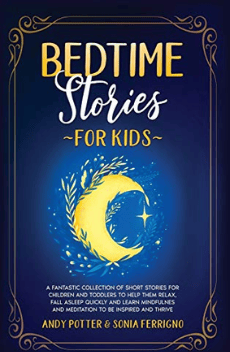
Bedtime Stories for Kids
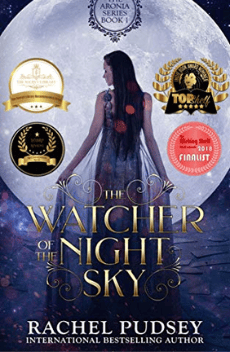
The Watcher Of The Night Sky (Book 1)
.webp?width=230&height=352&name=Post-Midnight%20Blues%20-%20Rae%20Toonery%20(1).webp)
Post-Midnight Blues
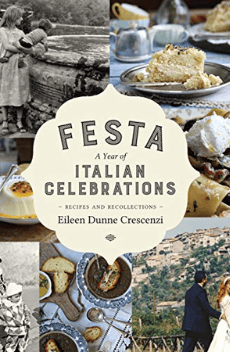
Festa: A Year of Italian Celebrations - Recipes and Recollections
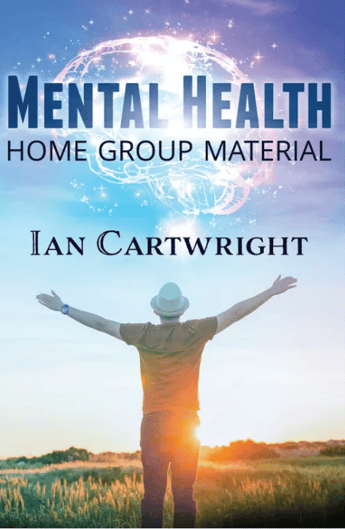
Mental Health Home Group Material
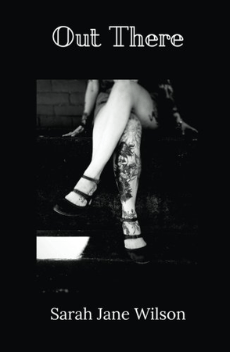
Into Your Blues
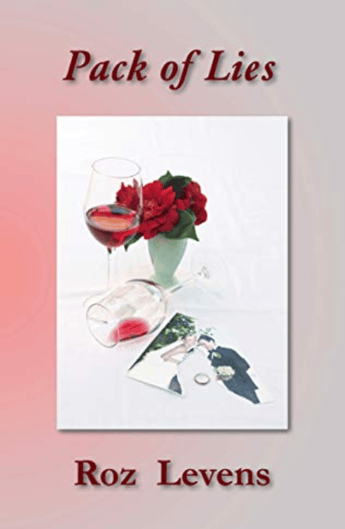
Pack of Lies
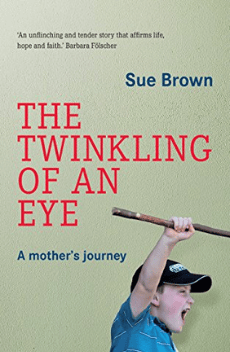
The Twinkling Of An Eye
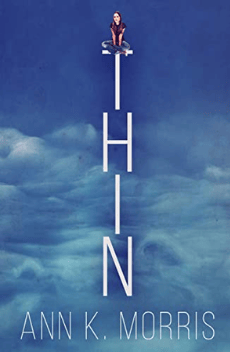
Distant Voices: An anthology of stories
Course modules.
This masters degree allows you to develop your confidence and craft as a writer within a supportive, creative environment.
You study the following compulsory modules.
Because writing takes fire in the readers' mind, in this module, you will examine a wide range of literary works. Focusing primarily on textual elements including; sentence length and flow, perspective, choices of tense you will develop an understanding of how writers achieve their effects. Presented with sections of exemplary writing, you will move from your own visceral responses (e.g., excitement, intrigue, fear) to tracking how the writer deploys elements of craft to trigger desired emotions and atmosphere.
Short stories allow emerging writers to complete narrative arcs and establish a reputation through published works before tackling the longer form of a novel. In this module not only will you develop an appreciation of short stories from a range of international writers, but you will take the short story form and make it your own. Note that this module will also cover two sub-genres within the form; micro-fiction and flash fiction.
This module will introduce you to a wide range of nonfiction prose with a particular focus on travel writing, the essay, memoir, nature writing, and true-crime. You will produce your portfolio of work while practising a range of narrative nonfiction forms within a supportive, peer-driven environment.
What is it about an opening chapter of a novel that makes it virtually impossible to put it down? Throughout this module, you will improve upon your novel writing skills. The critique of your writing in a workshop setting will help you develop a keen awareness of narrative and narration along with a deep understanding of archetypes as an essential part of storytelling. As you develop plot and structure, you will employ editing and redrafting techniques to produce work you are proud to publish.
Creative writing is a rewarding process which requires immense personal discipline. In this module, you will receive guidance on how to structure your writing practice in this respect. Your prose portfolio (up to 15,000 words) represents the culmination of your MA Creative Writing programme. Here you will demonstrate your originality of ideas, grasp of technique and craft, presenting a unique and accomplished body of work to a publishable or near publishable standard.
Hear from our Alumni
Hear their stories, discover their motivations and the obstacles they overcame, and gain valuable insider perspectives.
Join us in Jan 2025
What are the entry requirements.
A minimum 2.2 Bachelor Honours degree or international equivalent . Applicants who do not meet this requirement may still be considered, but will need to present examples of relevant prior experience, courses, job roles, or published work.
A creative writing sample (fiction or non-fiction) of 1,500 to 2,000 words
- A personal statement of around 300-500 words. Click here for details of what should be included
An IELTS 6.0 score (with minimum 5.5 in each skill) if your first language isn’t English (or other English language proficiency qualifications accepted by the University of Hull )
One professional or academic reference
If you're unsure whether you're eligible to apply, please get in touch with our friendly course adviser team for advice:

“I chose Hull because I wanted to study somewhere where I would be pushed to break free from my comfort zone."
How you're assessed.
All assessments for the course are based on coursework and submitted online. There are no exams.
Assessment methods
Your performance on the course will be assessed through a range of methods including:
ongoing tutor and peer feedback
practical work, including group projects and discussion forums
Written assessments
You’ll also be asked to complete a variety of written assessments including:
Critical and creative responses, where you provide examples of crafting skills in work that interests you, and then provide short writing samples that utilise those techniques in your own work
Prose portfolios, comprising one or two pieces of original work
Commentary pieces, describing your ambitions and intent for your prose portfolios
Get more detailed information on the course assessment methods page:

Teaching team

Professor Martin Goodman

Dr Christopher Westoby

Dr Mick Jackson

Dr Kate Horsley

Barbara Henderson

Tim Hannigan
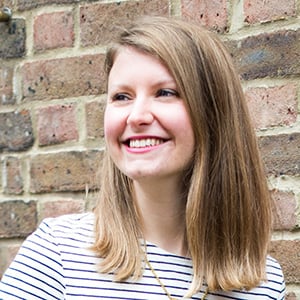
Dr Megan Hayes

Dr Elizabeth Watkinson
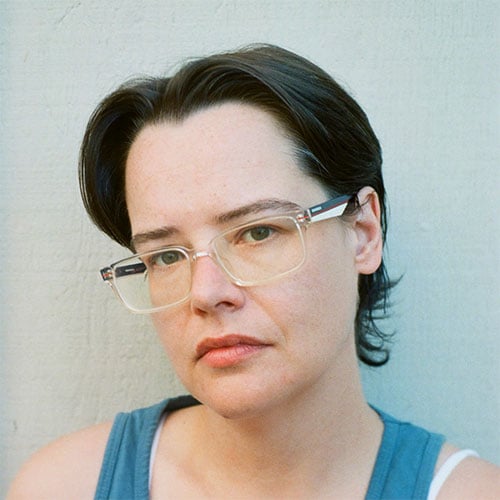
KR Moorhead
Broaden your horizons with face-to-face events.
At the University of Hull, we believe it’s important for students to feel a sense of connectedness, whether they’re studying on campus or online. This is why we hold up to two face-to-face events per year with creative workshops, talks from visionary academics, and a glance into the UK’s thriving creative writing community. Students from previous events have:
- Formed lasting friendships with fellow creatives
- Refined their creative writing style on the back of discussion and constructive criticism
- Drawn inspiration from new perspectives and literary genres
- Picked up insider knowledge on how to get their work published
Want to flex your creative muscles, meet your tutors in-person, or form a rapport with like-minded people? You can do all this and more, while exploring topics outside of your course modules. Stay tuned for updates on our face-to-face events – we’d love to have you join us!

What makes this course stand out? Hear from Programme Founder Professor Martin Goodman about what sets this Creative Writing masters degree apart.
[inspirational music plays throughout]
Hello I'm Martin Goodman, Professor of Creative Writing here at the University of Hull. I'm Director of this MA Online Creative Writing program. And I'm a writer like you. So part of our program here is to welcome fellow writers and encourage you to be the best writer you can be. This course for anybody who wants to take their creative writing seriously, for whom it's something very important. It's probably been very private 'til now, but you're ready to share it, and you're ready to share it, ideally in this online environment. This suits you. Writing is quite a private thing that happens on paper. But we know we have to share it at some times if we're going to reach other readers. So this is what we aim to do with you. The way this course works is to bring you through several different modules. The first one is writer's craft, where we will examine other writers and exemplary pieces of writing and their techniques, how they make their writing work and other readers' minds. And then you build up these skills as you're going through modules about writing the story of writing the novel, writing from life, and then you're released into an extended piece of writing, and that is where you're following the form that most appeals to you. We designed this course to help you build yourself into being the complete prose writer. For me, it's actually been very important to try out all of these fields. So I write novels, I write short stories. I also write non-fiction, I write biographies, I write travel pieces, I write reviews. All of these things are part of what makes a writer able to sustain a living in the world. And you don't have to always be working from your imagination. There's always something you can go to. And in each of these, you're also building up your own skills. So if your main desire in life is to be a novelist, the skills that you can find from learning how to write the creative nonfiction, writing from life, or how to build a little character arc within a short story. These are all essential to you. Every little piece of skill that you develop in writing any form will go into the form of your choosing. It's very important to me that we create a protected space around you. So you're not writing according to what some publisher takes as being that fits my box. You're writing the best work that can emerge from yourself inside this protected space, so it's not judgmental at all. We're completely free. We're saying, begin to yourself and write from that hidden space inside of you. I know that a lot of students are really bursting with their creative writing and looking for feedback, but they find it very hard to get into the classroom. Sometimes it's not good if you're a quiet person to have to face the bustle of a classroom, to have to put out your writing at this particular moment. It's much simpler to do that in your own time, to sort of breathe in. You post it online, and then other people can review it in their own time. That's really what this online course is doing. It is connecting the world through brilliant writers.
Career prospects
By studying this course, you should gain the confidence and practical skills necessary to produce creative writing of a publishable or near-publishable standard, in your genre of choice.
Want to get published?
Programme Director Dr Chris Westoby discusses how studying creative writing at Hull led to his first book:

You'll also gain valuable transferrable skills which are in-demand across the creative industries and beyond.
MA Creative Writing graduates often go into successful careers in a broad range of industries, such as
professional writing/authorship
marketing and PR
heritage and tourism
journalism and broadcasting
museum curating
Ready to apply?
Our step-by-step application process is easy to follow.
The University of Hull and its digital courses provider, Hull Online Limited, delivered in partnership with Cambridge Education Group Digital (CEGD), will only use your personal data to contact you in relation to our courses. For further information, please see the privacy policy .
- Skip to main content
We use cookies
Necessary cookies.
Necessary cookies enable core functionality. The website cannot function properly without these cookies, and can only be disabled by changing your browser preferences.
Analytics cookies
Analytical cookies help us improve our website. We use Google Analytics. All data is anonymised.
Clarity helps us to understand our users’ behaviour by visually representing their clicks, taps and scrolling. All data is anonymised.
Privacy policy
- Postgraduate study
- Taught degree programmes A‑Z
- Creative Writing (online distance learning)
Postgraduate taught
Creative Writing (online) MLitt: Online distance learning

Note: This programme is also delivered on campus. To find out more about this programme or the research opportunities available, visit our Creative Writing subject page
Postgraduate Online Event: Wednesday 6 November, 9:00 - 17:00
This online event will provide you with an overview of Postgraduate life at the University of Glasgow with live video sessions and on-demand content.
- Find out more and book your place
If you're a talented and ambitious writer looking to develop your craft and take your writing to the next level, Glasgow's renowned Creative Writing MLitt is ideal. Develop your writing practice wherever you are in the world by gaining creative and critical skills on this exciting and supportive online course.
- Online distance learning
- Academic contact: Dr Colin Herd [email protected]
- Teaching start: September
- MLitt: 12 months full-time; 24 months part‑time
Register your interest for more information
Thank you for registering
Something went wrong, please try again
Why this programme
- Our MLitt in Creative Writing is delivered within a clear three-part structure, focused on creative, critical and editorial skills.
- Our Creative Writing programme has gained an excellent reputation with writers, agents and publishers. The University's writing courses are among the most challenging and popular in the UK.
- These courses have helped launch the careers of an impressive list of acclaimed authors including, but not limited to: Anne Donovan, Helen Sedgwick, Kirsty Logan, Jen Hadfield, JL Williams, Louise Welsh, Zoe Strachan, Elizabeth Reeder and many others.
- You'll be taught by successful and well-regarded writers who specialise across diverse genres. We are happy to supervise students working in established genres but just as keen to see students mix genres or create new forms. In addition, you'll be able to tap into the University's strong network of literary agents and publishers, as well as an impressive list of published alumni.
- This online programme is 1 year full time. If you are already working full time or have family commitments, the course can also be completed on a part-time flexible study basis over 2 years.
- Listen to our podcast: Stories from Glasgow – Writing Space with Dr Oliver K. Langmead .
- Read From Glasgow to Saturn, our literary journal .
Programme structure
The full-time programme consists of the following courses. The part-time programme consists of the same courses split over two years.
- Creative Writing: Craft and Experimentation 1 (DL)
- Creative Writing: Editing and Publication 1 (DL)
- Creative Writing Workshop (DLearning)
- Creative Writing: Craft and Experimentation 2 (DL)
- Creative Writing: Editing and Publication 2 (DL)
Summer Semester
- Creative Writing Portfolio (PGT) (DLearning)
Programme outcomes
- Experiment with a range of voices, techniques and genres and consider major creative and editorial engagements
- Develop a critical understanding of a diverse creative, theoretic and critical texts
- Develop editorial skills
- Gain an understanding of literary techniques and ideas
- Access the work and thought of a wide range of literary artists
- Produce extended portfolios of creative and editorial work
- Understand the writing context (audience, publishing in all its forms, the legal framework, modes of transmission)
- Become disciplined in writing regularly in a stimulating workshop and tutorial environment in which writing skills can be acquired, discussed and honed
- Be part of a stimulating and critical peer group that reads, engages with, and appraises one others work
- Understand the means of literary transmission and how these means affect your own work
- Meet, hear and talk to professional writers and individuals from publishing and other transmission industries
- Display an understanding of the mechanisms (historical and contemporary) of literary textual transmission and other forms of transmission (including performance) in their various technological, commercial and artistic aspects
"I can honestly say that the programme was the best thing that has ever happened for my writing." Nichola Deadman, Creative Writing student
Programme alteration or discontinuation The University of Glasgow endeavours to run all programmes as advertised. In exceptional circumstances, however, the University may withdraw or alter a programme. For more information, please see: Student contract .
Career prospects
Skills gained in the study of our Creative Writing MLitt may lead to career opportunities in literary and cultural fields such as editing, publishing and arts development. Many of our alumni are successful authors. Our graduates have also gone into journalism, publishing, and a range of other professions. Positions held by recent graduates include managing director, freelance writer, author, copywriter and community arts worker.
Fees & funding
Tuition fees for 2025-26
- Full-time fee: £11250
- Part-time fee: £1250 per 20 credits
International & EU
- Full-time fee: £24000
Part-time fees:
- UK : £1,250 per 20 credits (180 credits in total)
- International & EU : £2,667 per 20 credits (180 credits in total)
The credits are split:
- Year 1 : 80 credits (4 x £1,250/ £2,667) for Craft & Experimentation 1 and 2, and Workshops
- Year 2 : 100 credits (5 x £1,250/ £2,667) for Editing & Publication 1 and 2, and Portfolio
Additional fees
- Fee for re-assessment of a dissertation (PGT programme): £370
- Submission of thesis after deadline lapsed: £350
- Registration/exam only fee: £170
Funding opportunities
- The Baird Educational Trust Studentship
We are pleased to invite applications for this scholarship, open to full and part-time Creative Writing MLitt students, either on campus or undertaking distance learning.
The Trust offers annual stipend for one MLitt student per academic year of £2000, if the student is studying full time, and £1000 per year if the student is studying part-time.
- UK Study Online Scholarship
The UK Study Online scholarship is open to UK, EU and international students taking online undergraduate and postgraduate courses.
Please see UK Study Online for more details.
- Alumni Discount
In response to the current unprecedented economic climate, the University is offering a 20% discount on all Postgraduate Research and full Postgraduate Taught Masters programmes to its alumni, commencing study in Academic session 2025/26. This includes University of Glasgow graduates and those who have completed a Study Abroad programme, International Summer School programme or the Erasmus Programme at the University of Glasgow. The discount applies to all full-time, part-time and online programmes. This discount can be awarded alongside most University scholarships.
- Postgraduate Loans for Welsh Students
If you are a Welsh student looking to study a postgraduate programme* in Glasgow then you can apply for a student loan in exactly the same way as you would for a Welsh University.
* does not apply to Erasmus Mundus programmes
For more information visit Student Finance Wales
- Postgraduate Student Loan (NI)
If you are a Northern Irish student looking to study a taught Masters programme* in Glasgow then you can apply for a student loan in exactly the same way as you would for a University in Northern Ireland.
Northern Irish students are able to apply for non-means-tested tuition fee loans of up to £5,500, to help with the costs of funding.
For more information visit www.studentfinanceni.co.uk/types-of-finance/postgraduate .
The scholarships above are specific to this programme. For more funding opportunities search the scholarships database
Entry requirements
You will normally have a 2.1 Honours degree (or equivalent), though this is not a pre-requisite. The primary basis for admission is the appraisal of a portfolio of your creative work.
Please include a portfolio of original work (poetry, fiction, life-writing or other prose, drama, and in some instances a portfolio of work in or of translation). A maximum of 20 pages (one side only, double spaced throughout) per submission will be considered, and the portfolio can contain prose, verse, script, or a combination of these.
We also require a letter of reference. Your referee should be an academic or a creative referee where possible. Where this is not possible, you can provide a referee who can vouch that you are who you say you are and that your work and achievements are your own. It is particularly helpful if your referee is familiar with your writing and can provide references on that basis.
English language requirements
For applicants whose first language is not English, the University sets a minimum English Language proficiency level.
International English Language Testing System (IELTS) Academic and Academic Online (not General Training)
- 7.0 overall with no subtest less than 7.0
- IELTS One Skill Retake Accepted
- Tests must have been taken within 2 years 5 months of start date. Applicants must meet the overall and subtest requirements using a single test.
Common equivalent English language qualifications accepted for entry to this programme
Toefl (ibt, my best or athome).
- 100 overall with Reading 24; Listening 24; Speaking 23; Writing 27
- Tests must have been taken within 2 years 5 months of start date. Applicants must meet the overall and subtest requirements, this includes TOEFL mybest.
Pearsons PTE Academic
- 66 overall with no subtest less than Reading 68; Listening 66; Speaking 65; Writing 82
Cambridge Proficiency in English (CPE) and Cambridge Advanced English (CAE)
- 185 overall, no subtest less than 185
Oxford English Test
- 8 overall with no subtest less than 8
- ests must have been taken within 2 years 5 months of start date. Applicants must meet the overall and subtest requirements using a single test.
LanguageCert Academic SELT
- 75 overall with no subtest less than 75
Password Skills Plus
Trinity college tests.
- Integrated Skills in English II & III & IV: ISEIII Pass with Pass in all sub-tests
University of Glasgow Pre-sessional courses
Tests are accepted for 2 years following date of successful completion.
Alternatives to English Language qualification
- students must have studied for a minimum of 2 years at Undergraduate level, or 9 months at Master's level, and must have completed their degree in that majority-English speaking country within the last 6 years.
- students must have completed their final two years study in that majority-English speaking country within the last 6 years.
For international students, the Home Office has confirmed that the University can choose to use these tests to make its own assessment of English language ability for visa applications to degree level programmes. The University is also able to accept UKVI approved Secure English Language Tests (SELT) but we do not require a specific UKVI SELT for degree level programmes. We therefore still accept any of the English tests listed for admission to this programme.
- Pre-sessional courses
The University of Glasgow accepts evidence of the required language level from the English for Academic Study Unit Pre-sessional courses. We would strongly encourage you to consider the pre-sessional courses at the University of Glasgow's English for Academic Study (EAS) Unit. Our Pre-sessional courses are the best way to bring your English up to entry level for University study. Our courses give you:
- direct entry to your University programme for successful students (no need to take IELTS)
- essential academic skills to help you study effectively at University
- flexible entry dates so you can join the right course for your level.
For more detail on our pre-sessional courses please see:
We can also consider the pre-sessional courses accredited by the below BALEAP approved institutions to meet the language requirements for admission to our postgraduate taught degrees:
- Heriot Watt
- Kingston Upon Thames
- Middlesex University
- Manchester University
- Reading University
- Edinburgh University
- ST Andrews University
For further information about English language requirements, please contact the Recruitment and International Office using our enquiry form
How to apply
To apply for a postgraduate taught degree you must apply online. We cannot accept applications any other way.
Please check you meet the Entry requirements for this programme before you begin your application.
As part of your online application, you also need to submit the following supporting documents:
- A copy (or copies) of your official degree certificate(s) (if you have already completed your degree)
- A copy (or copies) of your official academic transcript(s), showing full details of subjects studied and grades/marks obtained
- Official English translations of the certificate(s) and transcript(s)
- One reference letter on headed paper
- Evidence of your English language ability (if your first language is not English)
- Any additional documents required for this programme (see Entry requirements for this programme)
- A copy of the photo page of your passport (Non-EU students only)
You have 42 days to submit your application once you begin the process.
You may save and return to your application as many times as you wish to update information, complete sections or upload supporting documents such as your final transcript or your language test.
For more information about submitting documents or other topics related to applying to a postgraduate taught programme, see how to apply for a postgraduate taught degree
Guidance notes for using the online application
These notes are intended to help you complete the online application form accurately; they are also available within the help section of the online application form.
If you experience any difficulties accessing the online application, see Application System Help .
- Name and Date of birth: must appear exactly as they do on your passport. Please take time to check the spelling and lay-out.
- Contact Details : Correspondence address. All contact relevant to your application will be sent to this address including the offer letter(s). If your address changes, please contact us as soon as possible.
- Choice of course : Please select carefully the course you want to study. As your application will be sent to the admissions committee for each course you select it is important to consider at this stage why you are interested in the course and that it is reflected in your application.
- Proposed date of entry: Please state your preferred start date including the month and the year. Taught masters degrees tend to begin in September. Research degrees may start in any month.
- Education and Qualifications : Please complete this section as fully as possible indicating any relevant Higher Education qualifications starting with the most recent. Complete the name of the Institution (s) as it appears on the degree certificate or transcript.
- English Language Proficiency : Please state the date of any English language test taken (or to be taken) and the award date (or expected award date if known).
- Employment and Experience : Please complete this section as fully as possible with all employments relevant to your course. Additional details may be attached in your personal statement/proposal where appropriate.
Reference : Please provide one reference. This should typically be an academic reference but in cases where this is not possible then a reference from a current employer may be accepted instead. Certain programmes, such as the MBA programme, may also accept an employer reference. If you already have a copy of a reference on letter headed paper then please upload this to your application. If you do not already have a reference to upload then please enter your referee’s name and contact details on the online application and we will contact your referee directly.
Application deadlines
September 2025, all applicants.
As there is extremely high demand for places on this degree programme, the University has established an application process with application rounds. This process aims to ensure fairness and equity to applicants and should support applications being open for the full admission cycle.
Round 1 application dates: 1 October 2024 to 17 November 2024
All international applications submitted within these dates will be reviewed with no priority given to any geographic region. You will receive our decision on your application by 5 February 2025 .
Round 2 application dates: 18 November 2024 to 16 February 2025
All international applications submitted within these dates will be reviewed with no priority given to any geographic region. You will receive our decision on your application by 31 March 2025 .
Round 3 application dates: 17 February 2025 to 25 May 2025
Priority will be given to under-represented geographic regions. You will receive our decision on your application by 13 July 2025 .
Round 4 application dates: 26 May 2025 to 1 July 2025
Priority will be given to under-represented geographic regions. You will receive our decision on your application by 18 August 2025 .
As we receive a great number of applications, prospective students are only allowed to apply once per year.
More information about this programme
- Core and optional courses
- Creative Writing at Glasgow
Related programmes
Online postgraduate.
- See the range of online postgraduate taught programmes available
Creative Writing
- Creative Writing [MLitt]
English Literature
- English Literature [MLitt]
- English Literature: American Modern Literature [MLitt]
- English Literature: Fantasy [MLitt]
more related English Literature programmes
Related links
- How to apply for a postgraduate taught degree
- Postgraduate research opportunities A-Z
- How to apply for a postgraduate research degree
- Fees and funding

MSt in Creative Writing
- Entry requirements
- Funding and Costs
College preference
- How to Apply
About the course
The MSt in Creative Writing is a two-year, part-time master's degree course offering a unique combination of high contact hours, genre specialisation, and critical and creative breadth.
The emphasis of the course is cross-cultural and cross-genre, pointing up the needs and challenges of the contemporary writer who produces their creative work in the context of a global writerly and critical community.
The MSt offers a clustered learning format of five residences, two guided retreats and one research placement over two years. The research placement, a distinguishing feature of the course, provides between one and two weeks' in-house experience of writing in the real world.
The first year concentrates equally on prose fiction, poetry, dramatic writing and narrative non-fiction. There is a significant critical reading and analysis component, which is linked to the writerly considerations explored in each of the genres. In your second year you will specialise in one of the following:
- short fiction
- radio drama
- screenwriting
- stage drama
- narrative non-fiction.
The residences in particular offer an intensive workshop- and seminar-based forum for ideas exchange and for the opening up of creative and critical frameworks within which to develop writerly and analytical skills. There is a strong element of one-to-one tutorial teaching. Tutorials take place within residences and retreats, and relate to the on-going work produced for the course.
This course is part-time. You will be required to attend residences in Oxford during the first year as well as a research placement in the second year.
As a graduate student, you will have access to the University's wide range of world-class resources including libraries, museums, galleries, digital resources and IT services.
The Bodleian Libraries is the largest library system in the UK. It includes the main Bodleian Library and libraries across Oxford, including major research libraries and faculty, department and institute libraries. Together, the Libraries hold more than 13 million printed items, provide access to e-journals, and contain outstanding special collections including rare books and manuscripts, classical papyri, maps, music, art and printed ephemera.
The University's IT Services is available to all students to support with core university IT systems and tools, as well as many other services and facilities. IT Services also offers a range of IT learning courses for students, to support with learning and research.
The Rewley House Continuing Education Library , one of the Bodleian Libraries, is situated in Rewley House. The department aims to support the wide variety of subjects covered by departmental courses at many academic levels. The department also has a collection of around 73,000 books together with periodicals. PCs in the library give access to the internet and the full range of electronic resources subscribed to by the University of Oxford. The Jessop Reading Room adjoining the library is available for study.
The department provides various IT facilities , including the Student Computing Facility which provides individual PCs for your use.
Supervision
The allocation of graduate supervision for this course is the responsibility of the Department for Continuing Education and this role will usually be performed by the Course Director. It is not always possible to accommodate the preferences of incoming graduate students to work with a particular member of staff. Under exceptional circumstances a supervisor may be found outside the Department for Continuing Education.
You will be assigned a supervisor who will work closely with you throughout the development of the year two final project and extended essay. All assessed work throughout the two years of the course is subject to one-to-one feedback and discussion with a tutor. This intensive, one-to-one input, combined with the highly interactive workshop and seminar sessions, is a distinguishing feature of the course.
The MSt is assessed by coursework. In the first year, four assignments (two creative, two critical), one creative writing portfolio and one critical essay are submitted. Work is set during each residence and handed in for assessment before the next meeting. Feedback on work submitted is given during tutorials within the residence or retreat. In the second year, submissions comprise one research placement report, one extended critical essay, and a final project – a substantial body of creative work in the genre of choice.
You will be set specific creative and critical work to be completed between residences and handed in to set deadlines. Creative submissions in the first year must be in more than one genre. In the second year, submitted work focuses around the genre of your choice.
Graduate destinations
Graduate destinations have included publishing creative work in a chosen field, careers in arts/media, and doctoral programmes in creative writing.
Changes to this course and your supervision
The University will seek to deliver this course in accordance with the description set out in this course page. However, there may be situations in which it is desirable or necessary for the University to make changes in course provision, either before or after registration. The safety of students, staff and visitors is paramount and major changes to delivery or services may have to be made if a pandemic, epidemic or local health emergency occurs. In addition, in certain circumstances, for example due to visa difficulties or because the health needs of students cannot be met, it may be necessary to make adjustments to course requirements for international study.
Where possible your academic supervisor will not change for the duration of your course. However, it may be necessary to assign a new academic supervisor during the course of study or before registration for reasons which might include illness, sabbatical leave, parental leave or change in employment.
For further information please see our page on changes to courses and the provisions of the student contract regarding changes to courses.
Entry requirements for entry in 2025-26
Proven and potential academic excellence.
The requirements described below are specific to this course and apply only in the year of entry that is shown. You can use our interactive tool to help you evaluate whether your application is likely to be competitive .
Please be aware that any studentships that are linked to this course may have different or additional requirements and you should read any studentship information carefully before applying.
Degree-level qualifications
As a minimum, applicants should hold or be predicted to achieve the following UK qualifications or their equivalent:
- a first-class or upper second-class undergraduate degree with honours in a related field.
For applicants with a bachelor's degree from the USA, the minimum overall GPA that is normally required to meet the undergraduate-level requirement is 3.6 out of 4.0.
If your degree is not from the UK or another country specified above, visit our International Qualifications page for guidance on the qualifications and grades that would usually be considered to meet the University’s minimum entry requirements.
GRE General Test scores
No Graduate Record Examination (GRE) or GMAT scores are sought.
Other qualifications, evidence of excellence and relevant experience
- Assessors are looking for writers with a proven record of commitment to their craft, whose work demonstrates significant creative promise. You should be a keen reader, and bring an open-minded, questioning approach to both reading and writing. You will not necessarily have yet achieved publication, but you will have written regularly and read widely over a sustained period. You will be keen to dedicate time and energy and staying-power to harnessing your talent, enlarging your skills, and aiming your writerly production at consistently professional standards. It is likely you will have a first degree, or equivalent, although in some cases other evidence of suitability may be acceptable.
- Applicants do not need to be previously published, but the MSt is unlikely to be suitable for those who are just starting out on their writerly and critical development.
English language proficiency
This course requires proficiency in English at the University's higher level . If your first language is not English, you may need to provide evidence that you meet this requirement. The minimum scores required to meet the University's higher level are detailed in the table below.
*Previously known as the Cambridge Certificate of Advanced English or Cambridge English: Advanced (CAE) † Previously known as the Cambridge Certificate of Proficiency in English or Cambridge English: Proficiency (CPE)
Your test must have been taken no more than two years before the start date of your course. Our Application Guide provides further information about the English language test requirement .
Declaring extenuating circumstances
If your ability to meet the entry requirements has been affected by the COVID-19 pandemic (eg you were awarded an unclassified/ungraded degree) or any other exceptional personal circumstance (eg other illness or bereavement), please refer to the guidance on extenuating circumstances in the Application Guide for information about how to declare this so that your application can be considered appropriately.
You will need to register three referees who can give an informed view of your academic ability and suitability for the course. The How to apply section of this page provides details of the types of reference that are required in support of your application for this course and how these will be assessed.
Supporting documents
You will be required to supply supporting documents with your application. The How to apply section of this page provides details of the supporting documents that are required as part of your application for this course and how these will be assessed.
Performance at interview
Interviews are normally held as part of the admissions process.
For those applying by the January deadline, interviews are generally held in February and March. For March applicants, interviews are generally held in March and April.
The decision to call an applicant for interview is based on the University Admission Board's assessment of your portfolio, statement of purpose, academic and professional track record and references. Interviews will be conducted in person or by telephone. There are always two interviewers. Interviews usually last up to approximately 30 minutes and provide an opportunity for the candidate to discuss his/her application and to explore the course in more detail.
The interview is designed to ascertain, through a range of questions, the shape and emphasis of the candidate's writing and reading, and general suitability for the demands of the MSt.
Offer conditions for successful applications
If you receive an offer of a place at Oxford, your offer will outline any conditions that you need to satisfy and any actions you need to take, together with any associated deadlines. These may include academic conditions, such as achieving a specific final grade in your current degree course. These conditions will usually depend on your individual academic circumstances and may vary between applicants. Our ' After you apply ' pages provide more information about offers and conditions .
In addition to any academic conditions which are set, you will also be required to meet the following requirements:
Financial Declaration
If you are offered a place, you will be required to complete a Financial Declaration in order to meet your financial condition of admission.
Disclosure of criminal convictions
In accordance with the University’s obligations towards students and staff, we will ask you to declare any relevant, unspent criminal convictions before you can take up a place at Oxford.
Other factors governing whether places can be offered
The following factors will also govern whether candidates can be offered places:
- the ability of the University to provide the appropriate supervision for your studies, as outlined under the 'Supervision' heading in the About section of this page;
- the ability of the University to provide appropriate support for your studies (eg through the provision of facilities, resources, teaching and/or research opportunities); and
- minimum and maximum limits to the numbers of students who may be admitted to the University's taught and research programmes.
Department for Continuing Education
The need for new learning opportunities throughout life is recognised throughout society. An intensive, initial period of higher education is not always enough, or possible, in times of rapid social, economic and technological change. The Department for Continuing Education is known worldwide as a leading provider of extended learning for professional and personal development.
The department provides high-quality, flexible, part-time graduate education, tailored for adults. Students can undertake graduate-level certificates, diplomas and taught master’s degrees in a wide range of subjects. Increasing numbers of courses are delivered in mixed mode, combining intensive periods of residence in Oxford with tutored online study.
The department recruits adult students of all ages on a regional, national and international level. Many courses are offered jointly with other academic departments around the University. Courses are offered in the following areas:
- Mathematical, physical and life sciences
- Medical and health sciences
- Social sciences .
All postgraduate students on the department's courses are members of its Graduate School. The department's Graduate School aims to provide a stimulating and enriching environment for learning and research. It also supports intellectual and social interaction between graduates of different disciplines and professions from the UK and around the globe. Interdisciplinary research seminars, training opportunities and other events are offered by the Graduate School in support of this goal.
The department's Graduate School will help you make the most of the wealth of resources and opportunities available, paying particular regard to the support and guidance needed if you are following a part-time graduate programme. The department’s graduate community comprises over 600 members following taught programmes and more than 70 undertaking doctoral research.
The department is located in a block of attractive Victorian houses in Wellington Square in central Oxford close to some of the University's major libraries and museums and to the Radcliffe Observatory Quarter. The city's historic sites, colleges, shops and restaurants are only a few minutes' walk away. The modernised and extended site has its own fully equipped seminar rooms, library, reading room, student computing facility, graduate school study/social room, dining-room, common- room, garden seating areas and short-term student accommodation. Depending on the programme you are taking with the department, you may require accommodation at some point in your student career. The department has 35 en-suite study bedrooms , all with high quality amenities, including internet access.
The Rewley House dining room has seating for up to 132 people. A full meal service is available daily. The department operates a Common Room with bar for students.
All masters' and DPhil applicants are considered for Clarendon Scholarships . The department is committed to seeking scholarship support for other students wherever possible.
View all courses View taught courses View research courses
For entry in the 2025-26 academic year, the collegiate University expects to offer over 1,000 full or partial graduate scholarships across a wide range of graduate courses.
If you apply by the January deadline shown on this page and receive a course offer, your application will then be considered for Oxford scholarships. For the majority of Oxford scholarships, your application will automatically be assessed against the eligibility criteria, without needing to make a separate application. There are further Oxford scholarships available which have additional eligibility criteria and where you are required to submit a separate application. Most scholarships are awarded on the basis of academic merit and/or potential.
To ensure that you are considered for Oxford scholarships that require a separate application, for which you may be eligible, use our fees, funding and scholarship search tool to identify these opportunities and find out how to apply. Alongside Oxford scholarships, you should also consider other opportunities for which you may be eligible including a range of external funding , loan schemes for postgraduate study and any other scholarships which may also still be available after the January deadline as listed on our fees, funding and scholarship search tool .
Details of college-specific funding opportunities can also be found on individual college websites:
Select from the list:
Please refer to the College preference section of this page to identify which of the colleges listed above accept students for this course.
For the majority of college scholarships, it doesn’t matter which college, if any, you state a preference for in your application. If another college is able to offer you a scholarship, your application can be moved to that college if you accept the scholarship. Some college scholarships may require you to state a preference for that college when you apply, so check the eligibility requirements carefully.
Further information about funding opportunities for this course can be found on the department's website.
Annual fees for entry in 2025-26
Information about course fees.
Course fees are payable each year, for the duration of your fee liability (your fee liability is the length of time for which you are required to pay course fees). For courses lasting longer than one year, please be aware that fees will usually increase annually. For details, please see our guidance on changes to fees and charges .
Course fees cover your teaching as well as other academic services and facilities provided to support your studies. Unless specified in the additional information section below, course fees do not cover your accommodation, residential costs or other living costs. They also don’t cover any additional costs and charges that are outlined in the additional information below.
Where can I find further information about fees?
The Fees and Funding section of this website provides further information about course fees , including information about fee status and eligibility and your length of fee liability .
Additional information
This course has residential sessions (residences and retreats) in Oxford. You will need to meet your travel costs in attending these sessions. The tuition fee includes the cost of board and lodging during the residences and retreats (eg for a four day residence, three nights accommodation will be provided). Further, as part of your course requirements, you will need to complete a research placement in the second year. For this placement you will need to meet your travel and accommodation costs, and any other incidental expenses. You may be able to apply for small grants from your department and/or college to help you cover some of these expenses. Further information about departmental funding can be found on the department's website. Please check with your specific college for bursary or other funding possibilities.
Living costs
In addition to your course fees and any additional course-specific costs, you will need to ensure that you have adequate funds to support your living costs for the duration of your course.
Living costs for part-time study
Your living costs may vary depending on your personal circumstances but you will still need to cover your cost of living on a full-time basis for the duration of your course, even if you will not be based in Oxford throughout your studies. While the range of likely living costs for a single, full-time student living in Oxford is between £1,425 and £2,035 per month, living costs outside Oxford may be different.
Part-time students who are not based in Oxford will need to calculate travel and accommodation costs carefully. Depending on your circumstances and study plans, this may include the cost of a visitor visa to attend for short blocks of time (assuming that visitor visa eligibility criteria are met).
Further information about living costs
The current economic climate and high national rate of inflation make it very hard to estimate potential changes to the cost of living over the next few years. For study in Oxford beyond the 2025-26 academic year, it is suggested that you budget for potential increases in living expenses of around 4% each year – although this rate may vary depending on the national economic situation. For further information, please consult our more detailed information about living costs , which includes a breakdown of likely living costs in Oxford for items such as food, accommodation and study costs.
Students enrolled on this course will belong to both a department/faculty and a college. Please note that ‘college’ and ‘colleges’ refers to all 43 of the University’s colleges, including those designated as societies and permanent private halls (PPHs).
If you apply for a place on this course you will have the option to express a preference for one of the colleges listed below, or you can ask us to find a college for you. Before deciding, we suggest that you read our brief introduction to the college system at Oxford and our advice about expressing a college preference .
If you are a current Oxford student and you would like to remain at your current Oxford college, you should check whether it is listed below. If it is, you should indicate this preference when you apply. If not, you should contact your college office to ask whether they would be willing to make an exception. Further information about staying at your current college can be found in our Application Guide.
The following colleges accept students on the MSt in Creative Writing:
- Blackfriars
- Brasenose College
- Campion Hall
- Harris Manchester College
- Keble College
- Kellogg College
- Lady Margaret Hall
- Oriel College
- Regent's Park College
- St Catherine's College
- Somerville College
- Wadham College
- Wycliffe Hall
Before you apply
Our guide to getting started provides general advice on how to prepare for and start your application. You can use our interactive tool to help you evaluate whether your application is likely to be competitive .
If it is important for you to have your application considered under a particular deadline – eg under the January deadline in order to be considered for Oxford scholarships – we recommend that you aim to complete and submit your application at least two weeks in advance . Check the deadlines on this page and the information about deadlines and when to apply in our Application Guide.
Application fee waivers
An application fee of £75 is payable for each application to this course. Application fee waivers are available for the following applicants who meet the eligibility criteria:
- applicants from low-income countries;
- refugees and displaced persons;
- UK applicants from low-income backgrounds; and
- applicants who applied for our Graduate Access Programmes in the past two years and met the eligibility criteria.
You are encouraged to check whether you're eligible for an application fee waiver before you apply.
Do I need to contact anyone before I apply?
You do not need to make contact with the department before you apply but you are encouraged to visit the relevant departmental webpages to read any further information about your chosen course.
If you have any questions about the course, these should be directed to the course administrator via the contact details provided on this page.
Completing your application
You should refer to the information below when completing the application form, paying attention to the specific requirements for the supporting documents .
If any document does not meet the specification, including the stipulated word count, your application may be considered incomplete and not assessed by the academic department. Expand each section to show further details.
Referees: Three overall, academic and/or professional
Whilst you must register three referees, the department may start the assessment of your application if two of the three references are submitted by the course deadline and your application is otherwise complete. Please note that you may still be required to ensure your third referee supplies a reference for consideration.
Your references will support your commitment to creative writing and suitability to pursue a course of this nature at graduate level. Both professional and academic references are acceptable.
Official transcript(s)
Your transcripts should give detailed information of the individual grades received in your university-level qualifications to date. You should only upload official documents issued by your institution and any transcript not in English should be accompanied by a certified translation.
More information about the transcript requirement is available in the Application Guide.
A CV/résumé is compulsory for all applications. Most applicants choose to submit a document of one to two pages highlighting their academic and writerly achievements and any relevant professional experience.
Statement of purpose: A maximum of 750 words
The statement of purpose should contain sufficient detail to allow it to be assessed against the indicated criteria.
Your statement should be written in English and explain your motivation for applying for the course at Oxford, your relevant experience and education, and the specific areas that interest you and/or in which you intend to specialise.
If possible, please ensure that the word count is clearly displayed on the document.
This will be assessed for:
- your reasons for applying
- evidence of motivation for and understanding of the proposed area of study
- the ability to present a reasoned case in English
- commitment to the subject, beyond the requirements of the degree course
- capacity for sustained and intense work
- reasoning ability and quality of written expression
- capacity to address issues of writerly and critical significance.
Written work: A maximum of 2,000 words of prose fiction or narrative non-fiction or 10 short poems or 15 minutes of dramatic writing (stage, screen, radio or TV)
Your portfolio of creative writing for assessment can be in any of the four genres, or in more than one. It should be clearly indicative of your ability in creative writing.
This will be assessed for excellence in creative writing.
Start or continue your application
You can start or return to an application using the relevant link below. As you complete the form, please refer to the requirements above and consult our Application Guide for advice .
Apply Continue application
After you've submitted your application
Your application (including the supporting documents outlined above) will be assessed against the entry requirements detailed on this course page. Whether or not you have secured funding will not be taken into consideration when your application is assessed. You can find out more about our shortlisting and selection process in our detailed guide to what happens next.
Find out how to manage your application after submission , using our Applicant Self-Service tool.
ADMISSION STATUS
Open to applications for entry in 2025-26
12:00 midday UK time on:
Wednesday 29 January 2025
Latest deadline for most Oxford scholarships
Tuesday 4 March 2025
Applications may remain open after this deadline if places are still available - see below
A later deadline under 'Admission status'
If places are still available, applications may be accepted after 4 March . The Admission status (above) will provide notice of any later deadline.
*Three-year average (applications for entry in 2022-23 to 2024-25)
Further information and enquiries
This course is offered by the Department for Continuing Education
- Course page and blog on department website
- Funding information from the department
- Academic staff
- Departmental research
- Continuing Education Graduate School
- Postgraduate applicant privacy policy
Course-related enquiries
Advice about contacting the department can be found in the How to apply section of this page
✉ [email protected] ☎ +44 (0)1865 280145
Application-process enquiries
Application guide
Visa eligibility for part-time study
We are unable to sponsor student visas for part-time study on this course. Part-time students may be able to attend on a visitor visa for short blocks of time only (and leave after each visit) and will need to remain based outside the UK.
MA Contemporary Creative Writing
The Master of Arts in Contemporary Creative Writing at Northeastern University London equips students with the knowledge, craft skills and discipline needed to be a creative writer now.
- Entry Requirements
Why Choose Our MA Contemporary Creative Writing?
Our Inaugural Cohort Scholarship : to celebrate the launch of the MA, all successful applicants for our first cohorts will receive a £2,250 scholarship towards the cost reducing the tuition fee of the MA Contemporary Creative Writing to £7,065.*
- To be part of a new kind of MA, focused on contemporary creative writing. Who is being published now, why, and how can you join them?
- Our innovative online experience: work in a way that suits your lifestyle, with full- or part-time study, weekly synchronous and asynchronous learning activities, and plenty of live interaction with tutors and peers.
- To be inspired by writers from all over the world, working as part of a diverse writing community.
- To work with lecturers who are also authors, and who will offer bespoke feedback on your writing.
- For the option to participate in our annual in-person Summer Writing Series, where you can meet tutors, peers and industry professionals, and take part in live classes, talks and workshops.
Introduction
The Master of Arts in Contemporary Creative Writing at Northeastern University London equips students with the knowledge, craft skills and discipline needed to be a creative writer now. There are more routes to publication available than ever before. However, navigating the twenty-first century literary marketplace requires specialist skills and knowledge alongside artistic prowess. Read more
From the moment they join our MA programme, our students are considered writers and supported in achieving their personal and professional creative goals. Diverse contemporary authors and publication platforms are foregrounded, contextualised by the study of significant shifts in the literary landscape over the last 25 years. This enables students to situate their creative practice in today’s marketplace, develop awareness of avenues for artistic expression and gain professional skills suitable for the creative industries. All courses are led by published authors who are also experienced academics at the forefront of Creative Writing as a discipline.
This fully online MA aims to be flexible and inclusive, with full- and part-time study options. Writers evolve their creative practice in a supportive and structured online learning environment, suitable for a writing community including recent graduates, lifelong learners, returners to education, and writers with wellbeing or access needs.
Students will take courses which explore fiction, creative nonfiction, poetry, scripts and screenplays alongside each other, and others which enable them to specialise in favoured forms. A combination of synchronous and asynchronous learning tasks means writers can work in a way which accommodates their individual lifestyles. These include lively online forums, interactive learning activities, creative writing workshops, face-to-face webinars and regular bespoke feedback from tutors on works-in-progress. Community is central: although working at distance, students work closely with peers and tutors on developing craft, critical and editing skills, preparing them to work professionally with editors, producers, agents, publishers and publicists.
Writers can choose to enrich their online experience by attending Northeastern University London’s annual in-person Summer Writing Series at an additional cost. This option is open to all MA students but is not a required element of the programme. Participants will be able to meet peers and tutors, write together and attend a series of live literary events curated by the Creative Writing Faculty. Events may include author talks, creative industry Q&As, guest lectures, professional role plays and live workshops.
Our MA in Contemporary Creative Writing is an innovative, flexible programme which aims to draw together writers from across the world. This enables diverse experiences, encounters and perspectives to inform a truly global outlook on being a creative writer today.
Questions about the Master of Arts in Contemporary Creative Writing? Email the programme founder Dr Claire Griffiths at [email protected] to enquire or set up a Zoom chat. Alternatively, ask the Creative Writing team via Twitter: @WritingNULondon .
Scholarship
Cohort Scholarship: To celebrate the launch of our new Master of Arts in Contemporary Creative Writing, all students starting the MA in January 2025 will receive a £2,250 scholarship towards the cost of the programme. Read more
Scholarship Terms and Conditions:
Inaugural Cohort Scholarship acknowledges certain recruitment-dependent optional and enrichment courses may not run due to low student uptake.
The MA Contemporary Creative Writing programme is a remote 180-credit programme. Read more
Students will complete two compulsory courses (a total of 60 credits), two ‘Masterclass’ courses (a total of 60 credits) and a dissertation (60 credits).
The MA Contemporary Creative Writing programme also offers the option of an in-person Summer Writing Series enrichment course of 2-5 days (non-credit bearing) at an additional cost.
Teaching & learning
The MA Contemporary Creative Writing programme will be delivered remotely online via live webinars, workshops, peer-editing and dedicated discussion forums.
Part-time study
The MA programme can be taken part-time over two years. Part-time students attend the same remote classes as their full-time colleagues. The classes are not run separately in the evening for part-time students. Read more
While we try to make the part-time study as flexible as possible, our Masters programmes are demanding and we advise students that, if they intend to work alongside the course, their work should be flexible.
Career Opportunities
The MA programme will equip writers with the necessary skills to enter a variety of positions within the creative industries and to work towards the publication and/or production of their own work. Students will learn the professional skills required to approach film and television producers, agents, publishers, and journals and publications (both in print and online) in order to sell and commission their work. They will also emerge prepared for further study in academia should they wish to pursue this route. Read more
Potential career paths for students include published writers of poetry, fiction and nonfiction; writers in Writers’ Rooms for TV; dramaturgs; radio writers; editors; publishers; agents; journalists; reviewers; development executives; screen industry workers; copywriters; advertisers; media and publicity specialists; academia.
Message a student
Ask a student questions about their experience
- My Account |
- StudentHome |
- TutorHome |
- IntranetHome |
- Contact the OU Contact the OU Contact the OU |
- Accessibility hub Accessibility hub
Postgraduate
- International
- News & media
- Business & apprenticeships
- Contact Contact Contact
- A to Z of courses
- A to Z of subjects
- Course types
- Masters degrees
- Postgraduate diplomas
- Postgraduate certificates
- Microcredentials
- Postgraduate modules
- Postgraduate distance learning
- Postgraduate qualifications
- Postgraduate entry requirements
- How will I study?
- Tutors and assessment
- Support, networking and community
- Disability support
- Fees and funding
- Postgraduate loan
- Credit or debit card
- Employer sponsorship
- Mixed payments
Credit transfer
- OU bursaries
- Grant funding
- Study costs funding
- Carers' Bursary
- Care Experienced Bursary
- Disability financial assistance
- STEMM bursary
- Over 60s bursary
- Creative Writing Scholarship
- Hayes Postgraduate Scholarship
- Disabled Veterans' Scholarships
- How to apply
- Research degrees
- Research areas
- Degrees we offer
- Fees and studentships
- Application process
- Being an OU research student
- Student views
- Credits measure the student workload required for the successful completion of a module or qualification.
- One credit represents about 10 hours of study over the duration of the course.
- You are awarded credits after you have successfully completed a module.
- For example, if you study a 60-credit module and successfully pass it, you will be awarded 60 credits.
- MA in Creative Writing
This qualification is an opportunity to develop your skills as a writer in fiction, poetry, creative nonfiction and scriptwriting for film, radio and the stage. You'll be able to write in a genre of your choice and experiment with at least one other through practical and inspiring activities. You’ll work towards producing a substantial piece of your own creative writing to a professional standard. You'll also hone your practice through sharing, reading and critiquing the writing of your peers in online forums.
- Develop writing skills and awareness of approaches to writing
- Progress and hone sophisticated writing skills in at least one genre
- Gain a sound knowledge of, and ability in, a secondary genre
- Engage in sharing, critiquing and reviewing a variety of writing by your peers
Study for free We’ve a limited number of scholarships available to UK students for the 2023/24 academic year. If you’re passionate about creative writing, you could be eligible for an Open Futures Scholarship. To apply, visit our Creative Writing Scholarship page. Applications close on 24 July 2023.
How to register
Select the module you will study first, read the full description, and follow the instructions to register.
To gain the 180 credits you require for this qualification, you must study the modules in the order shown below and pass part 1 before progressing to part 2:
Please note that MA Creative Writing part 2 (A803) is worth 120 credits. Module fees for postgraduate modules are based on the number of credits you study. Therefore the fee for this 120-credit postgraduate module will be double that for the 60-credit module MA Creative Writing part 1 (A802).
You should note that the University’s unique study rule applies to this qualification. This means that you must include at least 60 credits from OU modules that have not been counted in any other OU qualification that has previously been awarded to you.
Learning outcomes, teaching and assessment
The learning outcomes of this qualification are described in four areas:
- Knowledge and understanding
- Cognitive skills
- Practical and professional skills
If you’ve successfully completed some relevant postgraduate study elsewhere, you might be able to count it towards this qualification, reducing the number of modules you need to study. You should apply for credit transfer as soon as possible, before you register for your first module. For more details and an application form, visit our Credit Transfer website.
On completion
On successful completion of the required modules you can be awarded the Master of Arts in Creative Writing, entitling you to use the letters MA (CW) (Open) after your name. You will have the opportunity of being presented at a degree ceremony.
If you leave the programme before you qualify for a degree you can qualify for a Postgraduate Certificate in Humanities (C20) after successfully completing 60 credits.
Regulations
As a student of The Open University, you should be aware of the content of the qualification-specific regulations below and the academic regulations that are available on our Student Policies and Regulations website.
We regularly review our curriculum; therefore, the qualification described on this page – including its availability, its structure, and available modules – may change over time. If we make changes to this qualification, we’ll update this page as soon as possible. Once you’ve registered or are studying this qualification, where practicable, we’ll inform you in good time of any upcoming changes. If you’d like to know more about the circumstances in which the University might make changes to the curriculum, see our Academic Regulations or contact us . This description was last updated on 19 March 2024.
You must hold a UK honours degree (or equivalent), preferably with at least a 2:1 classification. Although your degree does not need to be in creative writing or a closely related subject, you will need some knowledge of creative writing to successfully complete this qualification, as the MA in Creative Writing assumes all candidates have the knowledge and skills usually acquired by pursuing this subject at undergraduate level. Please note that this is not a qualification for those who are just starting to write creatively.
If your degree is not in creative writing or a closely related subject, we strongly recommend that you read the preparatory work indicated on the MA Creative Writing part 1 . Alternatively, you could undertake our free open-access creative writing courses ‘Writing what you know’, ‘Start writing fiction’ and ‘Creative writing and critical reading’ on OpenLearn to ensure your skills – writing, reading, editorial, reflective, analytical – are at an appropriate standard.
If you don’t have a Creative Writing degree, please also make sure that you provide evidence of your experience of writing when you apply – whether through short courses, workshops, or publications.
How long it takes
Most students study the MA in Creative Writing part-time, completing one module a year over two years. Typically, this means 20–25 study hours each week.
You must complete the MA in Creative Writing within 10 years.
Career relevance
If you wish to pursue a freelance writing career, this Masters degree will equip you with necessary writing and editorial skills, as well as providing you with a raft of highly valued transferable communication and collaborative skills necessary to the modern writer’s portfolio of occupations.
If you are aiming for an academic career in higher education, this qualification will provide a route towards a higher level research or writing practice degree (e.g. PhD), which is essential for such a career. A Masters degree can help to enhance your career prospects as a teacher in secondary and higher education (HE); most HE creative writing teaching now demands an MA in the subject. An MA can also strengthen your credentials for teaching in non-academic (public or community) settings.
If your aim is to enter professions associated with the media, culture, creative or knowledge industries, or if you already have a career in one of these areas and are seeking a further qualification as a means of career development, then a Masters degree can prove invaluable. This degree is pertinent to careers that call upon knowledge of the craft of writing, editing or critiquing (for instance, journalism, publishing, copywriting, communications, public relations, arts administration). It may also be relevant for careers that demand skills in the creative use and analysis of texts of various sorts, critical thinking and organisation, independent researching and problem solving, or an understanding of culture in a broad sense.
Careers and Employability Services have more information on how OU study can improve your employability.
Request your prospectus
Our prospectuses help you choose your course, understand what it's like to be an OU student and register for study.
Request prospectus
The Open University
- Study with us
- Work with us
- Supported distance learning
- Funding your studies
- International students
- Global reputation
- Sustainability
- Apprenticeships
- Develop your workforce
- Contact the OU
Undergraduate
- Arts and Humanities
- Art History
- Business and Management
- Combined Studies
- Computing and IT
- Counselling
- Creative Arts
- Creative Writing
- Criminology
- Early Years
- Electronic Engineering
- Engineering
- Environment
- Film and Media
- Health and Social Care
- Health and Wellbeing
- Health Sciences
- International Studies
- Mathematics
- Mental Health
- Nursing and Healthcare
- Religious Studies
- Social Sciences
- Social Work
- Software Engineering
- Sport and Fitness
- Postgraduate study
- Masters in Social Work (MA)
- Masters in Economics (MSc)
- Masters in Creative Writing (MA)
- Masters in Education (MA/MEd)
- Masters in Engineering (MSc)
- Masters in English Literature (MA)
- Masters in History (MA)
- Masters in International Relations (MA)
- Masters in Finance (MSc)
- Masters in Cyber Security (MSc)
- Masters in Psychology (MSc)
- A to Z of Masters degrees
- OU Accessibility statement
- Conditions of use
- Privacy policy
- Cookie policy
- Manage cookie preferences
- Modern slavery act (pdf 149kb)
Follow us on Social media
- Student Policies and Regulations
- Student Charter
- System Status
- Contact the OU Contact the OU
- Modern Slavery Act (pdf 149kb)
© . . .
Global main menu
Creative writing ma.
Part of: English
This programme is ideal if you are keen to explore genres such as fiction, nonfiction and poetry, and the creative and critical connections between them. We will introduce you to a wide variety of approaches to writing and contemporary examples.
- Develop your creative work with the support of internationally renowned, award-winning novelists, poets and nonfiction writers. The Creative Writing team at Queen Mary includes Rachael Allen, Katherine Angel, Brian Dillon, Michael Hughes, Nisha Ramayya, Rivers Solomon, and Isabel Waidner. Guest speakers on the programme have included Alexander Chee, Olivia Laing, Darran Anderson, A.K. Blakemore and more.
- Consider fundamental questions about contemporary writing.
- Complete a substantial independent writing project in your chosen genre, with one-to-one support and supervision.
- Study on the only Creative Writing MA offered by a Russell Group university in London.
- Get involved with our thriving practice and research culture, with special focus on innovative and hybrid writing. The Subtexts event series hosts the most exciting local and international writers in warm, accessible spaces in East London, as well as more intimate work-in-progress events for research students. Our brand-new Centre for Contemporary Writing has strong links to wider literary culture and publishing, and programmes public events, symposia, and interdisciplinary workshops. And you can join the editorial team or submit to our fabulous literary journal Subtexts, gaining vital experience in publishing from both sides.
Creative Writing at Queen Mary has a diverse and dynamic research culture that welcomes writers who want to experiment, innovate, take risks and push boundaries of form and genre. If you are ready to take your writing to the next level, to find your own distinctive voice and subject, and to be challenged and inspired to produce your best work, we would love to hear from you.
Study options
- Full-time September 2025 | 1 year
- Part-time September 2025 | 2 years
What you'll study
The MA is made up of five modules. Two of these, in the first and second semesters, are devoted to Creative and Critical Writing . W e will explore what it means to take a critical , self-aware approach to your writing, the overlap between creative and critical work, and how these topics can be thought about or demonstrated in fiction, poetry, nonfiction and performance. These modules are taught by staff across the Creative Writing team , and we will also invite other prominent writers to deliver seminars and workshops.
Alongside this central module, you will take a module on the role of research in creative writing, and another on working collaboratively: here you will have the opportunity to work with staff and other students to produce public-facing work. Starting i n the third semester you will work with an individual supervis or to plan and write your Dissertation: a piece of self-directed work that is the most substantial outcome of your MA.
Our London location means you’ll also have the wealth of London’s literary culture on your doorstep: our MA makes the most of this advantage, ensuring you explore the city’s galleries, libraries and other cultural institutions.
- Five assessed modules
- A 15,000-word dissertation
Compulsory Modules for Full Time Study
- Creative and Critical Writing 1
- Creative and Critical Writing 2
- Writing From Research
- Collaborative Practices
- Creative Writing Dissertation
Part-Time Study Breakdown Year 1
Creative and Critical Writing 1
Creative and critical writing 2, writing from research, collaborative practices, creative writing dissertation.
Download our latest module information
Compulsory/Core modules
This compulsory module for the MA in Creative Writing explores such writing across multiple literary forms, including nonfiction, fiction, poetry, and dramatic and visual writing. The module focuses on the ways in which the co-mingling of criticism and creative forms can produce new expressive and epistemological modes and genres. It introduces students to theoretical, methodological, and practical frameworks for understanding and producing creative and critical texts, and texts operating at the intersection of multiple disciplinary fields. It will combine seminar-style discussion and writing workshops.
This module offers students a range of approaches to the application of research in creative practice, including speculative research as a prompt to creative practice; psychogeographic exploration; direct observation of procedure and expertise; reflective journals examining personal experience; and historical and cultural investigation to inform questions of style, form, structure and subject. Students will receive practical training in the use of archival and library resources, and in techniques of sourcing and recording real-world research, and seminars will examine key ethical questions around eliciting and gathering material, including critical exploration of current cultural debates concerning authenticity and appropriation.
This module invites you to consider collaborative practices as integral to creative and critical writing. Countering notions of writing as solitary pursuit, or individualistic, competitive enterprise within a literary marketplace, the materials and activities on this module will demonstrate how collaboration can enable, support, and expand writers¿ research and practice. Collaboration will be understood in a variety of contexts, including conversation, improvisation, co-writing, cross-genre and interdisciplinary composition, DIY publishing, and event organisation. You will read, view, and listen to a range of texts and artworks produced collaboratively; you will be introduced to and asked to invent processes for making work with others; you will be encouraged to reflect on the aesthetic, intellectual, and political challenges that emerge in these collaborative processes. While collaboration is key to this module, it¿s recognized that students¿ abilities and interests differ: an initial stage of allotting roles and responsibilities will address this, and the nature of individual students' contributions to group work may differ.
The MA Dissertation gives students the opportunity to pursue an independently conceived research and writing project. Working with the support of a supervisor, students will identify a form, or forms, in which they wish to work, conduct in-depth research into their chosen topics, and explore relevant and related creative and critical works. The dissertation will be presented in the form of a substantial piece of written work (maximum 15000 words). Students are encouraged to think carefully about their choice of forms and themes in advance, and to discuss these possibilities with members of academic staff. Formal project supervision typically begins in May for full-time students, and somewhat earlier for part-time students. Dissertation submission is usually scheduled for mid-August.
- Critical and research essays
- Close-reading exercises and critical commentaries
- Written exercises (e.g. blog posts, blurbs, walking journals, creative non-fiction, reviews, imitations, bibliographical exercises)
- Translation exercises
- Presentations (group and individual), posters
- Portfolios (written and e-portfolios), log books and learning journals
- Performance projects (group and individual)
- Multi-media (e.g. podcasts, annotated videos, websites)
Dissertation
In the second semester, students will be asked to submit draft dissertation proposals; at least one seminar/workshop will be set aside for group discussion of these drafts, and a final proposal will be required by the beginning of Semester 3. Students will then work with an assigned supervisor to plan and complete an independent creative project or dissertation. The dissertation could be approached in any of the following ways: 15,000 words of hybrid creative-critical work; at least 10,000 words of creative work plus up to 5,000 words of critical work (which could be a self-reflexive essay on their creative and critical practice, or a research project related to the student's creative work); a single 15,000-word project that incorporates its critical component in a creative work.
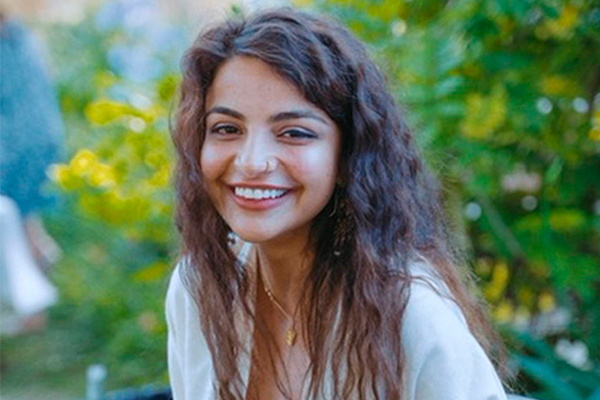
“My experience of the C reative W riting modules was of profound growth. The lecturers really invested in the development and success of my writing. Each piece I produced was knowledgeably, usefully and warmly critiqued.” — Numertha Geisinger, Student on MA Creative Writing module, MA English Literature 2021
Teaching takes a number of forms:
- Seminars, involving a variety of forms of group work
- Creative writing workshops
- Small-group tutorials (normally with advisor)
- Presentations by and discussions with visiting artists and writers
- Field trips, performance and gallery visits
- Individual guidance and feedback on written work (where requested)
- Group discussion of written and practical work
- Individual supervision of dissertations/Research Projects
- Writing retreats, workshops and student-led review sessions.
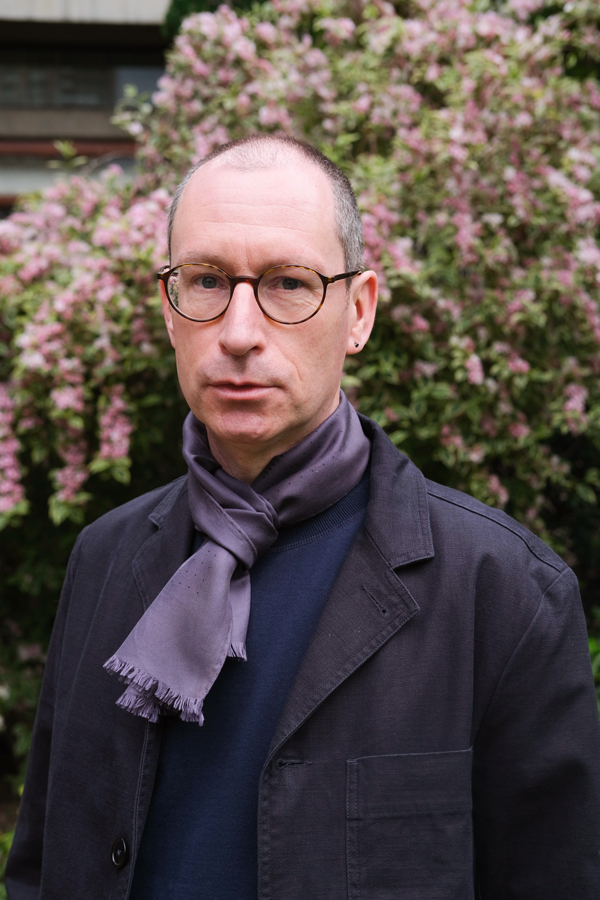
Professor Brian Dillon
Creative nonfiction; The practice and history of the essay; Autobiography and memoir; Writing and illness; Literature and the visual arts.
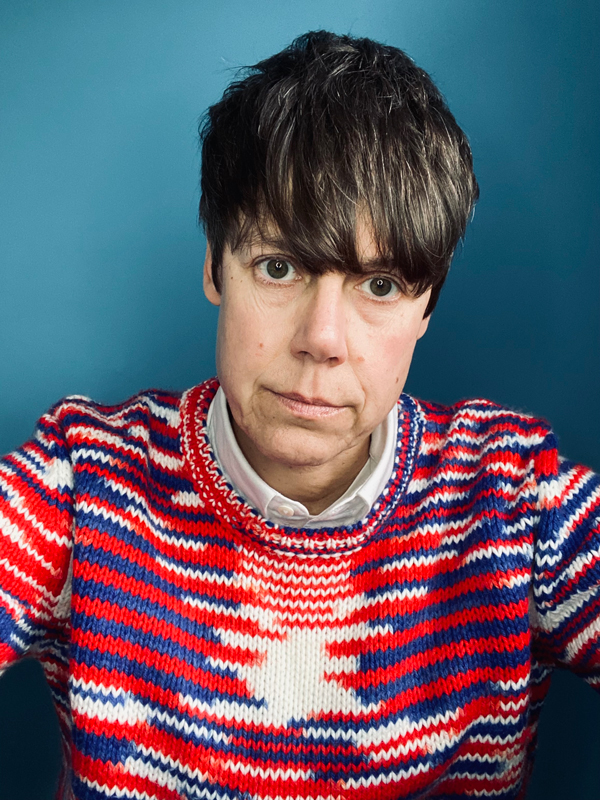
Dr Isabel Waidner
Interdisciplinary and innovative forms of creative writing, Queer and trans theory with an emphasis on intersectionality, Creative writing with performance and the visual arts, Creative-critical writing and practice-led research and Innovative fiction.
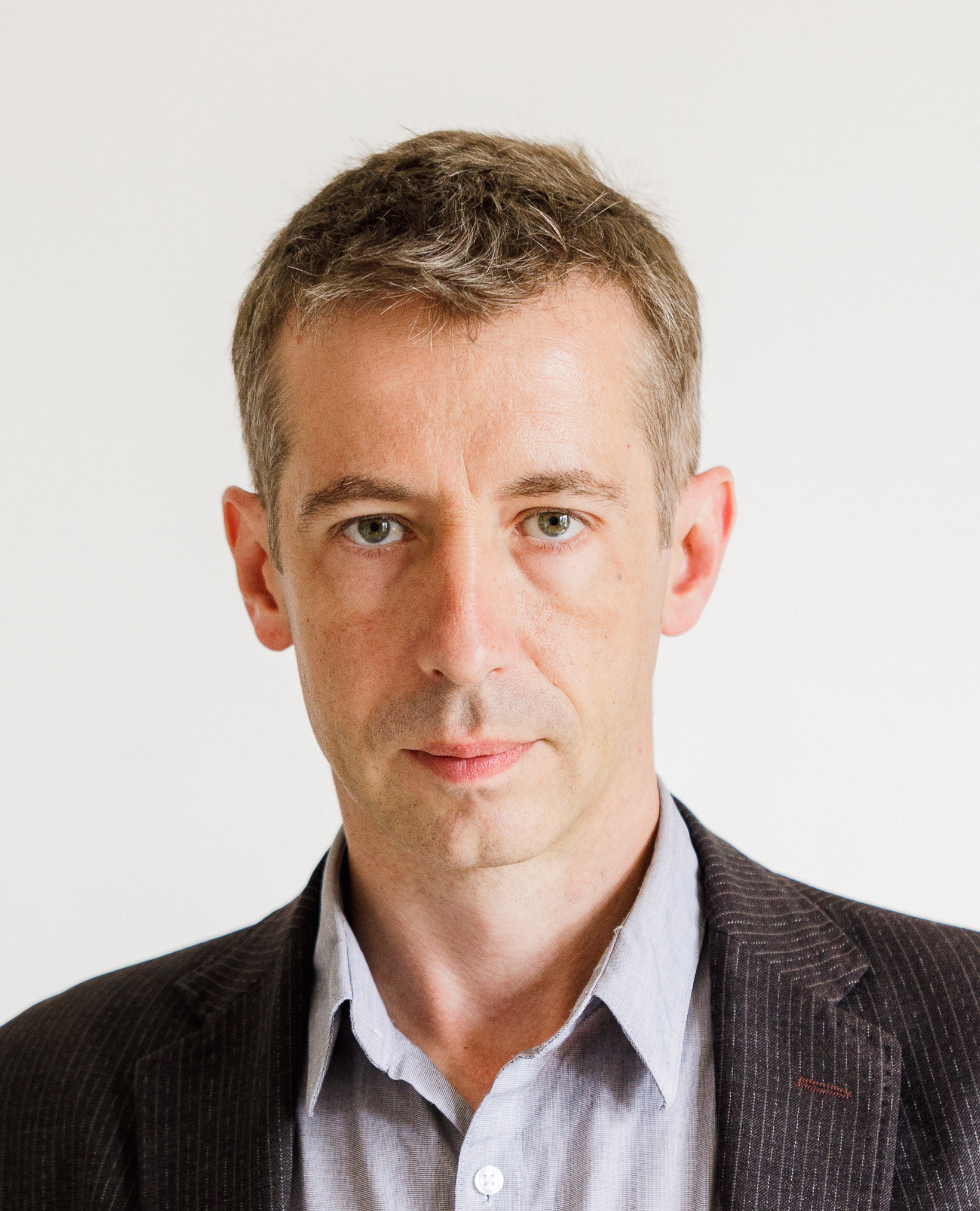
Dr Michael Hughes
Prose fiction; Historical Fiction; Style and voice; Form and narrative; Ludic Writing.
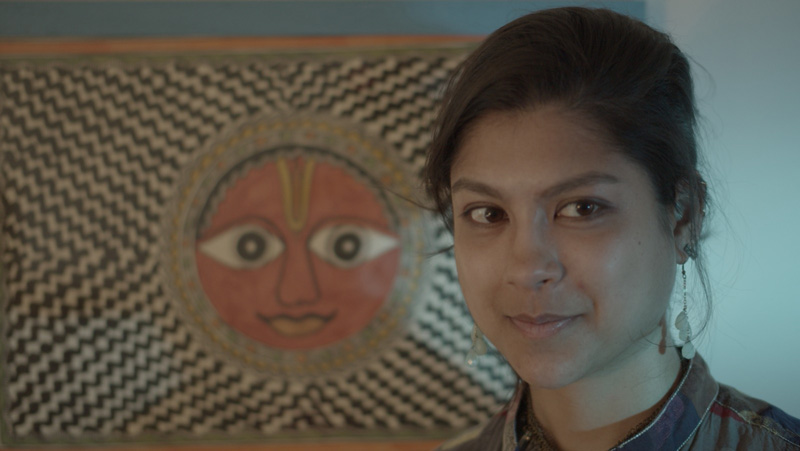
Dr Nisha Ramayya
BA, MA, DPhil (RHUL)
Contemporary and Experimental Poetry and Poetics; Critical Race Theory and Black Study; Feminist and Queer Theory; Visual, Sound, and Video Poetry, and Performance.
Where you'll learn
- Our Graduate Centre: purpose-built study spaces and a roof-top common room with a terrace
- Access to Queen Mary's libraries on all our campuses
- Access to a wide range of online resources (including journals, books, databases and media)
- University of London’s libraries, including Senate House
We are based in central London at Mile End with good access to London's creative writing scene.

About the School
School of the arts.
The School of the Arts combines innovation, discovery and excellence in education and research in Drama, Film, Modern Languages, English & Comparative Literature, Creative Writing, Linguistics and Liberal Arts. We rank in the top 100 worldwide for Arts and Humanities ( QS World University Rankings by Subject 2024)
With our commitment to social justice, inclusivity and social mobility, our collaborations with external organisations, prominent writers and performers, and our facilities that support both academic and practice-based learning, an education in the School of the Arts equips our students with critical thinking and practical skills, unleashes their imagination and enables them to reach the levels of excellence needed in today’s industries.
We regularly host prominent writers and performers and collaborate with leading organisations such as the V&A, the Barbican, the Live Art Development Agency and Shakespeare’s Globe.
We are renowned for the depth and impact of research - which leads our teaching. We rank 1 st for drama and in the top 10 for film in the UK for the quality of our research (REF2021). Our multilingual community brings together brilliant minds from across the world to share a wealth of expertise combining research excellence with an unrivalled commitment to social justice and social mobility.
Career paths
- Creative Industries
The MA Creative Writing provides a grounding in research methodologies and practices for students who intended to progress to doctoral work, an enhanced understanding of the study of literature relevant to students who intended to follow a teaching career, and improved competence in transferable skills valued more generally in the market place, including the analysis of complex evidence, the oral and written presentation of arguments and information, and effective time-management. Employer feedback has particularly valued the research skills and high level of critical thinking acquired by graduates of similar MA programmes and the contribution these make to the problem-solving abilities required of those who work at senior levels in complex organizations.
Fees and funding
Full-time study.
September 2025 | 1 year
- Home: £12,250
- Overseas: £25,500 EU/EEA/Swiss students
Unconditional deposit
Overseas: £2000 Information about deposits
Part-time study
September 2025 | 2 years
- Home: £6,150
- Overseas: £12,750 EU/EEA/Swiss students
Queen Mary alumni can get a £1000, 10% or 20% discount on their fees depending on the programme of study. Find out more about the Alumni Loyalty Award
There are a number of ways you can fund your postgraduate degree.
- Scholarships and bursaries
- Postgraduate loans (UK students)
- Country-specific scholarships for international students
Our Advice and Counselling service offers specialist support on financial issues, which you can access as soon as you apply for a place at Queen Mary. Before you apply, you can access our funding guides and advice on managing your money:
- Advice for UK and EU students
- Advice for international students
Entry requirements
Degree requirements.
Applicants are required to submit a sample of creative writing (between 1,000 and 2,000 words). This sample may include fiction, non-fiction, poetry or unclassifiable/hybrid writing.
Other routes
Promising applicants who do not meet the formal academic criteria but who possess relevant credentials and who can demonstrate their potential to produce written work at Masters level will also be considered on an individual basis. As part of the admissions process we may interview candidates. Applications from mature and non-traditional candidates are welcomed.
Find out more about how to apply for our postgraduate taught courses.
International
Afghanistan We normally consider the following qualifications for entry to our postgraduate taught programmes: Master Degree from a recognised institution. UK 1st class degree: 90%; or GPA 3.7 out of 4.0 UK 2:1 degree: 80%; or GPA 3.0 out of 4.0 UK 2:2 degree: 70%; or GPA 2.4 out of 4.0
Albania We normally consider the following qualifications for entry to our postgraduate taught programmes: Bachelor Degree from a recognised institution. UK 1st class degree: 9.5 out of 10 UK 2:1 degree: 8 out of 10 UK 2:2 degree: 7 out of 10
Algeria We normally consider the following qualifications for entry to our postgraduate taught programmes: Licence; Diplome de [subject area]; Diplome d'Etudes Superieures; Diplome de Docteur end Pharmacie; or Diplome de Docteur en Medecine from a recognised institution. UK 1st class degree: 16 out of 20 UK 2:1 degree: 14 out of 20 UK 2:2 degree: 12 out of 20
Angola We normally consider the following qualifications for entry to our postgraduate taught programmes: Grau de Licenciado/a (minimum 4 years) from selected institutions. UK 1st class degree: 17 out of 20 UK 2:1 degree: 15 out of 20 UK 2:2 degree: 13 out of 20
Argentina We normally consider the following qualifications for entry to our postgraduate taught programmes: Titulo/ Grado de Licenciado/ Titulo de [subject area] (minimum 4 years) from a recognised institution. UK 1st class degree: 9 out of 10 UK 2:1 degree: 7.5 out of 10 UK 2:2 degree: 6.5 out of 10
Armenia We normally consider the following qualifications for entry to our postgraduate taught programmes: Bachelor Degree or Specialist Diploma from a recognised institution. UK 1st class degree: 87 out of 100 UK 2:1 degree: 75 out of 100 UK 2:2 degree: 61 out of 100
Australia We normally consider the following qualifications for entry to our postgraduate taught programmes: Bachelor Degree (minimum 3 years) or Bachelor Honours degree from a recognised institution. UK 1st class degree: High Distinction; or First Class with Honours UK 2:1 degree: Distinction; or Upper Second Class with Honours UK 2:2 degree: Credit; or Lower Second Class with Honours
Austria We normally consider the following qualifications for entry to our postgraduate taught programmes: Bachelor Degree from a recognised institution. UK 1st class degree: 1.5 out of 5.0 UK 2:1 degree: 2.5 out of 5.0 UK 2:2 degree: 3.5 out of 5.0
The above relates to grading scale where 1 is the highest and 5 is the lowest.
Azerbaijan We normally consider the following qualifications for entry to our postgraduate taught programmes: Bachelor Degree or Specialist Diploma from a recognised institution. UK 1st class degree: 90%; or GPA 4.7 out of 5 UK 2:1 degree: 80%; or GPA 4 out of 5 UK 2:2 degree: 70%; or GPA 3.5 out of 5
Bahamas We normally consider the following qualifications for entry to our postgraduate taught programmes: Bachelor Degree (minimum 3 years) from the University of West Indies. UK 1st class degree: First Class Honours UK 2:1 degree: Upper Second Class Honours UK 2:2 degree: Lower Second Class Honours
Bahrain We normally consider the following qualifications for entry to our postgraduate taught programmes: Bachelor Degree from a recognised institution. UK 1st class degree: GPA 3.7 out of 4.0; or 90 out of 100 UK 2:1 degree: GPA 3.0 out of 4.0; or 80 out of 100 UK 2:2 degree: GPA 2.3 out of 4.0; or 74 out of 100
Bangladesh We normally consider the following qualifications for entry to our postgraduate taught programmes: Bachelor Degree (minimum 4 years) from selected institutions. UK 1st class degree: GPA 3.2 to 3.7 out of 4.0 UK 2:1 degree: GPA 3.0 to 3.3 out of 4.0 UK 2:2 degree: GPA 2.3 to 2.7 out of 4.0
Offer conditions will vary depending on the institution you are applying from. For some institutions/degrees we will ask for different grades to above, so this is only a guide.
Barbados We normally consider the following qualifications for entry to our postgraduate taught programmes: Bachelor Degree from the University of West Indies, Cave Hill or Barbados Community College. UK 1st class degree: First Class Honours*; or GPA 3.7 out of 4.0** UK 2:1 degree: Upper Second Class Honours*; or GPA 3.0 out of 4.0** UK 2:2 degree: Lower Second Class Honours*; or GPA 2.4 out of 4.0**
*relates to: the University of West Indies, Cave Hill.
**relates to: Barbados Community College.
Belarus We normally consider the following qualifications for entry to our postgraduate taught programmes: Bachelor Degree or Specialist Diploma (minimum 4 years) from a recognised institution. UK 1st class degree: 9 out of 10; or 4.7 out of 5 UK 2:1 degree: 7 out of 10; or 4 out of 5 UK 2:2 degree: 5 out of 10; or 3.5 out of 5
Belgium We normally consider the following qualifications for entry to our postgraduate taught programmes: Bachelor Degree (180 ECTS credits) from a recognised institution. UK 1st class degree: 80% or 16/20*; or 78%** UK 2:1 degree: 70% or 14/20*; or 72%** UK 2:2 degree: 60% or 12/20*; or 65%**
*Flanders (Dutch-speaking)/ Wallonia (French-speaking) **German-speaking
Belize We normally consider the following qualifications for entry to our postgraduate taught programmes: Bachelor Degree (minimum 3 years) from the University of West Indies. UK 1st class degree: First Class Honours UK 2:1 degree: Upper Second Class Honours UK 2:2 degree: Lower Second Class Honours
Benin We normally consider the following qualifications for entry to our postgraduate taught programmes: Maitrise or Masters from a recognised institution. UK 1st class degree: 16 out of 20 UK 2:1 degree: 14 out of 20 UK 2:2 degree: 12 out of 20
Bolivia We normally consider the following qualifications for entry to our postgraduate taught programmes: Titulo de Bachiller Universitario or Licenciado / Titulo de [subject area] (minimum 4 years) from a recognised institution. UK 1st class degree: 85%* or 80%** UK 2:1 degree: 75%* or 70%** UK 2:2 degree: 65%* or 60%**
*relates to: Titulo de Bachiller Universitario
**relates to: Licenciado / Titulo de [subject area]
Bosnia and Herzegovina We normally consider the following qualifications for entry to our postgraduate taught programmes: Bachelor Degree (minimum 3 years) from a recognised institution. UK 1st class degree: 9.5 out of 10 UK 2:1 degree: 8.5 out of 10 UK 2:2 degree: 7.5 out of 10
Botswana We normally consider the following qualifications for entry to our postgraduate taught programmes: Bachelor Degree (minimum 5 years) or Master Degree from the University of Botswana. UK 1st class degree: 80% UK 2:1 degree: 70% UK 2:2 degree: 60%
Brazil We normally consider the following qualifications for entry to our postgraduate taught programmes: Título de Bacharel / Título de [subject area] or Título de Licenciado/a (minimum 4 years) from a recognised institution. UK 1st class degree: 8.25 out of 10 UK 2:1 degree: 7.5 out of 10 UK 2:2 degree: 6.5 out of 10
The above grades assumes that the grading scale has a pass mark of 5.
Brunei We normally consider the following qualifications for entry to our postgraduate taught programmes: Bachelor Honours degree from a recognised institution. UK 1st class degree: First Class Honours UK 2:1 degree: Upper Second Class Honours UK 2:2 degree: Lower Second Class Honours
Bulgaria We normally consider the following qualifications for entry to our postgraduate taught programmes: Bachelor Degree from a recognised institution. UK 1st class degree: 5.75 out of 6.0 UK 2:1 degree: 4.75 out of 6.0 UK 2:2 degree: 4.0 out of 6.0
Burundi We normally consider the following qualifications for entry to our postgraduate taught programmes: Diplome d'Etudes Approfondies from a recognised institution. UK 1st class degree: 85%; or 16 out of 20 UK 2:1 degree: 75%; or 14 out of 20 UK 2:2 degree: 60%; or 12 out of 20
Cambodia We normally consider the following qualifications for entry to our postgraduate taught programmes: Masters Degree from a recognised institution. UK 1st class degree: 80%; or GPA 3.5 out of 4.0 UK 2:1 degree: 70%; or GPA 3.0 out of 4.0 UK 2:2 degree: 60%; or GPA 2.35 out of 4.0
Cameroon We normally consider the following qualifications for entry to our postgraduate taught programmes: Bachelor Degree; Licence; Diplome d'Etudes Superieures de Commerce; Diplome d'Ingenieur de Conception/ Travaux; Doctorat en Medecine/ Pharmacie; or Maitrise or Master 1 from selected institutions. UK 1st class degree: 16 out of 20; or GPA 3.6 out of 4.0 UK 2:1 degree: 14 out of 20; or GPA 3.0 out of 4.0 UK 2:2 degree: 12 out of 20; or GPA 2.5 out of 4.0
Canada We normally consider the following qualifications for entry to our postgraduate taught programmes: Bachelor Degree or Bachelor Honours Degree from a recognised institution. UK 1st class degree: GPA 3.6 out of 4.0 UK 2:1 degree: GPA 3.2 out of 4.0 UK 2:2 degree: GPA 2.5 out of 4.0
Chile We normally consider the following qualifications for entry to our postgraduate taught programmes: Grado de Licenciado en [subject area] or Titulo (Professional) de [subject area] (minimum 4 years) from a recognised institution. UK 1st class degree: 6.5 out of 7 UK 2:1 degree: 5.5 out of 7 UK 2:2 degree: 5 out of 7
China We normally consider the following qualifications for entry to our postgraduate taught programmes: Bachelor Degree (minimum 4 years) from selected institutions. UK 1st class degree: 85 to 95% UK 2:1 degree: 75 to 85% UK 2:2 degree: 70 to 80%
Offer conditions will vary depending on the institution you are applying from.
Colombia We normally consider the following qualifications for entry to our postgraduate taught programmes: Licenciado en [subject area] or Titulo de [subject area] (minimum 4 years) from a recognised institution. UK 1st class degree: 4.60 out of 5.00 UK 2:1 degree: 4.00 out of 5.00 UK 2:2 degree: 3.50 out of 5.00
Congo, Dem. Rep. of We normally consider the following qualifications for entry to our postgraduate taught programmes: Diplome d'Etudes Approfondies or Diplome d'Etudes Speciales from a recognised institution. UK 1st class degree: 16 out of 20; or 90% UK 2:1 degree: 14 out of 20; or 80% UK 2:2 degree: 12 out of 20; or 70%
Congo, Rep. of We normally consider the following qualifications for entry to our postgraduate taught programmes: Diplome d'Etudes Superieures or Maitrise from a recognised institution. UK 1st class degree: 16 out of 20 UK 2:1 degree: 14 out of 20 UK 2:2 degree: 12 out of 20
Costa Rica We normally consider the following qualifications for entry to our postgraduate taught programmes: Bachiller or Licenciado from a recognised institution. UK 1st class degree: 9 out of 10 UK 2:1 degree: 8 out of 10 UK 2:2 degree: 7.5 out of 10
Croatia We normally consider the following qualifications for entry to our postgraduate taught programmes: Bachelor Degree or Advanced Diploma of Higher Education Level VII/1 (Diploma - Visoko obrazovanje) from a recognised institution. UK 1st class degree: 4.5 out of 5 UK 2:1 degree: 4 out of 5 UK 2:2 degree: 3 out of 5
Cuba We normally consider the following qualifications for entry to our postgraduate taught programmes: Titulo de Licenciado/ Arquitecto/ Doctor/ Ingeniero from a recognised institution. UK 1st class degree: 4.7 out of 5 UK 2:1 degree: 4 out of 5 UK 2:2 degree: 3.5 out of 5
Cyprus We normally consider the following qualifications for entry to our postgraduate taught programmes: Bachelor Degree from a recognised institution. UK 1st class degree: 8 out of 10; or GPA 3.7 out of 4.0 UK 2:1 degree: 7.0 out of 10; or GPA 3.0 out of 4.0 UK 2:2 degree: 6.0 out of 10; or GPA 2.5 out of 4.0
Czech Republic We normally consider the following qualifications for entry to our postgraduate taught programmes: Bachelor Degree (180 ECTS credits) from a recognised institution. UK 1st class degree: 1.2 out of 4 UK 2:1 degree: 1.5 out of 4 UK 2:2 degree: 2.5 out of 4
The above relates to grading scale where 1 is the highest and 4 is the lowest.
Denmark We normally consider the following qualifications for entry to our postgraduate taught programmes: Bachelor degree from a recognised institution. UK 1st class degree: 12 out of 12 (2007 onwards); or 11 out of 13 (before 2007) UK 2:1 degree: 7 out of 12 (2007 onwards); or 8 out of 13 (before 2007) UK 2:2 degree: 4 out of 12 (2007 onwards); or 7 out of 13 (before 2007)
Dominican Republic We normally consider the following qualifications for entry to our postgraduate taught programmes: Licenciado/ Titulo de [subject area] (minimum 4 years) from a recognised institution. UK 1st class degree: 95/100 UK 2:1 degree: 85/100 UK 2:2 degree: 78/100
Ecuador We normally consider the following qualifications for entry to our postgraduate taught programmes: Titulo de Licenciado / Titulo de [subject area] (minimum 4 years) from a recognised institution. UK 1st class degree: 90%; or 9/10; or 19/20; or GPA 3.7 out of 4.0 UK 2:1 degree: 80%; or 8/10; or 18/20; or GPA 3.0 out of 4.0 UK 2:2 degree: 70%; or 7/10; or 14/20; or GPA 2.4 out of 4.0
Egypt We normally consider the following qualifications for entry to our postgraduate taught programmes: Bachelor Degree from selected institutions. UK 1st class degree: 85%; or GPA 3.7 out of 4 UK 2:1 degree: 75%; or GPA 3.0 out of 4 UK 2:2 degree: 65%; or GPA 2.5 out of 4
El Salvador We normally consider the following qualifications for entry to our postgraduate taught programmes: Licenciado/ Titulo de [subject area] (minimum 5 years) from a recognised institution. UK 1st class degree: 8.5 out of 10 UK 2:1 degree: 7.5 out of 10 UK 2:2 degree: 6.5 out of 10
Eritrea We normally consider the following qualifications for entry to our postgraduate taught programmes: Masters Degree from a recognised institution. UK 1st class degree: GPA 3.7 out of 4.0 UK 2:1 degree: GPA 3.0 out of 4.0 UK 2:2 degree: GPA 2.4 out of 4.0
Estonia We normally consider the following qualifications for entry to our postgraduate taught programmes: Bachelor Degree; University Specialist's Diploma; or Professional Higher Education Diploma from a recognised institution. UK 1st class degree: 4.5 out of 5 UK 2:1 degree: 3.5 out of 5 UK 2:2 degree: 2 out of 5
The above grades assumes that 1 is the pass mark.
Eswatini We normally consider the following qualifications for entry to our postgraduate taught programmes: Masters Degree from a recognised institution. UK 1st class degree: 80% UK 2:1 degree: 70% UK 2:2 degree: 60%
Ethiopia We normally consider the following qualifications for entry to our postgraduate taught programmes: Masters Degree from a recognised institution. UK 1st class degree: GPA 3.7 out of 4.0 UK 2:1 degree: GPA 3.0 out of 4.0 UK 2:2 degree: GPA 2.5 out of 4.0
Fiji We normally consider the following qualifications for entry to our postgraduate taught programmes: Bachelor Degree (minimum 3 years) from one of the following institutions: Fiji National University, the University of Fiji, or the University of South Pacific, Fiji. UK 1st class degree: GPA 4.0 out of 5.0*; or overall grade A with High Distinction pass**; or GPA 4.0 out of 4.5*** UK 2:1 degree: GPA 3.33 out of 5.0*; or overall grade B with Credit pass**; or GPA 3.5 out of 4.5*** UK 2:2 degree: GPA 2.33 out of 5.0*; or overall grade S (Satisfactory)**; or GPA 2.5 out of 4.5***
*relates to Fiji National University
**relate to the University of Fiji
***relates to the University of South Pacific, Fiji
Finland We normally consider the following qualifications for entry to our postgraduate taught programmes: Bachelor Degree/ Kandidaatti/ Kandidat (minimum 180 ECTS credits) from a recognised institution; or Bachelor degree (Ammattikorkeakoulututkinto/ Yrkeshögskoleexamen) from a recognised University of Applied Sciences. UK 1st class degree: 4.5 out of 5; or 2.8 out of 3 UK 2:1 degree: 3.5 out of 5; or 2 out of 3 UK 2:2 degree: 2.5 out of 5; or 1.4 out of 3
France We normally consider the following qualifications for entry to our postgraduate taught programmes: Licence; Grade de Licence; Diplome d'Ingenieur; or Maitrise from a recognised institution. UK 1st class degree: 14 out of 20 UK 2:1 degree: 12 out of 20 UK 2:2 degree: 11 out of 20
Gambia We normally consider the following qualifications for entry to our postgraduate taught programmes: Masters Degree from a recognised institution. UK 1st class degree: 80%; or GPA 4.0 out of 4.3 UK 2:1 degree: 67%; or GPA 3.3 out of 4.3 UK 2:2 degree: 60%; or GPA 2.7 out of 4.3
Georgia We normally consider the following qualifications for entry to our postgraduate taught programmes: Bachelor Degree or Specialist Diploma (minimum 4 years) from a recognised institution. UK 1st class degree: 91 out of 100; or 4.7 out of 5 UK 2:1 degree: 81 out of 100; or 4 out of 5 UK 2:2 degree: 71 out of 100; or 3.5 out of 5
Germany We normally consider the following qualifications for entry to our postgraduate taught programmes: Bachelor Degree (180 ECTS credits) from a recognised institution. UK 1st class degree: 1.5 out of 5.0 UK 2:1 degree: 2.5 out of 5.0 UK 2:2 degree: 3.5 out of 5.0
Ghana We normally consider the following qualifications for entry to our postgraduate taught programmes: Bachelor Degree from a recognised institution. UK 1st class degree: First Class UK 2:1 degree: Second Class (Upper Division) UK 2:2 degree: Second Class (Lower Division)
Greece We normally consider the following qualifications for entry to our postgraduate taught programmes: Degrees from recognised selected institutions in the University sector or Degrees (awarded after 2003) from recognised Technological Educational Institutes. UK 1st class degree: 8 out of 10*; or 9 out of 10** UK 2:1 degree: 7 out of 10*; or 7.5 out of 10** UK 2:2 degree: 6 out of 10*; or 6.8 out of 10**
*Relates to degrees from the University Sector. **Relates to degrees from Technological Educational Institutes.
Grenada We normally consider the following qualifications for entry to our postgraduate taught programmes: Bachelor Degree (minimum 3 years) from the University of West Indies. UK 1st class degree: First Class Honours UK 2:1 degree: Upper Second Class Honours UK 2:2 degree: Lower Second Class Honours
Guatemala We normally consider the following qualifications for entry to our postgraduate taught programmes: Licenciado / Titulo de [subject area] (minimum 4 years) from a recognised institution. UK 1st class degree: 90% UK 2:1 degree: 80% UK 2:2 degree: 70%
The above grades assumes that the pass mark is 61% or less.
Guinea We normally consider the following qualifications for entry to our postgraduate taught programmes: Master; Maitrise; Diplome d'Etudes Superieures; or Diplome d'Etudes Approfondies from a recognised institution. UK 1st class degree: 16 out of 20 UK 2:1 degree: 14 out of 20 UK 2:2 degree: 12 out of 20
Guyana We normally consider the following qualifications for entry to our postgraduate taught programmes: Graduate Diploma (Postgraduate) or Masters degree from a recognised institution. UK 1st class degree: GPA 3.7 out of 4.0 UK 2:1 degree: GPA 3.0 out of 4.0 UK 2:2 degree: GPA 2.4 out of 4.0
Honduras We normally consider the following qualifications for entry to our postgraduate taught programmes: Titulo de Licenciado/a / Grado Academico de Licenciatura (minimum 4 years) from a recognised institution. UK 1st class degree: 90%; or 4.7 out of 5; or GPA 3.7 out of 4.0 UK 2:1 degree: 80%; or 4.0 out of 5; or GPA 3.0 out of 4.0 UK 2:2 degree: 70%; or 3.5 out of 5; or GPA 2.4 out of 4.0
Hong Kong We normally consider the following qualifications for entry to our postgraduate taught programmes: Bachelor Honours Degree from selected institutions. UK 1st class degree: First Class Honours UK 2:1 degree: Upper Second Class Honours UK 2:2 degree: Lower Second Class Honours
Hungary We normally consider the following qualifications for entry to our postgraduate taught programmes: Bachelor degree (Alapfokozat) or University Diploma (Egyetemi Oklevel) from a recognised institution. UK 1st class degree: 4.75 out of 5 UK 2:1 degree: 4 out of 5 UK 2:2 degree: 3.5 out of 5
Iceland We normally consider the following qualifications for entry to our postgraduate taught programmes: Bachelor degree (Baccalaureus or Bakkalarprof) from a recognised institution. UK 1st class degree: 8.25 out of 10 UK 2:1 degree: 7.25 out of 10 UK 2:2 degree: 6.5 out of 10
India We normally consider the following qualifications for entry to our postgraduate taught programmes: Bachelor Degree (minimum 3 years) from selected institutions. UK 1st class degree: 75% to 80% UK 2:1 degree: 60% to 70% UK 2:2 degree: 50% to 60%
Offer conditions will vary depending on the institution you are applying from. For some institutions/degrees we will ask for different grades to above, so this is only a guide.
For India, offers may be made on the GPA scale.
We do not consider the Bachelor of Vocation (B. Voc.) for Masters entry.
Indonesia We normally consider the following qualifications for entry to our postgraduate taught programmes: Sarjna I (S1) Bachelor Degree or Diploma IV (D4) (minimum 4 years) from selected degree programmes and institutions. UK 1st class degree: GPA 3.6 to 3.8 out of 4.0 UK 2:1 degree: GPA 3.0 to 3.2 out of 4.0 UK 2:2 degree: GPA 2.67 to 2.8 out of 4.0
Offer conditions will vary depending on the institution you are applying from and the degree that you study.
Iran We normally consider the following qualifications for entry to our postgraduate taught programmes: Bachelor Degree from a recognised institution. UK 1st class degree: 17.5 to 18.5 out of 20 UK 2:1 degree: 15 to 16 out of 20 UK 2:2 degree: 13.5 to 14 out of 20
Iraq We normally consider the following qualifications for entry to our postgraduate taught programmes: Bachelor Degree (minimum 4 years) from a recognised institution. UK 1st class degree: 85 out of 100 UK 2:1 degree: 75 out of 100 UK 2:2 degree: 60 out of 100
Ireland We normally consider the following qualifications for entry to our postgraduate taught programmes: Honours Bachelor Degree from a recognised institution. UK 1st class degree: First Class Honours UK 2:1 degree: Second Class Honours Grade I UK 2:2 degree: Second Class Honours Grade II
Israel We normally consider the following qualifications for entry to our postgraduate taught programmes: Bachelor Degree from a recognised institution. UK 1st class degree: 90% UK 2:1 degree: 80% UK 2:2 degree: 65%
Italy We normally consider the following qualifications for entry to our postgraduate taught programmes: Laurea (180 ECTS credits) from a recognised institution. UK 1st class degree: 110 out of 110 UK 2:1 degree: 105 out of 110 UK 2:2 degree: 94 out of 110
Cote D’ivoire (Ivory Coast) We normally consider the following qualifications for entry to our postgraduate taught programmes: Diplome d'Ingenieur; Doctorat en Medicine; Maitrise; Master; Diplome d'Etudes Approfondies; or Diplome d'Etudes Superieures Specialisees from selected institutions. UK 1st class degree: 16 out of 20 UK 2:1 degree: 14 out of 20 UK 2:2 degree: 12 out of 20
Jamaica We normally consider the following qualifications for entry to our postgraduate taught programmes: Bachelor Degree (minimum 3 years) from the University of West Indies (UWI) or a recognised institution. UK 1st class degree: GPA 3.7 out of 4.0; or First Class Honours from the UWI UK 2:1 degree: GPA 3.0 out of 4.0; or Upper Second Class Honours from the UWI UK 2:2 degree: GPA 2.4 out of 4.0; or Lower Second Class Honours from the UWI
Japan We normally consider the following qualifications for entry to our postgraduate taught programmes: Bachelor Degree from selected institutions. UK 1st class degree: S overall* or A overall**; or 90%; or GPA 3.70 out of 4.00 UK 2:1 degree: A overall* or B overall**; or 80%; or GPA 3.00 out of 4.00 UK 2:2 degree: B overall* or C overall**; or 70%; or GPA 2.3 out of 4.00
*Overall mark is from the grading scale: S, A, B, C (S is highest mark) **Overall mark is from the grading scale: A, B, C, D (A is highest mark)
Jordan We normally consider the following qualifications for entry to our postgraduate taught programmes: Bachelor Degree from a recognised institution. UK 1st class degree: 85%; or GPA of 3.7 out of 4.0 UK 2:1 degree: 75%; or GPA of 3.0 out of 4.0 UK 2:2 degree: 70%; or GPA of 2.5 out of 4.0
Kazakhstan We normally consider the following qualifications for entry to our postgraduate taught programmes: Bachelor Degree or Specialist Diploma from a recognised institution. UK 1st class degree: 3.8 out of 4.0/4.33; or 4.7 out of 5 UK 2:1 degree: 3.33 out of 4.0/4.33; or 4.0 out of 5 UK 2:2 degree: 2.67 out of 4.0/4.33; or 3.5 out of 5
Kenya We normally consider the following qualifications for entry to our postgraduate taught programmes: Bachelor Degree (minimum 4 years) from a recognised institution. UK 1st class degree: First Class Honours; or GPA 3.6 out of 4.0 UK 2:1 degree: Second Class Honours Upper Division; or GPA 3.0 out of 4.0 UK 2:2 degree: Second Class Honours Lower Division; or GPA 2.4 out of 4.0
Kosovo We normally consider the following qualifications for entry to our postgraduate taught programmes: Bachelor Degree from a recognised institution. UK 1st class degree: 9.5 out of 10 UK 2:1 degree: 8.5 out of 10 UK 2:2 degree: 7.5 out of 10
Kuwait We normally consider the following qualifications for entry to our postgraduate taught programmes: Bachelor Degree from a recognised institution. UK 1st class degree: GPA 3.67 out of 4.0 UK 2:1 degree: GPA 3.0 out of 4.0 UK 2:2 degree: GPA 2.67 out of 4.0
Kyrgyzstan We normally consider the following qualifications for entry to our postgraduate taught programmes: Bachelor Degree or Specialist Diploma (minimum 4 years) from a recognised institution. UK 1st class degree: 4.7 out of 5; or GPA 3.7 out of 4 UK 2:1 degree: 4.0 out of 5; or GPA 3.0 out of 4 UK 2:2 degree: 3.5 out of 5; or GPA 2.4 out of 4
Laos We normally consider the following qualifications for entry to our postgraduate taught programmes: Masters Degree from a recognised institution. UK 1st class degree: GPA 3.7 out of 4.0 UK 2:1 degree: GPA 3.0 out of 4.0 UK 2:2 degree: GPA 2.4 out of 4.0
Latvia We normally consider the following qualifications for entry to our postgraduate taught programmes: Bachelor Degree (awarded after 2002) from a recognised institution. UK 1st class degree: 9.5 out of 10 UK 2:1 degree: 7.5 out of 10 UK 2:2 degree: 6 out of 10
Lebanon We normally consider the following qualifications for entry to our postgraduate taught programmes: Bachelor Degree; Licence; or Maitrise from a recognised institution. UK 1st class degree: 90% or Grade A; or GPA 3.7 out of 4.0; or 16 out of 20 (French system) UK 2:1 degree: 80% or Grade B; or GPA 3.0 out of 4.0; or 13 out of 20 (French system) UK 2:2 degree: 70% or Grade C; or GPA 2.5 out of 4.0; or 12 out of 20 (French system)
Lesotho We normally consider the following qualifications for entry to our postgraduate taught programmes: Bachelor Honours Degree (minimum 5 years total HE study); Masters Degree or Postgraduate Diploma from selected institutions. UK 1st class degree: 80% UK 2:1 degree: 70% UK 2:2 degree: 60%
Liberia We normally consider the following qualifications for entry to our postgraduate taught programmes: Masters Degree from a recognised institution. UK 1st class degree: 90% or GPA 3.7 out of 4.0 UK 2:1 degree: 80% or GPA 3.0 out of 4.0 UK 2:2 degree: 70% or GPA 2.4 out of 4.0
Libya We normally consider the following qualifications for entry to our postgraduate taught programmes: Bachelor Degree from selected institutions. UK 1st class degree: 85%; or 3.7 out of 4.0 GPA UK 2:1 degree: 75%; or 3.0 out of 4.0 GPA UK 2:2 degree: 65%; or 2.6 out of 4.0 GPA
Liechtenstein We normally consider the following qualifications for entry to our postgraduate taught programmes: Bachelor Degree (180 ECTS credits) from a recognised institution. UK 1st class degree: 5.6 out of 6.0 UK 2:1 degree: 5.0 out of 6.0 UK 2:2 degree: 4.4 out of 6.0
Lithuania We normally consider the following qualifications for entry to our postgraduate taught programmes: Bachelor Degree (minimum 180 ECTS credits) from a recognised institution. UK 1st class degree: 9.5 out of 10 UK 2:1 degree: 8 out of 10 UK 2:2 degree: 7 out of 10
Luxembourg We normally consider the following qualifications for entry to our postgraduate taught programmes: Bachelor Degree from a recognised institution. UK 1st class degree: 16 out of 20 UK 2:1 degree: 14 out of 20 UK 2:2 degree: 12 out of 20
Macau We normally consider the following qualifications for entry to our postgraduate taught programmes: Bachelor Degree (Licenciatura) (minimum 4 years) from a recognised institution. UK 1st class degree: GPA 3.7 out of 4.0 UK 2:1 degree: GPA 3.0 out of 4.0 UK 2:2 degree: GPA 2.5 out of 4.0
Macedonia We normally consider the following qualifications for entry to our postgraduate taught programmes: Diploma of Completed Higher Education - Level VII/1 or Bachelor Degree from a recognised institution. UK 1st class degree: 9.5 out of 10 UK 2:1 degree: 8.5 out of 10 UK 2:2 degree: 7 out of 10
Madagascar We normally consider the following qualifications for entry to our postgraduate taught programmes: Maîtrise; Diplome d'Ingenieur; Diplôme d'Etat de Docteur en Médecine; Diplôme d’Etat de Docteur en Chirurgie Dentaire; Diplôme d'Études Approfondies; Diplôme de Magistère (Première Partie) – also known as Master 1; or Diplôme de Master – also known as Master 2 from a recognised institution. UK 1st class degree: 16 out of 20 UK 2:1 degree: 14 out of 20 UK 2:2 degree: 12 out of 20
Malawi We normally consider the following qualifications for entry to our postgraduate taught programmes: Masters Degree from selected institutions. UK 1st class degree: 80% or GPA 3.7 out of 4.0 UK 2:1 degree: 70% or GPA 3.0 out of 4.0 UK 2:2 degree: 60% or GPA 2.4 out of 4.0
Malaysia We normally consider the following qualifications for entry to our postgraduate taught programmes: Bachelor Degree from a recognised institution. UK 1st class degree: Class 1; or 3.7 out of 4.0 CGPA UK 2:1 degree: Class 2 division 1; or 3.0 out of 4.0 CGPA UK 2:2 degree: Class 2 division 2; or 2.6 out of 4.0 CGPA
Maldives We normally consider the following qualifications for entry to our postgraduate taught programmes: Bachelor Degree (awarded from 2000) from the Maldives National University. UK 1st class degree: GPA 3.7 out of 4.0 UK 2:1 degree: GPA 3.0 out of 4.0 UK 2:2 degree: GPA 2.5 out of 4.0
Malta We normally consider the following qualifications for entry to our postgraduate taught programmes: Bachelor Degree or Bachelor Honours Degree from a recognised institution. UK 1st class degree: First Class Honours; or Category I UK 2:1 degree: Upper Second Class Honours; or Category IIA UK 2:2 degree: Lower Second Class Honours; or Category IIB
Mauritius We normally consider the following qualifications for entry to our postgraduate taught programmes: Bachelor Degree from a recognised institution. UK 1st class degree: Class I; or 70% UK 2:1 degree: Class II division I; or 60% UK 2:2 degree: Class II division II; or 50%
Offer conditions will vary depending on the grading scale used by your institution.
Mexico We normally consider the following qualifications for entry to our postgraduate taught programmes: Titulo de Licenciado/ Titulo (Profesional) de [subject area] from a recognised institution. UK 1st class degree: 9.0 to 9.5 out of 10 UK 2:1 degree: 8.0 to 8.5 out of 10 UK 2:2 degree: 7.0 to 7.5 out of 10
Offer conditions will vary depending on the grading scale your institution uses.
Moldova We normally consider the following qualifications for entry to our postgraduate taught programmes: Bachelor Degree (Diploma de Licenta) from a recognised institution. UK 1st class degree: 9.5 out of 10 UK 2:1 degree: 8 out of 10 UK 2:2 degree: 6.5 out of 10
Monaco We normally consider the following qualifications for entry to our postgraduate taught programmes: Bachelor Degree from a recognised institution. UK 1st class degree: GPA 3.7 out of 4.0 UK 2:1 degree: GPA 3.0 out of 4.0 UK 2:2 degree: GPA 2.5 out of 4.0
Mongolia We normally consider the following qualifications for entry to our postgraduate taught programmes: Bachelor Degree (minimum 4 years) from selected institutions. UK 1st class degree: GPA 3.6 out of 4.0; or 90%; or grade A UK 2:1 degree: GPA 3.2 out of 4.0; or 80%; or grade B UK 2:2 degree: GPA 2.8 out of 4.0; or 70%; or grade C
Montenegro We normally consider the following qualifications for entry to our postgraduate taught programmes: Diploma of Completed Academic Undergraduate Studies; Diploma of Professional Undergraduate Studies; or Advanced Diploma of Higher Education from a recognised institution. UK 1st class degree: 9.5 out of 10 UK 2:1 degree: 8.5 out of 10 UK 2:2 degree: 7 out of 10
Morocco We normally consider the following qualifications for entry to our postgraduate taught programmes: Diplome d'Ecoles Nationales de Commerce et de Gestion; Diplome de Docteur Veterinaire; Doctorat en Medecine; Docteur en Medecine Dentaire; Licence; Diplome d'Inegeniuer d'Etat; Diplome de Doctorat en Pharmacie; or Maitrise from a recognised institution. UK 1st class degree: 16 out of 20 UK 2:1 degree: 13 out of 20 UK 2:2 degree: 11 out of 20
Mozambique We normally consider the following qualifications for entry to our postgraduate taught programmes: Grau de Licenciado (minimum 4 years) or Grau de Mestre from a recognised institution. UK 1st class degree: 16 out of 20 UK 2:1 degree: 14 out of 20 UK 2:2 degree: 12 out of 20
Myanmar We normally consider the following qualifications for entry to our postgraduate taught programmes: Masters Degree from a recognised institution. UK 1st class degree: 80% or GPA of 4.7 out of 5.0 UK 2:1 degree: 70% or GPA of 4.0 out of 5.0 UK 2:2 degree: 60% or GPA of 3.5 out of 5.0
Namibia We normally consider the following qualifications for entry to our postgraduate taught programmes: Bachelor Honours Degree or Professional Bachelor Degree (NQF level 8 qualifications) - these to be awarded after 2008 from a recognised institution. UK 1st class degree: 80% UK 2:1 degree: 70% UK 2:2 degree: 60%
Nepal We normally consider the following qualifications for entry to our postgraduate taught programmes: Bachelor Degree (minimum 4 years) from selected institutions. UK 1st class degree: 80%; or GPA 3.7 out of 4.0 UK 2:1 degree: 65%; or GPA 3.0 out of 4.0 UK 2:2 degree: 55%; or GPA of 2.4 out of 4.0
Bachelor in Nursing Science are not considered equivalent to UK Bachelor degrees.
Netherlands We normally consider the following qualifications for entry to our postgraduate taught programmes: Bachelor Degree from a recognised institution. UK 1st class degree: 8 out of 10 UK 2:1 degree: 7 out of 10 UK 2:2 degree: 6 out of 10
New Zealand We normally consider the following qualifications for entry to our postgraduate taught programmes: Bachelor Degree (minimum 3 years) or Bachelor Honours Degree from a recognised institution. UK 1st class degree: A-*; or First Class Honours** UK 2:1 degree: B*; or Second Class (Division 1) Honours** UK 2:2 degree: C+*; or Second Class (Division 2) Honours**
*from a Bachelor degree **from a Bachelor Honours degree
Nigeria We normally consider the following qualifications for entry to our postgraduate taught programmes: Bachelor Degree from selected institutions. UK 1st class degree: GPA 4.50 out of 5.00; or GPA 6.0 out of 7.0 UK 2:1 degree: GPA 3.50 out of 5.00; or GPA 4.6 out of 7.0 UK 2:2 degree: GPA 2.80 out of 5.00; or GPA 3.0 out of 7.0
Norway We normally consider the following qualifications for entry to our postgraduate taught programmes: Bachelor Degree (180 ECTS credits) from a recognised institution. UK 1st class degree: Overall B grade with at least 75 ECTS (of 180 ECTS min overall) at grade A or above. UK 2:1 degree: Overall B grade UK 2:2 degree: Overall C grade
Oman We normally consider the following qualifications for entry to our postgraduate taught programmes: Bachelor Degree from a recognised institution. UK 1st class degree: GPA 3.7 out of 4.0 UK 2:1 degree: GPA 3.0 out of 4.0 UK 2:2 degree: GPA 2.5 out of 4.0
Pakistan We normally consider the following qualifications for entry to our postgraduate taught programmes: Bachelor Degree (minimum 4 years) from selected institutions. UK 1st class degree: GPA 3.0 to 3.8 out of 4.0 UK 2:1 degree: GPA 2.6 to 3.6 out of 4.0 UK 2:2 degree: GPA 2.0 to 3.0 out of 4.0
Palestine, State of We normally consider the following qualifications for entry to our postgraduate taught programmes: Bachelor Degree from a recognised institution. UK 1st class degree: 90% or GPA 3.7 out of 4.0 UK 2:1 degree: 80% or GPA 3.0 out of 4.0 UK 2:2 degree: 70% or GPA 2.4 out of 4.0
Panama We normally consider the following qualifications for entry to our postgraduate taught programmes: Licenciado / Titulo de [subject area] (minimum 4 years) from a recognised institution. UK 1st class degree: 91% UK 2:1 degree: 81% UK 2:2 degree: 71%
Papua New Guinea We normally consider the following qualifications for entry to our postgraduate taught programmes: Bachelor Honours Degree from a recognised institution. UK 1st class degree: Class I UK 2:1 degree: Class II, division A UK 2:2 degree: Class II, division B
Paraguay We normally consider the following qualifications for entry to our postgraduate taught programmes: Titulo de Licenciado / Titulo de [professional title] (minimum 4 years) from a recognised institution. UK 1st class degree: 4.7 out of 5 UK 2:1 degree: 4 out of 5 UK 2:2 degree: 3.5 out fo 5
Peru We normally consider the following qualifications for entry to our postgraduate taught programmes: Grado Academico de Bachiller or Titulo de Licenciado/ Titulo (Professional) de [subject area] from a recognised institution. UK 1st class degree: 17 out of 20 UK 2:1 degree: 14 out of 20 UK 2:2 degree: 12 out of 20
Philippines We normally consider the following qualifications for entry to our postgraduate taught programmes: Bachelor Degree from selected institutions or Juris Doctor; Bachelor of Laws; Doctor of Medicine; Doctor of Dentistry/ Optometry/ Veterinary Medicine; or Masters Degree from recognised institutions. UK 1st class degree: 3.6 out of 4.0; or 94%; or 1.25 out of 5 UK 2:1 degree: 3.0 out of 4.0; or 86%; or 1.75 out of 5 UK 2:2 degree: 2.5 out of 4.0; or 80%; or 2.5 out of 5
The above 'out of 5' scale assumes 1 is highest mark and 3 is the pass mark.
Poland We normally consider the following qualifications for entry to our postgraduate taught programmes: Licencjat or Inzynier (minimum 3 years) - these must be awarded after 2001 from a recognised institution. UK 1st class degree: 4.8 out of 5.0 UK 2:1 degree: 4.5 out of 5.0 UK 2:2 degree: 3.8 out of 5.0
The above grades are based on the 2 to 5 scale, where 3 is the pass mark and 5 is the highest mark.
Portugal We normally consider the following qualifications for entry to our postgraduate taught programmes: Licenciado (minimum 180 ECTS credits) or Diploma de Estudos Superiores Especializados (DESE) from a recognised institution. UK 1st class degree: 16 out of 20 UK 2:1 degree: 14 out of 20 UK 2:2 degree: 12 out of 20
Puerto Rico We normally consider the following qualifications for entry to our postgraduate taught programmes: Bachelor Degree (minimum 3 years) from a recognised institution. UK 1st class degree: 90/100 or GPA 3.7 out of 4.0 UK 2:1 degree: 80/100 or GPA 3.0 out of 4.0 UK 2:2 degree: 70/100 or GPA 2.4 out of 4.0
Qatar We normally consider the following qualifications for entry to our postgraduate taught programmes: Bachelor Degree from a recognised institution. UK 1st class degree: GPA 3.7 out of 4.0; or GPA 4.4 out of 5.0 UK 2:1 degree: GPA 3.0 out of 4.0; or GPA 3.6 out of 5.0 UK 2:2 degree: GPA 2.4 out of 4.0; or GPA 2.8 out of 5.0
Romania We normally consider the following qualifications for entry to our postgraduate taught programmes: Bachelor Degree (minimum 180 ECTS credits) from a recognised institution. UK 1st class degree: 9.75 out of 10 UK 2:1 degree: 8.0 out of 10 UK 2:2 degree: 7.0 out of 10
Russia We normally consider the following qualifications for entry to our postgraduate taught programmes: Bachelor Degree or Specialist Diploma from a recognised institution. UK 1st class degree: 4.7 out of 5 UK 2:1 degree: 4.0 out of 5 UK 2:2 degree: 3.5 out of 5
Rwanda We normally consider the following qualifications for entry to our postgraduate taught programmes: Bachelor Honours Degree (minimum 4 years) from a recognised institution. UK 1st class degree: 85%; or 17 out of 20 UK 2:1 degree: 70%; or 15 out of 20 UK 2:2 degree: 60%; or 13 out of 20
Saudi Arabia We normally consider the following qualifications for entry to our postgraduate taught programmes: Bachelor Degree from a recognised institution. UK 1st class degree: GPA 4.75 out of 5.0; or GPA 3.75 out of 4.0 UK 2:1 degree: GPA 3.75 out of 5.0; or GPA 3.0 out of 4.0 UK 2:2 degree: GPA 3.0 out of 5.0; or GPA 2.4 out of 4.0
Senegal We normally consider the following qualifications for entry to our postgraduate taught programmes: Maîtrise; Master II; Diplôme d'Études Approfondies (DEA); Diplôme d'Études Supérieures Specialisées (DESS); Diplôme d'État de Docteur en Médecine; Diplôme d'Ingénieur; Diplôme de Docteur en Chirurgie Dentaire; or Diplôme de Pharmacien from a recognised institution. UK 1st class degree: 16/20 UK 2:1 degree: 14/20 UK 2:2 degree: 12/20
Serbia We normally consider the following qualifications for entry to our postgraduate taught programmes: Bachelor Degree or Advanced Diploma of Higher Education from a recognised institution. UK 1st class degree: 9 out of 10 UK 2:1 degree: 8 out of 10 UK 2:2 degree: 7 out of 10
Sierra Leone We normally consider the following qualifications for entry to our postgraduate taught programmes: Bachelor Degree (Honours) or a Masters degree from a recognised institution. UK 1st class degree: First Class honours; or GPA 4.7 out of 5; or GPA 3.75 out of 4 UK 2:1 degree: Upper Second Class honours; or GPA 4 out of 5; or GPA 3.25 out of 4 UK 2:2 degree: Lower Second Class Honours; or GPA 3.4 out of 5; or GPA 2.75 out of 4
Singapore We normally consider the following qualifications for entry to our postgraduate taught programmes: Bachelor Degree (minimum 3 years) or Bachelor Honours degree from selected institutions. UK 1st class degree: GPA 4.3 out of 5.0; or GPA 3.6 out of 4.0 UK 2:1 degree: GPA 3.8 out of 5.0; or GPA 3.0 out of 4.0 UK 2:2 degree: GPA 3.3 out of 5.0; or GPA 2.5 out of 4.0
Slovakia We normally consider the following qualifications for entry to our postgraduate taught programmes: Bachelor Degree (180 ECTS credits) (minimum 3 years) from a recognised institution. UK 1st class degree: 93%; or 1 overall (on 1 to 4 scale, where 1 is highest mark) UK 2:1 degree: 86%; or 1.5 overall (on 1 to 4 scale, where 1 is highest mark) UK 2:2 degree: 72%; or 2.5 overall (on 1 to 4 scale, where 1 is highest mark)
Slovenia We normally consider the following qualifications for entry to our postgraduate taught programmes: Univerzitetni Diplomant (180 ECTS credits) (minimum 3 years) from a recognised institution. UK 1st class degree: 9.5 out of 10 UK 2:1 degree: 8 out of 10 UK 2:2 degree: 7 out of 10
Somalia Bachelor degrees from Somalia are not considered for direct entry to our postgraduate taught programmes. Holders of Bachelor degrees from Somali National University can be considered for our Pre-Masters programmes on a case by case basis.
South Africa We normally consider the following qualifications for entry to our postgraduate taught programmes: NQF Level 8 qualifications such as Bachelor Honours degrees or Professional Bachelor degrees from a recognised institution. UK 1st class degree: 75% UK 2:1 degree: 70% UK 2:2 degree: 60%
South Korea We normally consider the following qualifications for entry to our postgraduate taught programmes: Bachelor Degree (minimum 4 years) from a recognised institution. UK 1st class degree: GPA 4.2 out of 4.5; or GPA 4.0 out of 4.3; or GPA 3.7 out of 4.0 UK 2:1 degree: GPA 3.5 out of 4.5; or GPA 3.3 out of 4.3; or GPA 3.2 out of 4.0 UK 2:2 degree: GPA 3.0 out of 4.5; or GPA 2.8 out of 4.3; or GPA 2.5 out of 4.0
Spain We normally consider the following qualifications for entry to our postgraduate taught programmes: Titulo Universitario Oficial de Graduado en [subject area] (Grado) or Titulo Universitario Oficial de Licenciado en [subject area] (Licenciatura) from a recognised institution. UK 1st class degree: 8.0 out of 10; or 2.5 out of 4.0 UK 2:1 degree: 7.0 out of 10; or 2.0 out of 4.0 UK 2:2 degree: 6.0 out of 10; or 1.5 out of 4.0
Sri Lanka We normally consider the following qualifications for entry to our postgraduate taught programmes: Bachelor Degree (Special or Honours) or Bachelor Degree (Professional) (minimum 4 years) from a recognised institution. UK 1st class degree: GPA 3.5 out of 4.0 UK 2:1 degree: GPA 3.0 out of 4.0 UK 2:2 degree: GPA 2.4 out of 4.0
Sudan We normally consider the following qualifications for entry to our postgraduate taught programmes: Bachelor Honours degree from a recognised institution or Bachelor degree in one of the following Professional subjects: Architecture; Dentistry; Engineering; Medicine/Surgery from a recognised institution. UK 1st class degree: 80% UK 2:1 degree: 65% UK 2:2 degree: 60%
Sweden We normally consider the following qualifications for entry to our postgraduate taught programmes: Bachelor Degree (Kandidatexamen) or Professional Bachelor Degree (Yrkesexamenfrom) (180 ECTS credits) from a recognised institution. UK 1st class degree: Overall B grade with at least 75 ECTS at grade A or above (180 ECTS minimum overall); or at least 65% of credits graded at VG overall UK 2:1 degree: Overall B grade (180 ECTS minimum overall); or at least 50% of credits graded at VG overall UK 2:2 degree: Overall C grade (180 ECTS minimum overall); or at least 20% of credits graded at VG overall.
Switzerland We normally consider the following qualifications for entry to our postgraduate taught programmes: Bachelor degree (180 ECTS credits) from a recognised institution. UK 1st class degree: 5.5 out of 6; or 9 out of 10 UK 2:1 degree: 5 out of 6; or 8 out of 10 UK 2:2 degree: 4.25 out of 6; or 7 out of 10
Syria We normally consider the following qualifications for entry to our postgraduate taught programmes: Bachelor Degree from a recognised institution. UK 1st class degree: 85% UK 2:1 degree: 75% UK 2:2 degree: 65%
Taiwan We normally consider the following qualifications for entry to our postgraduate taught programmes: Bachelor Degree from selected institutions. UK 1st class degree: 85 to 90% UK 2:1 degree: 70 to 75% UK 2:2 degree: 65 to 70%
Tajikistan We normally consider the following qualifications for entry to our postgraduate taught programmes: Specialist Diploma or Masters Degree from a recognised institution. UK 1st class degree: 4.7 out of 5 UK 2:1 degree: 4.0 out of 5 UK 2:2 degree: 3.5 out of 5
Tanzania We normally consider the following qualifications for entry to our postgraduate taught programmes: Bachelor Degree from a recognised institution. UK 1st class degree: GPA 4.4 out of 5.0 UK 2:1 degree: GPA 3.5 out of 5.0 UK 2:2 degree: GPA 2.7 out of 5.0
Thailand We normally consider the following qualifications for entry to our postgraduate taught programmes: Bachelor Degree from a recognised institution. UK 1st class degree: GPA 3.40 to 3.60 out of 4.00 UK 2:1 degree: GPA 3.00 to 3.20 out of 4.00 UK 2:2 degree: GPA 2.40 to 2.60 out of 4.00
Offer conditions will vary depending on the institution you are applying from.
Trinidad and Tobago We normally consider the following qualifications for entry to our postgraduate taught programmes: Bachelor Degree (minimum 3 years) from a recognised institution. UK 1st class degree: GPA 3.7 out of 4.0; or First Class Honours from the University of West Indies UK 2:1 degree: GPA 3.0 out of 4.0; or Upper Second Class Honours from the University of West Indies UK 2:2 degree: GPA 2.4 out of 4.0; or Lower Second Class Honours from the University of West Indies
Tunisia We normally consider the following qualifications for entry to our postgraduate taught programmes: Licence; Diplome National d'Architecture; Maitrise; Diplome National d'Ingeniuer; or Doctorat en Medecine / Veterinaire from a recognised institution. UK 1st class degree: 16 out of 20 UK 2:1 degree: 13 out of 20 UK 2:2 degree: 11 out of 20
Turkey We normally consider the following qualifications for entry to our postgraduate taught programmes: Bachelor Degree from a recognised institution. UK 1st class degree: GPA 3.40 to 3.60 out of 4.00 UK 2:1 degree: GPA 2.80 to 3.00 out of 4.00 UK 2:2 degree: GPA 2.30 to 2.50 out of 4.00
Turkish Republic of Northern Cyprus We normally consider the following qualifications for entry to our postgraduate taught programmes: Bachelor Degree from a recognised institution. UK 1st class degree: GPA 3.60 out of 4.00 UK 2:1 degree: GPA 3.00 out of 4.00 UK 2:2 degree: GPA 2.50 out of 4.00
Turkmenistan We normally consider the following qualifications for entry to our postgraduate taught programmes: Bachelor Degree or Diploma of Higher Education (awarded after 2007) from a recognised institution. UK 1st class degree: 4.7 out of 5 UK 2:1 degree: 4.0 out of 5 UK 2:2 degree: 3.5 out of 5
Turks and Caicos Islands We normally consider the following qualifications for entry to our postgraduate taught programmes: Bachelor Degree (accredited by the Council of Community Colleges of Jamaica) from a recognised institution. UK 1st class degree: GPA 3.7 out of 4.0; or 80% UK 2:1 degree: GPA 3.3 out of 4.0; or 75% UK 2:2 degree: GPA 2.7 out of 4.0; or 65%
Uganda We normally consider the following qualifications for entry to our postgraduate taught programmes: Bachelor Degree (minimum 3 years) from a recognised institution. UK 1st class degree: GPA 4.4 out of 5.0 UK 2:1 degree: GPA 4.0 out of 5.0 UK 2:2 degree: GPA 3.0 out of 5.0
Ukraine We normally consider the following qualifications for entry to our postgraduate taught programmes: Bachelor Degree or Specialist Diploma from a recognised institution. UK 1st class degree: 10 out of 12; or 4.7 out of 5 UK 2:1 degree: 8 out of 12; or 4.0 out of 5 UK 2:2 degree: 6 out of 12; or 3.5 out of 5
United Arab Emirates We normally consider the following qualifications for entry to our postgraduate taught programmes: Bachelor Degree from a recognised institution. UK 1st class degree: GPA 3.7 out of 4.0 UK 2:1 degree: GPA 3.0 out of 4.0 UK 2:2 degree: GPA 2.5 out of 4.0
United States of America We normally consider the following qualifications for entry to our postgraduate taught programmes: Bachelor Degree from a recognised institution. UK 1st class degree: GPA 3.7 out of 4.0 UK 2:1 degree: GPA 3.2 out of 4.0 UK 2:2 degree: GPA 2.5 out of 4.0
Uruguay We normally consider the following qualifications for entry to our postgraduate taught programmes: Titulo de Licenciado/ Titulo de [subject area] (minimum 4 years) from a recognised institution. UK 1st class degree: 10 to 11 out of 12 UK 2:1 degree: 7 to 9 out of 12 UK 2:2 degree: 6 to 7 out of 12
Uzbekistan We normally consider the following qualifications for entry to our postgraduate taught programmes: Bachelor Degree (minimum 4 years) or Specialist Diploma from a recognised institution. UK 1st class degree: 90%; or 4.7 out of 5 UK 2:1 degree: 80%; or 4.0 out of 5 UK 2:2 degree: 71%; or 3.5 out of 5
Venezuela We normally consider the following qualifications for entry to our postgraduate taught programmes: Titulo de Licenciado/ Titulo de [subject area] from a recognised institution. UK 1st class degree: 81% UK 2:1 degree: 71% UK 2:2 degree: 61%
Non-percentage grading scales, for example scales out of 20, 10, 9 or 5, will have different requirements.
Vietnam We normally consider the following qualifications for entry to our postgraduate taught programmes: Bachelor Degree from a recognised institution. UK 1st class degree: 8.0 out of 10; or GPA 3.7 out of 4 UK 2:1 degree: 7.0 out of 10; or GPA 3.0 out of 4 UK 2:2 degree: 5.7 out of 10; or GPA 2.4 out of 4
Yemen We normally consider the following qualifications for entry to our postgraduate taught programmes: Masters (Majister) degree from a recognised institution. UK 1st class degree: 90% UK 2:1 degree: 80% UK 2:2 degree: 65%
Bachelor Degrees from Lebanese International University (in Yemen) can be considered for entry to postgraduate taught programmes - please see Lebanon for guidance on grade requirements for this.
Zambia We normally consider the following qualifications for entry to our postgraduate taught programmes: Masters Degree from a recognised institution. UK 1st class degree: 75%; or GPA 3.7 out of 4.0 UK 2:1 degree: 65%; or GPA 3.0 out of 4.0 UK 2:2 degree: 55%; or GPA 2.4 out of 4.0
Zimbabwe We normally consider the following qualifications for entry to our postgraduate taught programmes: Bachelor Degree (minimum 4 years) or Bachelor Honours degree from a recognised institution. UK 1st class degree: 75% UK 2:1 degree: 65% UK 2:2 degree: 60%
Visas and immigration
Find out how to apply for a student visa .
Postgraduate Admissions

Alternatively, use our A–Z index
Attend an open day
Download our course brochure
Discover more about this subject area
MA Creative Writing / Overview
Year of entry: 2025
- View full page
We normally expect students to have a First or Upper Second class honours degree or its overseas equivalent in a humanities-based subject area.
Full entry requirements
Course options
Course overview.
- Engage with writers, editors and agents.
- Become part of a network of esteemed alumni .
- Learn from a distinguished team that includes novelists Jeanette Winterson CBE, Ian McGuire, Kamila Shamsie, Beth Underdown, Honor Gavin and Luke Brown; poets John McAuliffe, Frances Leviston, Vona Groarke and Michael Schmidt; and non-fiction writers Ellah Wakatama and Horatio Clare.
- Discover the rich literary fabric of Manchester, a UNESCO City of Literature, through Literature Live, Manchester Literature Festival, The Manchester Review, the International Anthony Burgess Foundation and Manchester-based publishers.
Please enable JavaScript to watch this video.
For entry in the academic year beginning September 2025, the tuition fees are as follows:
- MA (full-time) UK students (per annum): £13,000 International, including EU, students (per annum): £27,000
- MA (part-time) UK students (per annum): £6,500 International, including EU, students (per annum): £13,500
Further information for EU students can be found on our dedicated EU page.
The fees quoted above will be fully inclusive for the course tuition, administration and computational costs during your studies.
All fees for entry will be subject to yearly review and incremental rises per annum are also likely over the duration of courses lasting more than a year for UK/EU students (fees are typically fixed for International students, for the course duration at the year of entry). For general fees information please visit: postgraduate fees . Always contact the department if you are unsure which fee applies to your qualification award and method of attendance.
Self-funded international applicants for this course will be required to pay a deposit of £1000 towards their tuition fees before a confirmation of acceptance for studies (CAS) is issued. This deposit will only be refunded if immigration permission is refused. We will notify you about how and when to make this payment.
Policy on additional costs
All students should normally be able to complete their programme of study without incurring additional study costs over and above the tuition fee for that programme. Any unavoidable additional compulsory costs totalling more than 1% of the annual home undergraduate fee per annum, regardless of whether the programme in question is undergraduate or postgraduate taught, will be made clear to you at the point of application. Further information can be found in the University's Policy on additional costs incurred by students on undergraduate and postgraduate taught programmes (PDF document, 91KB).
Scholarships/sponsorships
Each year the School of Arts, Languages and Cultures offer a number of School awards and Subject-specific bursaries (the values of which are usually set at Home/EU fees level), open to both Home/EU and international students. The deadline for these is early February each year. Details of all funding opportunities, including deadlines, eligibility and how to apply, can be found on the School's funding page where you can also find details of the Government Postgraduate Loan Scheme.
See also the University's postgraduate funding database to see if you are eligible for any other funding opportunities.
For University of Manchester graduates, the Manchester Alumni Bursary offers a £3,000 reduction in tuition fees to University of Manchester alumni who achieved a 1st within the last three years and are progressing to a postgraduate taught masters course.
The Manchester Master's Bursary is a University-wide scheme that offers 100 bursaries worth £3,000 in funding for students from underrepresented groups.
Contact details
See: About us
Courses in related subject areas
Use the links below to view lists of courses in related subject areas.
- English Literature, American Studies and Creative Writing
Regulated by the Office for Students
The University of Manchester is regulated by the Office for Students (OfS). The OfS aims to help students succeed in Higher Education by ensuring they receive excellent information and guidance, get high quality education that prepares them for the future and by protecting their interests. More information can be found at the OfS website .
You can find regulations and policies relating to student life at The University of Manchester, including our Degree Regulations and Complaints Procedure, on our regulations website .
- Current Students
- News & Press
- Research Excellence
- Teaching & Student Experience
- Graduate Employability
- UK Rankings
- World Rankings
- Single Topic Rankings
- Research Excellence Framework
- Higher Education Awards
- Ageing and Health
- Cities and Place
- Culture and Creative Arts
- Social Justice
- Engagement and Place Awards 2024
- Faculty of Science, Agriculture & Engineering
- Faculty of Humanities & Social Sciences
- Faculty of Medical Sciences
- Central and South Asia
- Latin America
- Middle East and North Africa
- North America
- Small Island Developing States
- South East Asia and Oceania
- Sub-Saharan Africa
- Transparency
- Office for Students Transparency Data
- Access & Participation
- Support for our Community
- UN Sustainable Development Goals
- Race Equality
- Faith, Religion & Belief
- Disability Equality
- Equality Analysis
- Social Justice Stories
- Voluntary & Community Groups
- Santander Universities
- Regional Partnerships
- Widening Participation
- Newcastle Helix
- Art on Campus
- History of Newcastle University
- Education Strategy
- Find a Degree
- Subject Areas
- Step-by-Step Guide for UK Students
- Step-by-Step Guide for International and EU Students
- Applying through UCAS
- A and AS Levels
- Application Decisions
- Access Schemes and Pathway Programmes
- Policies and Procedures
- Applicants with Disabilities
- Mature Applicants
- Deferred Entry
- Undergraduate Application Advice
- VC's Excellence Scholarships
- VC's Excellence Scholarships - Europe
- VC's Business Excellence Scholarships - Europe
- VC’s EU Scholarships – Undergraduate
- VC's Global Scholarships
- VC's International Scholarships
- Opportunity Scholarships
- Subject Scholarships
- Sports Scholarships
- International Foundation Scholarships
- International Family Discounts
- St Nicholas’ Educational Trust Scholarship
- NU Sanctuary Scholarships
- Undergraduate Norway Scholarship
- Additional Costs
- Student Loans
- International Student Finance
- Undergraduate Open Days
- Sign up and Discover
- School and College Outreach
- Information for Parents and Supporters
- Why Choose Newcastle?
- Your Study Options
- Qualifications Explained
- Postgraduate Research Programmes
- Search for Funding
- Guide to Funding
- Postgraduate Tuition Fees
- Application Help
- Advice & Resources
- Your Offer Guide
- Postgraduate Open Days
- Doctoral College
- Distance Learning
- Continuing Professional Development (CPD)
- Study Support
- Campus Tours
- Life in Newcastle
- Get Involved
- Cost of Living
- Health & Wellbeing
- Mature Students
- Childcare Support
- Care Leavers
- Asylum Seekers
- Teaching & Learning
- Student Blog - Belong
- Types of Rooms
- Accessibility and Individual Requirements
- Bedrooms we offer
- Accommodation Guides
- New Student Guarantee
- Advanced Booking
- Submit an Application
- Part Year Student Accommodation
- What Happens Next?
- Safety and Security
- Returning Next Year
- Extending Your Stay
- Room Changes
- Parking & Bicycle Storage
- Post and Parcels
- Guest Visitors and Going Away
- Energy & Recycling
- ResLife Find a Flatmate
- Your ResLife Team
- Student Support
- Payment Methods
- Payment Schedules
- Managed Partnerships
- Rent Adjustments
- Student Village Receptions
- Your Accommodation Team
- Report a Fault
- Feedback and Complaints
- Internet Connection
- Work Placements
- About the Careers Service
- Careers Service News
- Careers Service Events
- Work for Yourself
- Career Planning
- Careers Modules
- Making Applications
- Interviews, Tests & Assessment Centres
- Internships, Placements & Shadowing
- Finding Jobs
- Handling Job Offers
- Researching Employers
- Making Contacts
- Further Study
- Awards, Competitions & Project Funding
- Volunteering
- Boost Your CV
- Defence Technical Undergraduate Scheme (DTUS)
- Getting Here
- Self-Guided Campus Tours
- Undergraduate Offer Holder Days
- Postgraduate Schools & Supervisors
- Tier 4 Visa from Inside UK
- Tier 4 Visa from Outside UK
- Short-Term Visa from Outside UK
- International Study Blog
- Our Pathway Courses
- English Language Courses
- Fees, Costs and Scholarships
- INTO Newcastle University
- Student Exchange and Study Abroad
- Request a Prospectus
- Your Academic Experience
- Research Impact
- Research Strengths
- Centre for Ageing and Inequalities
- Centre for Biomedical Engineering
- Centre for Cancer
- Centre for Children and Youth
- Centre for Climate and Environmental Resilience
- Centre for Cyber Security and Resilience
- Centre for Data
- Centre for Energy
- Centre for Healthier Lives
- Centre for Heritage
- Centre for Landscape
- Centre for Mobility and Transport
- Centre for Rare Disease
- Centre for Researching Cities
- Centre for Transformative Neuroscience
- Centre for Water
- Research Culture Action Plan
- Working Together on Research Culture
- Global Partnerships
- Let's Work Together
- Research Excellence Framework (REF) 2021
- Research Directory
- Research Integrity
- Code of Good Practice in Research
- University Research and Innovation Committee
- Ethics Forms and Processes
- GDPR Information for Research
- Ethics Toolkit
- Responsible Research Innovation
- Animals and Research
- Research Metrics
- Export Control
- Open Research
- Policies and Guidance
- Researcher Development
- Technicians' Community
- Research Facilities
- Research Funding
- Research News
- Case Studies
- CPD Courses
- Collaborative Research
- Company Creation
- Consultancy
- Corporate Partnerships
- DA Power Engineering
- DA MSc Digital Technology Solutions
- DA Executive Education Snr. Leader Apprenticeships
- Facilities and Equipment
- Intensive Industrial Innovation Programme
- Knowledge Transfer Partnerships
- Technology Transfer and Licensing
- Clinical Trials & Research
- Working with Newcastle
- Tender Opportunities
- Submitting an Invoice
- Sustainable Procurement
- Code of Conduct & Terms and Conditions
- Health & Social Challenges
- Creative Collaborations
- Connect with alumni
- Develop your career
- Discover lifelong learning opportunities
- Support future generations
Creative Writing MA, PGCert
Our PGCert and MA in Creative Writing provide a unique opportunity to explore and develop your creative writing skills through practice, revision and discussion.
You are currently viewing course information for entry year:
Start date(s):
- September 2025
Our Creative Writing MA develops your understanding of your own writing and your technical writing skills.
You'll further your awareness of:
- writing processes
- professional writing
This PGCert and MA in Creative Writing provide a unique opportunity to explore and develop your creative writing skills. We teach creative writing in three areas:
- prose writing, with an emphasis on short fiction, creative non-fiction and the essay
- poetry with an emphasis on the practice and study of a variety of poetic traditions and contemporary techniques
- scriptwriting, which includes writing for the theatre and screenwriting
Through these areas, we'll introduce you to a wide range of subjects and opportunities with which writers are working professionally.
Members of our Creative Writing staff have received national and international recognition for their writing. You'll work with them to prepare your own writing for submission.
If you complete the Creative Writing PGCert, you can choose to transfer to the second year of our part-time MA.
Important information
We've highlighted important information about your course. Please take note of any deadlines.
Please rest assured we make all reasonable efforts to provide you with the programmes, services and facilities described. However, it may be necessary to make changes due to significant disruption, for example in response to Covid-19.
View our Academic experience page , which gives information about your Newcastle University study experience for the academic year 2024-25.
See our terms and conditions and student complaints information , which gives details of circumstances that may lead to changes to programmes, modules or University services.
Related courses
Qualifications explained.
Find out about the different qualification options for this course.
An MA is a taught Master’s degree. It usually involves the study of social sciences, art and humanities, and business, consulting and management. It typically includes:
- subject-specific taught modules
- a dissertation or research project of approximately 15,000 – 18,000 words
You'll usually study an MA full-time over 12 months.
A Master of Arts is awarded for the successful completion of 120 credits of taught modules and a 60 credit dissertation or research project.
Find out about different types of postgraduate qualifications .
A PGCert is awarded if you successfully complete half of the taught modules (60 credits).
What you'll learn
Through this Creative Writing Master's you'll be inducted into the habits and inventive strategies of writers in a module dedicated to this process. You'll also begin to concentrate on skills specific to different fields of the writing craft.
You'll go on to test your own writing in one of three workshops dedicated to poetry, prose or script. You'll also take the opportunity to focus on areas of imaginative writing that are specialisms of our staff. Examples of our specialisms include:
- dramatic monologue
- poetry and translation
- life writing
- screenwriting
Our Profession of Writing module explores the roles and importance of:
- professional opportunities for creative writers
You will study modules on this course. A module is a unit of a course with its own approved aims and outcomes and assessment methods.
Module information is intended to provide an example of what you will study.
Our teaching is informed by research. Course content changes periodically to reflect developments in the discipline, the requirements of external bodies and partners, and student feedback.
Full details of the modules on offer will be published through the Programme Regulations and Specifications ahead of each academic year. This usually happens in May.
To find out more please see our terms and conditions .
Optional modules availability
Some courses have optional modules. Student demand for optional modules may affect availability.
The range of modules will be different if you're studying part-time.
Compulsory modules
- Process (20 credits)
Optional modules
- Craft: Prose (20 credits)
- Craft: Poetry (20 credits)
- Craft: Theatre Script (20 credits)
- Screenwriting (20 credits)
- Poetry and Translation (20 credits)
- The Short Story (20 credits)
How you'll learn
You’ll be taught using a range of methods, typically including:
- taught sessions
- guided reading
- individual consultations
The portfolio will see you finely develop your work through one-to-one supervision. Our small seminar groups and one-to-one supervision mean you'll work closely with your tutors, who are all writing practitioners.
All our classes take place in the early evening.
Depending on your modules, you'll be assessed through a combination of:
Your teaching and learning is also supported by Canvas. Canvas is a Virtual Learning Environment. You'll use Canvas to submit your assignments and access your:
- module handbooks
- course materials
- course announcements and notifications
- written feedback
Throughout your studies, you’ll have access to support from:
- personal tutors
- our University Student Services Team
- student representatives
You'll also be assigned an academic member of staff. They will be your personal tutor throughout your time with us. They can help with academic and personal issues.
Your development
Our PGCert and MA in Creative Writing allow you to advance your creative ability through:
You will further your awareness of:
- writing craft
Your future
Our careers service.
Our award-winning Careers Service is one of the largest and best in the country, and we have strong links with employers. We provide an extensive range of opportunities to all students through our ncl+ initiative.
Visit our Careers Service website
Follow in their footsteps

- Name: Oisín
- Nationality: British
- Graduated: 2020
- Now working as: Software developer, writer and filmmaker
"I was inspired by the talent and creativity of my peers, and many of them have gone on to be published and recognised. We still support one another, sharing our successes and challenges along the way."
Find out what Oisín liked the most about studying Creative Writing MA at Newcastle University and how this degree helped him in his career as a software developer.
Read about Oisín's journey .
Quality and ranking
All professional accreditations are reviewed regularly by their professional body
From 1 January 2021 there is an update to the way professional qualifications are recognised by countries outside of the UK
Check the government’s website for more information .
The School of English Literature, Language and Linguistics is a lively and diverse community with over 700 undergraduates and 200 postgraduates. We're based in the Percy Building. Our purpose-built postgraduate suite includes:
- several dedicated computer clusters
- meeting rooms
- a kitchen and lounge area
Our award-winning Phillip Robinson Library has an extensive audio-visual collection.
The Newcastle Centre for Literary Arts (NCLA) is a world-class centre of excellence in the field of creative writing which contributes to the cultural life of the North East via:
The NCLA offers you the opportunity to get involved in our writing community through readings and events that feature:
- scriptwriters
- non-fiction writers
Past speakers include:
- Kazuo Ishiguro
- Paul Muldoon
- Val McDermid
- Peter Straughan
- Claudia Rankine
- David Almond
Fees and funding
Tuition fees for 2025 entry (per year).
As a general principle, you should expect the tuition fee to increase in each subsequent academic year of your course, subject to government regulations on fee increases and in line with inflation.
Depending on your residency history, if you’re a student from the EU, other EEA or a Swiss national, with settled or pre-settled status under the EU Settlement Scheme, you’ll normally pay the ‘Home’ tuition fee rate and may be eligible for Student Finance England support.
EU students without settled or pre-settled status will normally be charged fees at the ‘International’ rate and will not be eligible for Student Finance England support.
If you are unsure of your fee status, check out the latest guidance here .
Scholarships
We support our EU and international students by providing a generous range of Vice-Chancellor's automatic and merit-based scholarships. See our searchable postgraduate funding page for more information.
What you're paying for
Tuition fees include the costs of:
- matriculation
- registration
- tuition (or supervision)
- library access
- examination
- re-examination
Find out more about:
- living costs
- tuition fees
If you are an international student or a student from the EU, EEA or Switzerland and you need a visa to study in the UK, you may have to pay a deposit.
You can check this in the How to apply section .
If you're applying for funding, always check the funding application deadline. This deadline may be earlier than the application deadline for your course.
For some funding schemes, you need to have received an offer of a place on a course before you can apply for the funding.
Search for funding
Find funding available for your course
Entry requirements
The entrance requirements below apply to 2025 entry.
Qualifications from outside the UK
English language requirements, admissions policy.
This policy applies to all undergraduate and postgraduate admissions at Newcastle University. It is intended to provide information about our admissions policies and procedures to applicants and potential applicants, to their advisors and family members, and to staff of the University.
University Admissions Policy and related policies and procedures
Credit transfer and Recognition of Prior Learning
Recognition of Prior Learning (RPL) can allow you to convert existing relevant university-level knowledge, skills and experience into credits towards a qualification. Find out more about the RPL policy which may apply to this course
- How to apply
Using the application portal
The application portal has instructions to guide you through your application. It will tell you what documents you need and how to upload them.
You can choose to start your application, save your details and come back to complete it later.
If you’re ready, you can select Apply Online and you’ll be taken directly to the application portal.
Alternatively you can find out more about applying on our applications and offers pages .
Open days and events
Find out about how you can visit Newcastle in person and virtually
Overseas events
We regularly travel overseas to meet with students interested in studying at Newcastle University.
Visit our events calendar for the latest events
- Get in touch
Questions about this course?
If you have specific questions about this course you can contact:
Scott Burdon Education Administrator (PGT & PGR) School of English Literature, Language and Linguistics Telephone: +44 (0) 191 208 6233 Email: [email protected]
For more general enquiries you could also complete our online enquiry form.
Fill in our enquiry form
Our Ncl chatbot might be able to give you an answer straight away. If not, it’ll direct you to someone who can help.
You'll find our Ncl chatbot in the bottom right of this page.
Keep updated
We regularly send email updates and extra information about the University.
Receive regular updates by email
- What You'll Learn
- How You'll Learn
- Your Development
- Your Future
- Quality and Ranking
- Fees and Funding
- Entry Requirements
- Open days & events

- Schools & departments

Creative Writing MSc
Awards: MSc
Study modes: Full-time
Funding opportunities
Programme website: Creative Writing
The community has been one of my favourite parts. The department has very warm and encouraging staff. Some of my classmates are now close friends, and we still workshop stories across time zones, and complain to each other about writing - and not writing! Bhavika Govil, prize-winning fiction writer MSc in Creative Writing, 2020
Postgraduate Virtual Open Days
Join us online on 12 to 14 November where you can learn more about postgraduate study through webinars, live panel sessions, and one-to-one chat.
Find out more and register
Programme description
Based in the first UNESCO World City of Literature, this one-year, full-time taught Masters programme is tailored towards your practice in either fiction or poetry.
There is a strong practical element to the programme, helping you develop your creative skills through:
- presenting your work for peer discussion
- hearing from guest writers and other professionals on the practicalities of life as a writer
You will also sharpen your critical skills through:
- seminars exploring the particulars of your chosen form
- option courses in literature, helping you move from theoretical considerations to practical applications
The programme culminates with the publication of ‘From Arthur’s Seat,’ an anthology of student work.
Why Edinburgh?
Literature has been taught here for over 250 years, and today Edinburgh thrives on its designation as the first UNESCO World City of Literature. The city is home to the National Library of Scotland and the Scottish Poetry Library, and a number of celebrated publishing outlets, from Canongate and Polygon, to Luath Press, Birlinn and Mariscat. The University hosts the prestigious James Tait Black Awards, established in 1919, and is one of the oldest literary prizes in Britain.
There are lots of opportunities to write and share your work, from ‘The Student,’ the UK’s oldest student newspaper (founded in 1887 by Robert Louis Stevenson), to The Selkie, which was founded by Creative Writing students in 2018 to showcase work by people who self-identify as underrepresented.
Around the city, you will find:
- library readings and bookshop launches
- spoken word gigs
- cabaret nights
- poetry slams
Edinburgh isn’t just historic – it’s a modern hub for literature. That’s part of what makes the city great for writing.
Austin Crowley, MSc in Creative Writing, 2023
We teach our programme in a team so that you benefit from the input of a range of tutors, as well as your fellow students and our Writer in Residence, the poet and author Michael Pedersen, who also co-ordinates a range of student writing prizes and our annual industry and networking event.
The academic staff you will be working with are all active researchers or authors, including well-published and prize-winning writers of poetry, prose fiction and drama. They include:
- Dr Jane Alexander - Fiction
- Dr Lynda Clark
- Dr Patrick Errington - Poetry/Fiction
- Dr Miriam Gamble - Poetry
- Professor Alan Gillis - Poetry
- Dr Jane McKie - Poetry
- Dr Allyson Stack - Fiction
- Kim Sherwood - Fiction
- Alice Thompson - Fiction
Programme structure
Over the duration of the programme, you will take:
- two core courses, both worth 40 credits
- two optional courses chosen from a wide range of subjects, both worth 20 credits
The core activities in Creative Writing are:
- tutor-led workshops, in which you will present your work-in-progress and critique the work of your fellow students
- regular seminars exploring techniques and issues specific to your practice (either fiction or poetry) and the statements and theories of practitioners
Optional courses
We have a large number of option courses to choose from, including preferred courses for fiction and poetry (which will be offered to Creative Writing students in the first instance), and courses from across the Department of English Literature and the School of Literatures, Languages and Cultures.
Visiting speakers
Throughout the programme, you will be expected to attend readings and talks by visiting speakers. Early on, these will be from published writers and, later, advisors from the writing business: literary agents, magazine editors and publishers.
Dissertation
The final element of the programme is your dissertation, a piece of creative writing (worth 60 credits) written with the advice and support of a designated supervisor.
Fiction dissertations are between 15,000 words and 20,000 words, and poetry dissertations between 25 and 30 pages.
Find out more about compulsory and optional courses
We link to the latest information available. Please note that this may be for a previous academic year and should be considered indicative.
Learning outcomes
On successful completion of this course, you should be able to:
- identify, conceptualise and define formal elements of craft in your chosen field (poetry or fiction) within published works and within works by your peers
- remain open to criticism and respond effectively and creatively to feedback on your own creative work
- work from initial conception through multiple drafts to the final version of a creative piece within your chosen field (fiction or poetry)
- transfer editorial skills and creative abilities from one context to another
- analyse creative works within your chosen field (fiction or poetry), work with a focus on craft effectiveness, and articulate strengths and weaknesses in a piece of writing in a constructive manner
Career opportunities
Over the course of this programme, you will complete a body of creative work that has been rigorously peer reviewed.
Our students go on to careers in a wide variety of fields, including:
- arts administration
- web and audio book editing
- script and ghost writing
- gaming narrative design
Some decide to extend their studies and take a PhD with us.
Many of our alumni go on to achieve literary success, publishing novels and short story and poetry collections, and winning awards. Our graduates’ recent successes include:
debut novels from:
- Amanda Block (The Lost Storyteller, published by Hodder Studio)
- Karin Nordin (Where Ravens Roost, published by Harper Collins)
- Marielle Thompson (Where Ivy Dares to Grow, published by Kensington Books)
- August Thomas (Liar’s Candle, published by Simon and Schuster)
- Rosie Walker (Secrets of a Serial Killer, published by One More Chapter)
- Mark Wightman (Waking the Tiger, published by Hobeck Books and shortlisted for Scottish Crime Debut of the Year 2021)
debut poetry collections from:
- Tim Tim Cheng (The Tattoo Collector, published by Nine Arches Press)
- Rebecca Tamás (WITCH, published by Penned in the Margins)
- Naomi Morris (Hyperlove, published by Makina Books)
- Aileen Ballantyne (Taking Flight, published by Luath Press)
debut short story collections from:
- Dayle Furlong (Lake Effect, published by Cormorant Books)
- Dima Alzayat (Alligator and Other Stories, shortlisted for the James Tait Black Award for Fiction)
the 2024 Edwin Morgan Poetry Award, won by Wendelin Law
- the Scottish Book Trust New Writers Award 2024 (Poetry), won by Medha Singh
- the Scottish Book Trust New Writers Award 2024 (Children's/YA Writing), won by Amos O'Connor
- the Society of Authors' ALCS Tom-Gallon Trust Award 2024, won by Alexandra Ye
- the 2023 Nebula Award for best novella, won by Ai Jiang
- the 2022 Edwin Morgan Poetry Award, won by Alyson Kissner
- the 2021 Brotherton Poetry Prize, won by Lauren Pope
- the 2021 Pontas & JJ Bola Emerging Writers Prize, won by Bhavika Govil
Meet our graduates
I think what is most important for a writer is meeting new people, walking across the world, and learning to understand cultures and perspectives outside their own. Edinburgh held a wealth of experiences from across the world in one location, which I found extremely enriching and refreshing.
Ai Jiang, MSc in Creative Writing, 2022
- A conversation with From Arthur's Seat
- Tim Tim Cheng
- Bhavika Govil
What's the best type of masters programme for you?
Entry requirements.
These entry requirements are for the 2025/26 academic year and requirements for future academic years may differ. Entry requirements for the 2026/27 academic year will be published on 1 Oct 2025.
A UK 2:1 honours degree, or its international equivalent, in any discipline. This will often be in a directly related subject like English Literature/Creative Writing, but we welcome applicants from all academic backgrounds.
Applicants who are entered into selection will be asked to provide a sample of written work to enable their suitability for the programme to be assessed.
Students from China
This degree is Band C.
- Postgraduate entry requirements for students from China
International qualifications
Check whether your international qualifications meet our general entry requirements:
- Entry requirements by country
- English language requirements
Regardless of your nationality or country of residence, you must demonstrate a level of English language competency which will enable you to succeed in your studies.
English language tests
We accept the following English language qualifications at the grades specified:
- IELTS Academic: total 7.0 with at least 6.5 in each component. We do not accept IELTS One Skill Retake to meet our English language requirements.
- TOEFL-iBT (including Home Edition): total 100 with at least 23 in each component. We do not accept TOEFL MyBest Score to meet our English language requirements.
- C1 Advanced ( CAE ) / C2 Proficiency ( CPE ): total 185 with at least 176 in each component.
- Trinity ISE : ISE III with passes in all four components.
- PTE Academic: total 73 with at least 65 in each component. We do not accept PTE Academic Online.
- Oxford ELLT : 8 overall with at least 7 in each component.
Your English language qualification must be no more than three and a half years old from the start date of the programme you are applying to study, unless you are using IELTS , TOEFL, Trinity ISE or PTE , in which case it must be no more than two years old.
Degrees taught and assessed in English
We also accept an undergraduate or postgraduate degree that has been taught and assessed in English in a majority English speaking country, as defined by UK Visas and Immigration:
- UKVI list of majority English speaking countries
We also accept a degree that has been taught and assessed in English from a university on our list of approved universities in non-majority English speaking countries (non-MESC).
- Approved universities in non-MESC
If you are not a national of a majority English speaking country, then your degree must be no more than five years old at the beginning of your programme of study.
Find out more about our language requirements:
Fees and costs
Scholarships and funding.
Funding for postgraduate study is different to undergraduate study, and many students need to combine funding sources to pay for their studies.
Most students use a combination of the following funding to pay their tuition fees and living costs:
borrowing money
taking out a loan
family support
personal savings
income from work
employer sponsorship
- scholarships
Explore sources of funding for postgraduate study
Featured funding
If you are intending to study full-time on this Creative Writing programme, you are eligible for a William Hunter Sharpe Memorial Award which will contribute towards your tuition fees.
You do not need to apply for this award – all eligible candidates who apply for the programme by Monday 5 May 2025 will be considered and contacted if successful.
- Find out more about the William Hunter Sharpe Memorial Award and other funding opportunities in literatures, languages and cultures
Search for scholarships and funding opportunities:
- Search for funding
Further information
- Phone: +44 (0)131 650 4086
- Contact: College of Arts, Humanities & Social Sciences Admissions Office
- School of Literatures, Languages & Cultures
- 50 George Square
- Central Campus
- Programme: Creative Writing
- School: Literatures, Languages & Cultures
- College: Arts, Humanities & Social Sciences
Select your programme and preferred start date to begin your application.
MSc Creative Writing - 1 Year (Full-time)
Application deadlines.
Due to high demand, this programme operates a gathered field approach to admissions, with two application deadlines as noted below.
Each application round has a decision deadline, also listed below, but note that we may make offers to the strongest candidates on an ongoing basis, in advance of the published decision deadline.
We strongly recommend that you apply as early as possible, especially if you intend to apply for funding. Applications may close earlier than published deadlines if there is exceptionally high demand. If you are considering applying for our pre-sessional English Language programme, please make sure you apply in Round 1.
Please note that for an application to be reviewed, it must be a complete application by the deadline with all supporting documentation uploaded, including references and transcripts. English language documentation can be submitted later but if you have already met the English language entry requirements for your programme at the time of application, your application may be considered more competitive in selection than applications where an English language test still needs to be taken.
Selection deadlines
Deadlines for uk/scotland fee status.
After Round 2, if there are still places available, applications will remain open only to applicants who are eligible for the UK/Scotland fee rate, including the EU/EEA Pre-settled Scotland fee status. Applications will remain open no later than 30 June 2025 and may close earlier than this if the programme becomes full, so we strongly recommend you apply as soon as possible.
If you apply with another fee status after 29 May 2025, your application will be rejected.
(Revised 17 October 2024 to add application deadlines and selection process information)
- How to apply
You must submit one reference with your application.
The online application process involves the completion of a web form and the submission of supporting documents.
You should supply a portfolio of writing.
- For poetry, this should be six (6) pages of poetry, starting a new page for each new poem of 14 lines or over.
- For fiction, this should be a complete story or stories, or an equivalent amount from a longer work (between 2,500 and 3,500 words).
These are firm limits.
If you are undecided about whether to apply for fiction or poetry, you should send a sample of both, i.e. six (6) pages of poetry and 2,500-3,500 words of fiction (if offered a place it will be for one or the other).
Work in other forms (for example journalism, life writing or advertising) will not be considered.
Personal statement
When writing your personal statement, consider the following questions:
- What do you most hope to learn/gain from a Creative Writing degree, and why is ours the programme for you?
- Tell us about your writing: what are you interested in and why? Are there aspects of your current practice you're particularly proud of? Things you know you need to work on?
What (if any) prior experience do you have of studying Creative Writing?
Guidance on the application process and supporting documents
All supporting documents, including references, must be uploaded to the online application system by the deadline date.
Find out more about the general application process for postgraduate programmes:
Skip to main content
- Faculties and schools
- Services for business
- How to find us
- Undergraduate study
- Postgraduate study
- International students

Home > Postgraduate study > Postgraduate courses > Creative Writing MA
Creative Writing MA
Why choose this course.
With a full programme of workshops and critical study, this Creative Writing MA offers you the chance to work on your own writing in different genres with the support of published practitioners.
You will learn in workshops, one-to-one or in small groups, with support from practising and published writers and fellow students. Our award-winning former creative writing students include Booker-shortlisted Oyinkan Braithwaite, Joe Pierson, who won the Bridport Prize, Stefan Mohammed, awarded the Dylan Thomas Prize, Bafta-winner, Sarah Woolner, the acclaimed poet Dom Bury and celebrated novelist Faiqa Mansab.
The Writers' Workshop module will encourage you to develop your writing 'voice' through engagement with fellow students across a range of genres (in fiction or creative non-fiction), while the Special Study module enables you to specialise in one genre, such as fiction, non-fiction, poetry or drama.
This Creative Writing MA will give you the knowledge and confidence to enter the cultural debate and to begin to identify outlets for your own writing.
Our external examiner has rated it highly:
- 'The Kingston MA is very lively, energised and relevant in its outlook.'
- 'You are more experimental, adventurous and original than other creative writing MAs in the UK.'
Curtis Brown Agent's Choice competition
All successful applicants who take up their place with us in September will be entered into our competition to have a consultation with Annabel White , an agent at top London literary agency Curtis Brown.
So make sure the creative work you submit with your application is your very best – it might win you a meeting with a literary agent.
Reasons to choose Kingston
- The Creative Writing MA helps you to develop the craft of creative writing, either on a general level or through specialising in your chosen genre.
- You will become part of Kingston's thriving community, with events such as readings, lectures from published authors, editors and agents, masterclasses and enriching discussions.
- The creative dissertation and critical essay give you the chance to further specialise. You also explore writing in a range of forms and styles and take a module exploring critical theory and experimental/avant-garde writing.
- You will have the opportunity to contribute to Kingston University's publication, Ripple, which includes fiction, poetry, reviews and creative non-fiction and is edited by students on the course.
- appointed staff - many are published authors or active researchers, which keeps your learning dynamic.
- peer review - giving you the chance to discuss your own and other students' work in a mutually supportive environment.
The Art School Experience
As part of Kingston School of Art , students on this course benefit from joining a creative community where collaborative working and critical practice are encouraged.
Our workshops and studios are open to all disciplines, enabling students and staff to work together, share ideas and explore multi-disciplinary making.

What our graduates say
Many of our graduates are now published authors. Find out what they have to say about how the Creative Writing MA at Kingston helped their careers.
Holly Seddon
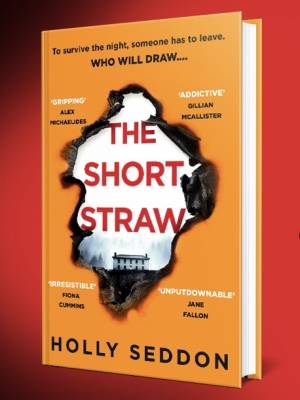
I will always love my time as a Kingston University Creative Writing MA student. The freedom to experiment, the fantastic support from the lecturers, the encouragement to take big, bold swings has helped me create the best work of my career so far. I discovered new interests that I will carry with me for the rest of my life, and only wish I could take the course all over again.
Anna Johnson
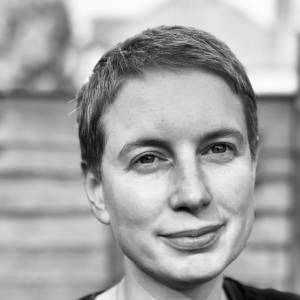
In 2018, I began my practice-based creative writing PhD, specialising in life writing around motherhood experience. This was something of a career change for me, and so I did not have a record of published creative or academic writing. That same year I published a piece of life writing, which had developed out of my work for the PhD application, as a chapter in a book entitled Everyday World-Making: Towards an Understanding of Affect and Mothering .
Later that year I presented the early stages of my research at a conference titled Women in Transition , which lead to another publication, this time a hybrid creative/essay piece in a book based on the conference.
Over the next couple of years, I wrote and presented elements of my practice and research at Writers Centre Kingston events, and at a conference organised by the Race/Gender Matters research group at Kingston. Following this conference, I joined the research group and went on to co-organise a Race/Gender Matters symposium entitled Visceral Bodies in 2023.
In 2021, I published a hybrid creative/essay chapter in a book entitled From Band-Aids to Scalpels: Motherhood Experiences in/of Medicine .
Throughout my PhD journey I have also published several pieces in online journals, including Failure: the Ghost and the Mother, Alluvium Journal, 2022, and But Also Flesh and Salt, The Contemporary Journal, 2023.
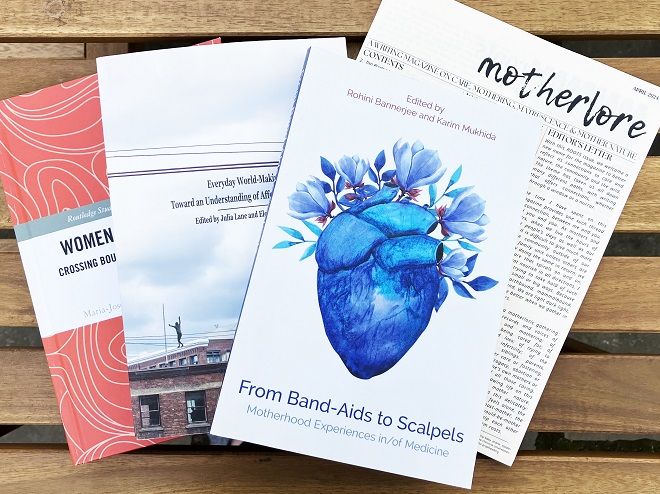
Recently, I have published poetry on the Dx: Diagnosis and Writing website, and in Motherlore magazine. I am currently co-editing a special issue of Studies in the Maternal journal (with a PhD student from the Philosophy department) based on the Visceral Bodies symposium and featuring my poetry.
The structure, support and networks afforded me by my studies at Kingston have been invaluable in getting my work out into the world.

From the beginning of my doctoral work at Kingston until I submitted my thesis I always felt supported by my supervisors. Their comments on my writing and my meetings with them were very productive. In addition, I received encouragement about my creative work which was a real boost. The University also provided platforms for readings and talks in which I participated – these were wonderful ways to practice for other events in which I have since participated. As I built up and edited my manuscript of poems, they became ready to send out which I did over my years as a PhD student.
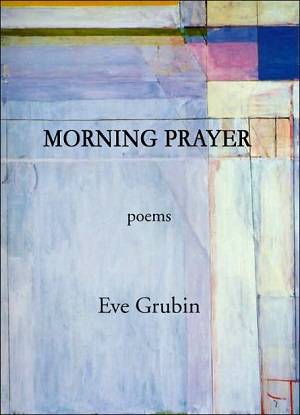
Throughout my time at Kingston I published quite a lot of my creative work that came out of my thesis, including poems in various literary journals and a pamphlet of poems, Grief Dialogue (Rack Press). After I submitted my thesis, the manuscript that came out of the critical component was accepted for publication. The book, Boat of Letters , will appear in 2025.
Faiqa Mansab
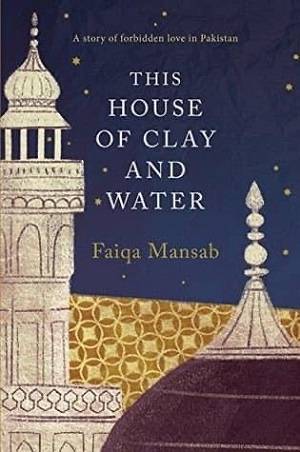
I am quite sure that my publishing journey would have been very difficult were it not for Kingston University MFA.
Tutors like James Miller, Adam Baron, and Jonathan Barnes didn't just give me the nuts and bolts of the craft but also impressed upon me the importance of trusting my own voice, taking responsibility for the story I want to tell and to be flexible in my approach to craft so that I am always learning and growing.
Grainne Murphy
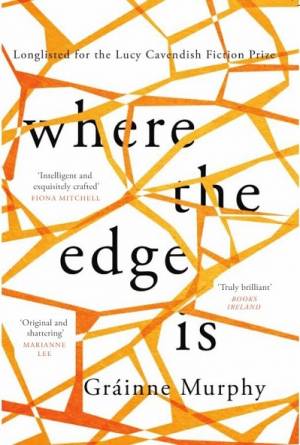
I did the low-res MA in Creative Writing from 2015 to 2017 and it was the perfect fit for someone living outside the UK. The course was excellent on both theoretical and technical aspects, allowing me to figure out how best to write what I wanted to write. I was lucky to have the brilliantly warm and practical Paul Bailey as my dissertation adviser and still apply his insight to everything I write, although I am still guilty of a love of run-on sentences! Course head, Wendy Vaizey, gave me invaluable advice and confidence in my own style at a critical point – advice that saw my first novel subsequently accepted for publication.
Three of us from the class formed our own little writing group when the MA ended and still have a monthly Zoom workshop where we share and discuss our writing and our lives. This fourth novel, Greener , is about friendship and I was so proud to dedicate the book to them both.

The road to publication is paved with blood, coffee and numb fingers; don't let anyone tell you differently. Completing my MA and PhD at Kingston University was a challenging but wholly rewarding experience and one I wouldn't change for the world. The lectures, detailed supervision meetings, and workshopping creative pieces with fellow students were invaluable in taking my writing to the next level. Writing is a lonely profession, so being part of a community that pushes and motivates you to write your best work is special. I honed my skills as a fiction writer and an academic writer throughout my time at Kingston.
For my PhD, I wrote a historical thriller titled Bad Blood , which will be published in 2024 under my pen name, Luke Deckard, by Sharpe Books. This novel is the culmination of my time at Kingston, and not only am I thrilled to see it officially released into the wild, but I know Bad Blood wouldn't be what it is without the support and input I received over the years from my supervisors and colleagues I met and worked with along the way.
Seraphina Madsen
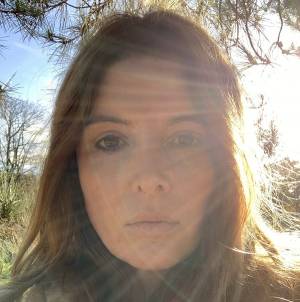
Seraphina has published two books: Dodge and Burn and Aurora .
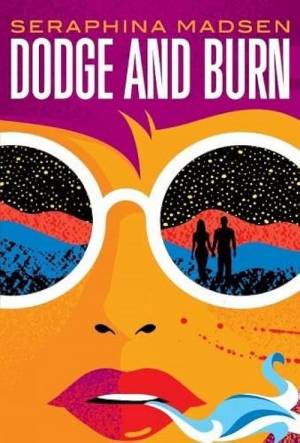
What our students say
In this video, one of our creative writing alumna and a current student discuss why they chose the course, what they enjoyed about it and why they'd recommend it to future applicants.
What you will study
You will have the opportunity to develop your creative writing skills in general or specialise in a chosen genre. As well as studying literary criticism and theory, you will also and will look at the professional elements of writing, such as copy-editing and how to get your work published.
Core modules
Optional placement year.
You'll be expected to pass all four modules and the dissertation to complete the course.
Creative Writing Dissertation
This module focuses on your own creative writing and research into your chosen form or genre, developed in consultation with your supervisor. You learn via one-to-one tutorials with your personal supervisor. You produce two pieces of writing:
- a creative dissertation – a portion of a novel, a body of poetry, a play screenplay or other creative form of no more than 15,000 words; and
- a critical essay of approximately 3,000 words – considering the relationships between your own writing and the literary contexts/theoretical concerns that inform published writing in your chosen genre or form.
Your supervisor must agree in advance the final structure, approximate word length and for presentation conventions of these pieces.
Special Study: Workshop in Popular Genre Writing
This module offers a regular and intensive review of your writing in one of the following genres: poetry, crime writing, prose fiction, biography, drama, scriptwriting or writing for children. You will be advised on how to strengthen your knowledge of the codes and conventions of your chosen genre to produce a substantial piece or collection of work that will reflect your knowledge of and engagement with your chosen genre. You will apply detailed feedback on your work to your writing as well as using your increased knowledge of your chosen genre to make your writing more effective. These elements will help you improve the key transferable skills of analysis and implementation that will feed forward into your dissertation module and into all analytical/practical tasks you subsequently undertake.
Writing the Contemporary
This module provides the opportunity to examine ways in which reading is essential to writing practice and teaches you to apply literary techniques and strategies from contemporary fiction, life writing and poetry texts to your own work. You will develop the concept of 'reading as a writer' in order to explore how contemporary concerns are brought to the fore by artistic strategies, and examine how an understanding of these can provide models for your own creative practice. You will submit work including a reflective reading journal as well as a creative piece in a genre of your choice.
Ten Critical Challenges for Creative Writers
The module is designed to introduce students to some issues of critical and literary theory. The module is also designed to make students more aware of how their work impacts upon wider literary, cultural, political and philosophical issues. Awareness of these theories and of some of the issues surrounding the production and reception of literary texts will stimulate them, encouraging creative and conceptual thinking. The module will explore debates about literature and the practice of creative writing through readings of essays and texts that are relevant to criticism and theory. The academic component of the assessment will support the creative work with the objective that students will also have to demonstrate critical, academic, analytical skills.
Writers' Workshop
In this module you will present and discuss your own and each other's work in a weekly workshop. The draft work presented may include several genres and forms, such as crime writing, fantasy fiction, children's literature, historical fiction, science fiction, romance and autobiography. Practical criticism of student writing will be accompanied by discussion of the scope or constraints of the various genres, as well as the implications of particular forms. Attention will be paid to the transferable components of good writing: appropriate use of language, narrative pace, dialogue, expression, characterisation and mood.
Many postgraduate courses at Kingston University allow students to do a 12-month work placement as part of their course. The responsibility for finding the work placement is with the student; we cannot guarantee the work placement, just the opportunity to undertake it. As the work placement is an assessed part of the course, it is covered by a student's Student Route visa.
Find out more about the postgraduate work placement scheme.
Entry requirements
Typical offer.
A 2:2 or above honours degree, or equivalent, in creative writing, English literature, literature and language, drama or theatre studies or a humanities subject.
International
All non-UK applicants must meet our English language requirements. For this course it is Academic IELTS of 6.5 overall with 5.5 in all elements. Please make sure you read our full guidance about English language requirements , which includes details of other qualifications we'll consider.
Applicants from one of the recognised majority English speaking countries (MESCs) do not need to meet these requirements.
Country-specific information
You will find more information on country specific entry requirements in the International section of our website.
Find your country:
- Middle East
Teaching and assessment
Portfolios of exercises, edited and revised creative writing with evidence of extensive drafting, essays, presentations, research projects, substantial pieces of creative writing of publishable standard.
Guided independent study (self-managed time)
When not attending timetabled sessions, you will be expected to continue learning independently through self-study. This typically involves reading and analysing articles, regulations, policy documents and key texts, documenting individual projects, preparing coursework assignments and completing your PEDRs, etc.
Your independent learning is supported by a range of excellent facilities including online resources, the library and CANVAS, the University's online virtual learning platform.
Support for postgraduate students
At Kingston University, we know that postgraduate students have particular needs and therefore we have a range of support available to help you during your time here.
Your workload
A course is made up of modules, and each module is worth a number of credits. You must pass a given number of credits in order to achieve the award you registered on, for example 360 credits for a typical undergraduate course or 180 credits for a typical postgraduate course. The number of credits you need for your award is detailed in the programme specification which you can access from the link at the bottom of this page.
One credit equates to 10 hours of study. Therefore 180 credits across a year (typical for a postgraduate course) would equate to 1,800 notional hours. These hours are split into scheduled and guided. On this course, the percentage of that time that will be scheduled learning and teaching activities is shown below. The remainder is made up of guided independent study.
- 6% scheduled learning and teaching
The exact balance between scheduled learning and teaching and guided independent study will be informed by the modules you take.
Your course will primarily be delivered in person. It may include delivery of some activities online, either in real time or recorded.
How you will be assessed
100% coursework.
Feedback summary
We aim to provide feedback on assessments within 20 working days.
Class sizes
Workshops normally have between six and 12 students. To give you an indication of class sizes, this course normally enrols 15 to 20 students and lecture sizes are normally 10 to 20. However, this can vary by module and academic year.
Who teaches this course?
This course is delivered by Kingston School of Art. As a student on this course, you will benefit from a lively study environment, thanks to the wide range of postgraduate courses on offer. The combination of academics and practitioners makes it a unique environment in which to further your studies and your career.
The University provides a vibrant and forward-thinking environment for study with:
- courses designed in collaboration with industry professionals – keeping you up to date with the latest developments;
- established connections with the London arts and media scene – with a range of guest speakers, professors and lecturers visiting the University; and
- committed and enthusiastic staff – many of whom are expert practitioners as well as leading academics and researchers.
Postgraduate students may also contribute to the teaching of seminars under the supervision of the module leader.
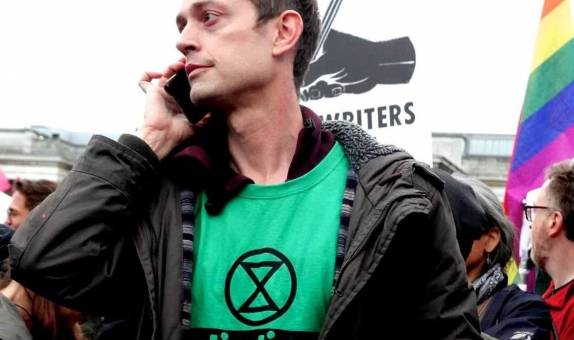
Dr James Miller
Course leader.
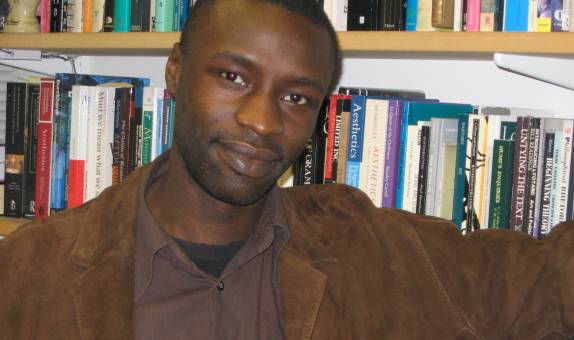
Mr Oludiran Adebayo
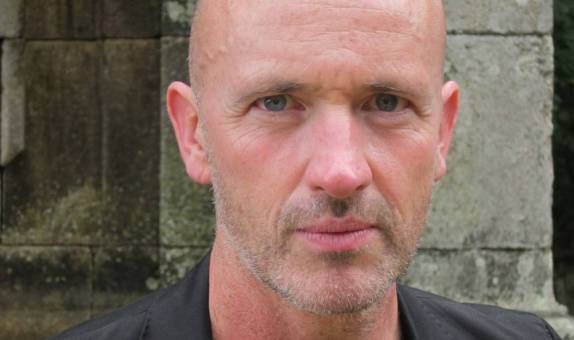
Dr Adam Baron
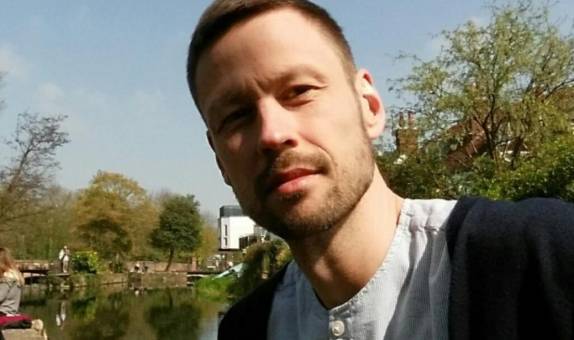
Dr Martin Dines
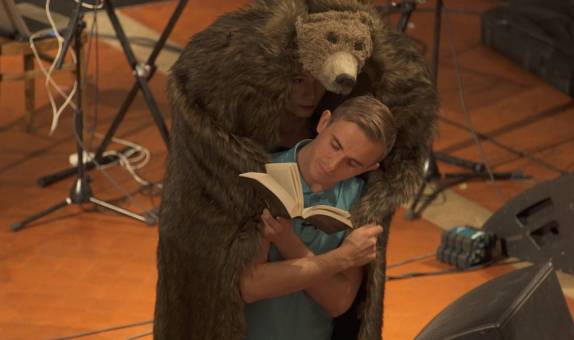

Mr Steven J. Fowler
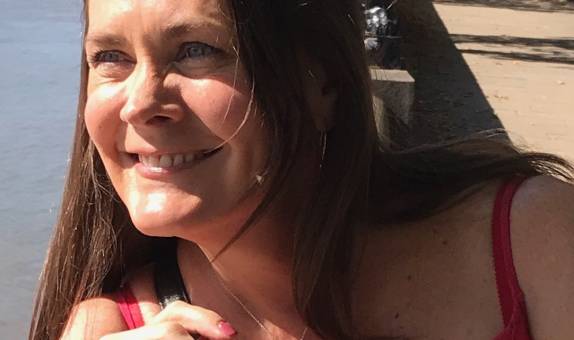
Dr Meg Jensen
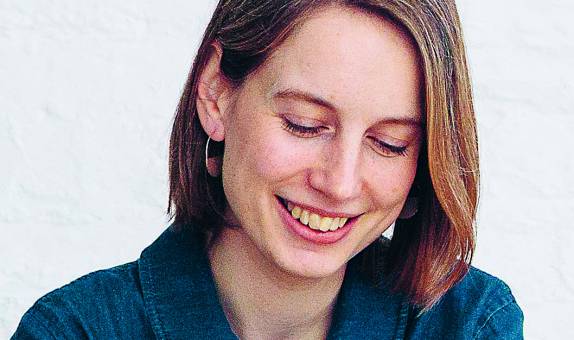
Professor Hanif Kureishi
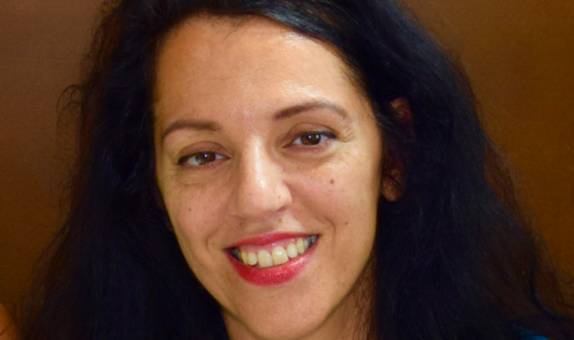
Dr Marina Lambrou
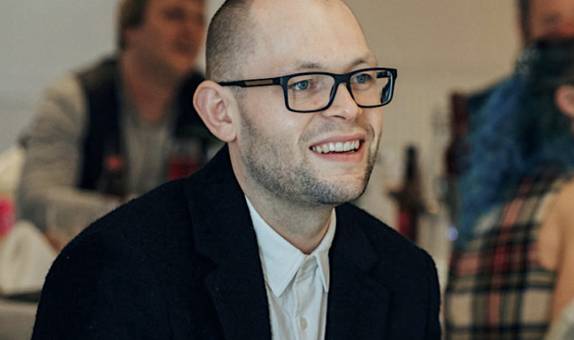
Dr Daniel Read
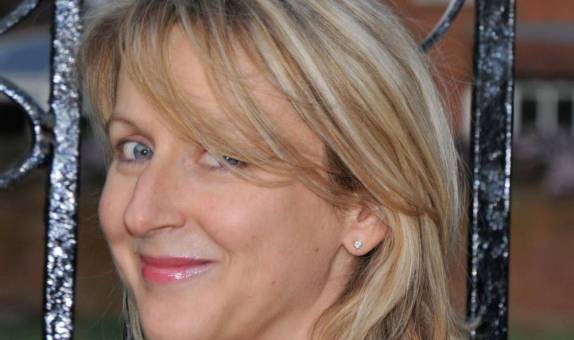
Dr Wendy Vaizey
Fees for this course, 2025/26 fees for this course, home 2025/26.
- full time £10,300
- part time £5,665
International 2025/26
- full time £17,600
- part time £9,680
2024/25 fees for this course
Home 2024/25.
- full time £9,900
- part time £5,445
International 2024/25
- full time £16,900
- part time £9,295
Tuition fee information for future course years
This is a two-year full-time course with the published full-time fee payable in each year of study.
If you start your second year straight after Year 1, you will pay the same fee for both years.
If you take a break before starting your second year, or if you repeat modules from Year 1 in Year 2, the fee for your second year may increase.
Fees for the optional placement year
If you choose to take a placement as part of this course, you will be invoiced for the placement fee in Year 2. Find out more about the postgraduate work placement scheme and the costs for the placement year.
Postgraduate loans
If you are a UK student, resident in England and are aged under the age of 60, you will be able to apply for a loan to study for a postgraduate degree. For more information, read the postgraduate loan information on the government's website .
Scholarships and bursaries
Kingston University offers a range of postgraduate scholarships, including:
- Inspire the Future scholarship
- Postgraduate scholarships for international students
If you are an international student, find out more about scholarships and bursaries .
We also offer the following discounts for Kingston University alumni:
- Alumni discount
- Progression Scholarship
Additional costs
Depending on the programme of study, there may be extra costs that are not covered by tuition fees which students will need to consider when planning their studies. Tuition fees cover the cost of your teaching, assessment and operating University facilities such as the library, access to shared IT equipment and other support services. Accommodation and living costs are not included in our fees.
Where a course has additional expenses, we make every effort to highlight them. These may include optional field trips, materials (e.g. art, design, engineering), security checks such as DBS, uniforms, specialist clothing or professional memberships.
Our libraries are a valuable resource with an extensive collection of books and journals as well as first-class facilities and IT equipment. You may prefer to buy your own copy of key textbooks, this can cost between £50 and £250 per year.
Computer equipment
There are open-access networked computers available across the University, plus laptops available to loan . You may find it useful to have your own PC, laptop or tablet which you can use around campus and in halls of residences. Free WiFi is available on each of the campuses. You may wish to purchase your own computer, which can cost £100 to £3,000 depending on your course requirements.
Photocopying and printing
In the majority of cases written coursework can be submitted online. There may be instances when you will be required to submit work in a printed format. Printing, binding and photocopying costs are not included in your tuition fees, this may cost up to £100 per year.
Travel costs are not included in your tuition fees but we do have a free intersite bus service which links the campuses, Surbiton train station, Kingston upon Thames train station, Norbiton train station and halls of residence.
There is a wide range of facilities at our Penrhyn Road campus , where this course is based. You will have access to a modern environment with the latest equipment, including the Learning Resources Centre. This offers:
- subject libraries, plus a free inter-library loan scheme to other libraries in the Greater London area;
- online database subscriptions; and
- a growing selection of resource materials.
The Iris Murdoch Archives
Kingston University hosts two major archives relating to Iris Murdoch, a significant philosopher and one of the twentieth century's greatest novelists. These archives currently comprise:
- Iris Murdoch's Oxford library (more than 1,000 volumes, many of them heavily annotated by Murdoch);
- the papers, tapes, interviews and manuscripts collected by Peter Conradi, Iris Murdoch's official biographer and Murdoch scholar; and
- various letter runs and documents donated by well-wishers.
Resources in London
Kingston is just a 30-minute train journey away from central London. Here you can access a wealth of additional libraries and archives, including the British Library.
After you graduate
Some of our departmental graduates have achieved notable successes, having published short stories and novels which were started as part of their degree and attracted good literary agents, for example:
- Oyinkan Braithwaite's novel, My Sister the Serial Killer , reviewed by The New Yorker and BBC Radio 4's Open Book and Front Row, has won the Crime and Thriller book of the year at the British Book Awards; Oyinkan is the first black woman to do so.
- Grainne Murphy has recently signed a two-book deal with Legend Press. Her debut novel, Where the Edge Is , was published in September 2020, with The Ghostlights to be published in 2021.
- Ben Halls' debut The Quarry was book of the day in The Guardian in March 2020.
- Amy Clarke has signed a two-book deal. Like Clockwork is a psychological suspense novel about a true crime podcast host who is obsessively trying to solve the decades-old cold case of a notorious Minnesotan serial killer whose victims were each one year younger than the last. It is due to be published in March/April 2021 by Houghton Mifflin Harcourt, with a second book to follow.
- A story Seraphina Madsen wrote for the MA Critical Challenges module was published in the UK's pre-eminent literary journal, The White Review, and secured her an agent and a book deal.
- Stevan Alcock is another MA student whose debut novel – workshopped on our MA – was published by 4th Estate.
- Hannah Vincent is a former MFA student with novels out with Myriad Editions and Salt.
- Myriad Editions also run a writing competition each year aimed at finding new writers, with MFA student Karly Stilling winning in 2015. This year the award was won by another current Kingston student, Sylvia Carr. Former MA (now PhD student) Joseph Pierson was a recent runner up.
- Julia Lewis is a former MFA student and experimental poet who has gone on to publish a wide range of work. She also rewrote MA tutor James Miller's novel Lost Boys as a collection of experimental poetry.
- Stefan Mohamed won the Dylan Thomas Prize and has gone to have a successful career as a writer of YA fiction.
- MA student Vicky Newham signed a two book deal for her crime series. Vicky is on the Daggers longlist for the best crime novel by a first-time author.
- Faiqa Mansab published her debut novel This House of Clay and Water in Pakistan and India to great acclaim and it has been optioned by the talented Sheherzade Sheikh for screen adaptation.
- Other successes include Susie Lynes and Lauren Forry.
- Other former students have gone on to work in editorial posts in the publishing industry.
Why I chose Kingston
Don't just take our word for it – here's what students say about what it's like to study at Kingston University.
What our students and graduates say
The main reason I've chosen the MA in Creative Writing at Kingston University is the variety of genres you can choose from on the course. I am writing poetry, but I wanted to get involved with people who are writing other things so I could experiment with different genres and learn from them too. The MA in Creative Writing gives me that opportunity and lets me choose workshops that reflect exactly my style of writing.
One of the most useful parts of the course is the Elements of Professional Writing module, which focuses on the practical side of being a writer. It offers advice on everything from how to stay positive to how to present your work to get it published.
Katerina Koulouri
I chose to study at Kingston because unlike many writing courses, it allowed space for both fantasy and children's novels. I especially loved my Children's Literature class.
Another standout was my dissertation tutor, Liz Jensen, who gave me remarkably good and detailed feedback, and the lovely people in my writing workshops. I'm really glad I came to Kingston.
Once I finished my masters I returned to my home country, Ireland, where I write and live by the water. I started writing a fantasy novel for young adults, titled 'The Demon's Lexicon', whilst at Kingston which has since been signed by Simon & Schuster.
Sarah Rees Brennan
This Creative Writing MA course gave me the structure, self-discipline and direction I needed. I've always written poetry – I started when I was just seven – but I have done it in a very unstructured way.
Completing work for the weekly writers' workshops has been very useful. I've attended creative writing evening classes before where we shared our work, but the comments and criticism from other students on the MA is at a much higher level.
Alice Thurling
Links with business and industry
A range of additional events and lectures will enhance your studies and add an extra perspective to your learning. Activities for this course include:
- a series of masterclasses with publishing specialists and professionals;
- weekly guest lectures by leading journalists including Samira Ahmed, an award-winning journalist with 20 years' experience in print and broadcast; David Jenkins, editor of Little White Lies, a bi-monthly movie magazine powered by illustration; Richard Moynihan, Head of digital journalism, The Telegraph and Alex Stedman, fashion blogger at The Frugality and former style editor at Red magazine;
- regular readings through Writers' Centre Kingston, which offers an annual programme of events from talks to workshops and festivals, hosted and curated in partnership with institutions local to Kingston University and in London, from The Rose Theatre to the Rich Mix Cultural Foundation, from the Museum of Futures to Kingston First; and
- regular philosophy lunchtime lectures which focus on a major figure in the history of Western philosophy, introducing students to that thinker's work, usually through the discussion of one of her or his emblematic works.
The literary magazine Ripple is edited by MA students, providing:
- a platform for the publication of creative work; and
- a chance to get hands-on experience of the publishing process.
Research areas
Research in English literature and creative writing at Kingston University covers the following areas:
- 19th and 20th century British and American fiction;
- fictions of globalisation;
- gothic writing;
- travel writing;
- narratives of slavery;
- women's writing from the 18th century to the present;
- New Woman and fin de siècle fictions;
- Shakespeare;
- literature of the English Reformation period;
- English women's religious poetry during the seventeenth century; and
- postcolonial studies.
It focuses around the following research initiatives:
- Iris Murdoch Archive – established in 2004 to oversee research on the Iris Murdoch archives acquired by Kingston University in 2003/04).
- Life Narratives Research Group (LNR) – bringing together best practice from all genres of life narrative work.
- Cultural Histories @ Kingston – centred around the concept of the 'cultural text', the group includes scholars from the fields of literature, film, media, history, music, dance, performance, and journalism.
- Writers' Centre Kingston – a literary cultural centre dedicated to creative writing in all its forms, with an annual programme of events, talks, workshops and festivals.
- Race/Gender Matters – captures and concentrates research on theoretical, critical and creative engagements with the materiality of race, gender and language.
We also hold regular seminars and host presentations by visiting speakers.
Course changes and regulations
The information on this page reflects the currently intended course structure and module details. To improve your student experience and the quality of your degree, we may review and change the material information of this course. Course changes explained .
Programme Specifications for the course are published ahead of each academic year.
Regulations governing this course can be found on our website.
Related courses

Creative Writing and Publishing MA
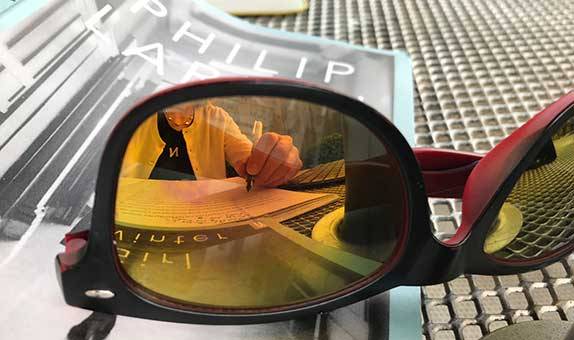
Creative Writing Distance Learning MA

Creative Writing MFA

Journalism PgDip/MA

Magazine Journalism MA
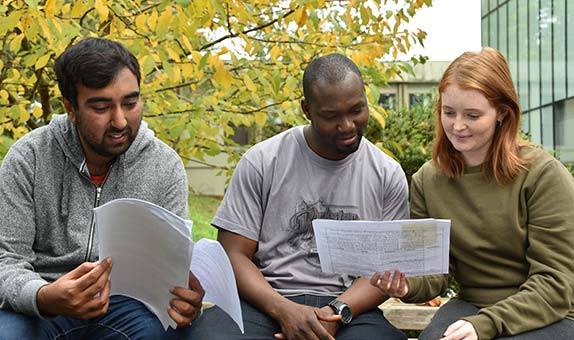
Secondary Teaching leading to Qualified Teacher Status (QTS) PGCE English
- Fees and funding
- Accommodation
- Open Events
- Work placement
- Study resources
- Student support
- Choose Kingston
- Disability and mental health support
- Website accessibility
- Website feedback
- Freedom of Information
- Wider Information Set
- Privacy Notice
- Charitable status
Kingston University , Holmwood House, Grove Crescent, Kingston upon Thames KT1 2EE . Tel: +44 (0)20 8417 9000
- International
MA Creative Writing
Course options
Key Details
Why you should choose us
Course overview.
UEA pioneered the teaching of Creative Writing more than 50 years ago and is globally regarded as a leader of the subject. UEA has mentored countless award-winning authors, including Booker Prize winners Ian McEwan, Anne Enright, and Nobel Laureate Sir Kazuo Ishiguro.
But today Creative Writing is changing, and so are we. Stories are now adapted from novels to streaming platforms to games and so much more. Digital technologies and AI are reshaping writing's possibilities and practical applications. Exciting fusion genres from authors across the globe are dominating bestseller lists and streaming platforms. Career opportunities in the creative industries across the world are increasingly vibrant and ever more dynamic.
This Creative Writing Master’s course will equip you to engage with this world and its vast audiences, now and in the future. You'll have the unique opportunity to work across different forms of writing to help you discover and enhance your talent. You'll explore prose fiction and non-fiction, script and poetry, and hybrid, multimodal, and cross-genre writing. You'll also have the opportunity to develop all kinds of industry-oriented genre writing, from speculative fiction to young adult, fantasy to historical. You'll learn how AI and digital technology are transforming our ideas of writing and writers. You'll also find opportunities to experiment with writing for multiple digital realities and platforms, which are widely accessible and easily integrated. Most of all, you’ll develop skills to get noticed, published and build an audience in this digital world.
At the same time, you'll benefit from UEA's established teaching excellence, creative writing workshops, and unrivalled connections with the fast-changing publishing industry in the UK and beyond. You'll become part of the university’s vibrant creative writing ecosystem, with events such as UEA Live , research and internship opportunities in the British Archive for Contemporary Writing , and a host of more informal occasions to share and celebrate your work and hear from prize-winning alumni. You’ll study in the historic city of Norwich, one of UNESCO’s Cities of Literature . You'll benefit from UEA's exceptional expertise in the world-wide breadth and history of literature, building your confidence and authority as a writer.
You'll graduate a respected and versatile writer, steeped in practical and professional knowledge. You might translate that experience into a career in the creative industries, such as publishing and editing, writing for advertising, marketing, arts, culture, heritage and GLAM (Galleries, Libraries, Archives, and Museums) sector organisations, VR and XR experiences, digital gaming, streaming TV, and more. You may be embarking on a new writing career, or you may be an established professional looking to upskill in a changing environment. Perhaps you want to understand more about writing and feel the thrill of seeing your work come together on page or screen. Whatever your ambitions, this course will inspire and enable you to discover your own voice and make the most of it in the next stage in your writer’s journey.
This version of the course gives you the flexible opportunity to begin your journey in January.
Study and Modules
This is a year-long course. You'll take two taught modules each semester, and then over the Autumn you'll complete your dissertation (submitted late January) with the support of your supervisor.
In the Spring semester, you'll take a Creative Writing workshop where you'll establish a competency and confidence across genres. By the end of the semester, you might decide to specialise in a single form and genre, or to continue a path of versatility and hybrid experimentation.
Alongside this Spring semester module, you'll choose from a rich range of optional modules across the School and Faculty. These draw especially on the wealth of knowledge and experience of the School's literary critics, and currently include modules on writing and play (which encourages your own playful experiments in writing), contemporary fiction, or how writing is inspired by place. These modules will help put your own writing into context and provide you with touchstones for your own creations.
In the Autumn semester, you'll take a second Creative Writing workshop in which you'll explore and experiment with a range of forms of writing, developing an understanding of your potential as a writer.
At the same time and in dialogue with this module, you'll also be studying the ways digital technology is reshaping writing. This may in turn inspire your creative workshop, leading you to work with multimodal forms or interactive narratives. By the end of the semester, you'll have a firm sense of the exciting potential of writing for new technologies and have begun to incorporate that potential into your writer’s toolkit.
Beginning in the summer and continuing throughout the Autumn, you'll begin the thrilling culmination of your MA – your creative writing dissertation. You'll be supported by a member of our Creative Writing team as you write your project, which will become your calling-card as a writer and help to launch the next phase of your career.
Compulsory Modules
Creative writing dissertation project, creative writing in a digital world, creative writing research methodology conference, workshop: creative writing forms, workshop: finding your forms, optional a modules, process and product in translation, digital storytelling, contemporary fiction, ludic literature, japanese literature, the non fiction novel, the poetics of place, creative encounters, theory and practice of fiction, critically queer: sex, gender and sexuality, creative-critical writing, environmental humanities: human cultures and the natural world, adaptation and interpretation, screenplay development, creativity, and production finance in the film and tv business.
Whilst the University will make every effort to offer the modules listed, changes may sometimes be made arising from the annual monitoring, review and update of modules. Where this activity leads to significant (but not minor) changes to programmes and their constituent modules, the University will endeavour to consult with students and others. It is also possible that the University may not be able to offer a module for reasons outside of its control, such as the illness of a member of staff. In some cases optional modules can have limited places available and so you may be asked to make additional module choices in the event you do not gain a place on your first choice. Where this is the case, the University will inform students.
Teaching and Learning
Throughout the course, you'll benefit from UEA's unrivalled Creative Writing tuition and literary critical expertise. Expert creative writers will both lead your workshops and supervise your dissertation, helping to mentor you as you find your voice as a writer. You'll encounter leading practitioners of many of the forms you'll explore – novelists, scriptwriters, poets – who will help you to hone your craft and give their tips and insights into success in each genre.
Literature tutors will introduce you to traditions of writing from across the globe, helping you to interpret them and put them into context. But they'll also support you in your own creative experimentation. UEA has many years of experience pioneering forms of 'creative-critical' pedagogy, where you’re invited to demonstrate your critical thinking and understanding through writing creatively. In this exciting environment, creative and critical thinking are often fused together.
Finally, your encounters with contemporary creative digital technology will be facilitated by our cutting-edge BLOC resources . These include our Music and Media Suite, which offers facilities for podcasting, digital design and publishing, audio production, and access to a host of creative software. These facilities are also supported by a superb team of professional technicians who will support you as you discover new creative abilities.
Over the course of the MA, you’ll build and develop your portfolio of writing. At the end of each of the workshops you'll submit work which demonstrates your growing versatility, craft, and experience as a writer. In your module focused on digital writing, you’ll also be assessed on the underlying writing you produce for a digital form – this could be writing for a podcast, game, XR experience, or even a combination of forms. Your optional module may invite you to write a literary critical essay, further creative work, or an experimental creative-critical piece. Finally, your dissertation will bring your whole creative journey together, where you’ll produce an original piece of 12-15,000 words in length (or equivalent weight, in your chosen form(s)). This piece will be a reflection of the writer you’ve become. It may demonstrate your growing mastery of a single form – a substantial extract from a work of genre fiction, for instance – or it may show off your dexterity in moving across forms. You may also choose to focus on the digital side of your degree, producing writing for multimodal platforms, such as digital gaming or immersive VR experience.
Entry Requirements
UK and International fee-paying students. Choose UK or International above to see relevant information. The entry points are in January and September each year.
Degree classification
Bachelors degree - 2.2
Degree Subject
Any subject
Candidates are required to submit a portfolio of writing for assessment with their application of 2500-3000 words in length. This could be part of a novel, non-fiction prose, script, poetry, a combination of short pieces from multiple forms, or a hybrid piece which combines forms together.
Our Admissions Policy applies to the admissions of all postgraduate applicants.
UK Bachelors degree - 2.2 or equivalent
Any subject
Applications from students whose first language is not English are welcome. We require evidence of proficiency in English (including writing, speaking, listening and reading):
IELTS: 6.5 overall (minimum 6 in all areas)
We also accept a number of other English language tests. Review our English Language Equivalencies for a list of example qualifications that we may accept to meet this requirement.
Test dates should be within two years of the course start date.
If you do not meet the English language requirements for this course, INTO UEA offer a variety of English language programmes which are designed to help you develop the required English skills.
Fees and Funding
Tuition fees for the Academic Year 2024/25 are:
UK Students: £9,975 (full time)
International Students: £21,200 (full time)
If you choose to study part-time, the fee per annum will be half the annual fee for that year, or a pro-rata fee for the module credit you are taking (only available for Home students).
We estimate living expenses at £1,023 per month.
Further Information on tuition fees can be found here .
Scholarships and Bursaries
The University of East Anglia offers a range of Scholarships ; please click the link for eligibility, details of how to apply and closing dates.
Course Related Costs
Please see Additional Course Fees for details of course-related costs.
How to Apply
How to apply.
Applications for Postgraduate Taught programmes at the University of East Anglia should be made directly to the University.
To apply please use our online application form .
Further information
If you would like to discuss your individual circumstances prior to applying, please do contact us:
Postgraduate Admissions Office
Tel: +44 (0)1603 591515 Email: [email protected]
International candidates are also encouraged to access the International Students section of our website.
Employability
After the course.
You'll graduate as a confident creative writer, with an understanding of genre, audience, and the craft needed to shape writing. You'll also have a strong awareness of the contemporary writer's world, and the digital dexterity needed to navigate it. This may lead to a career as a successful novelist or scriptwriter. You'll also be ready for careers across the creative industries: in publishing and journalism; marketing; roles in the arts, culture, heritage and GLAM (galleries, libraries, archives and museums) sectors; writing for digital gaming and the creative computing sectors. The creative confidence our courses give graduates has also underpinned successful business entrepreneurship. Graduates from our Creative Writing MA courses go on to careers in teaching or undertake PhDs (including UEA's own creative-critical PhDs). Many also undertake our courses for the profound pleasure and sense of achievement given by writing itself.
Examples of careers that you could enter include:
- Novelist/Scriptwriter
- Publishing or Journalism
- Marketing
- Arts/GLAM-sector roles
- Writing for digital gaming or creative computing sectors
- Teaching or Academic careers
Discover more on our Careers pages .
Related Courses
Ma creative writing prose fiction.
Transform yourself as a writer by studying the craft of prose fiction with an internationally excellent cohort of other writers. This course, taught by distinguished and committed faculty, will challe...
MA Creative Writing Scriptwriting
Develop your writing craft, industry knowledge, and dramaturgical understanding as you learn with renowned writers for theatre, screen, and radio along with visiting specialists. You’ll gain a deep kn...
MA Creative Writing Non-Fiction
If you are looking for a degree that offers you the opportunity to immerse yourself in the diverse and exciting world of non-fiction, this programme is for you. One of the very few courses in the UK t...
Creative Writing starting January 2025 for 1 years
Online courses in creative writing
Part-time study in creative writing
Develop your creativity with an Oxford University short course or award programme.
Need an extra push to finish your novel, poem or play? Completely new to the world of creative writing? Want to improve your analytical reading skills? No matter where you are in your writing journey, or where you are in the world, there is a part-time course to suit you.
Short online courses
Our short online courses in creative writing include live-time weekly classes, day and weekend schools and flexible online courses.
Credit earned from our short online courses is transferable towards our Certificate of Higher Education - a part-time undergraduate course in which you study a main subject discipline but also undertake study in other academic subjects.
Browse short online courses in creative writing
Diploma in Creative Writing
Our two-year, part-time Undergraduate Diploma in Creative Writing allows you to strengthen your ability in four major areas of literary activity — prose, poetry, drama and analytical reading — as well as the chance to specialise in the medium of your choice. You can now opt to take this course mostly online.
Find out more about the Diploma in Creative Writing
Upcoming courses
Advanced creative writing (online).
- Wed 08 Jan 2025 – 21 Mar 2025
Trollope, Eliot, Dickens and Hardy: Reading Victorian Fiction (Online)
Writing lives (online), contemporary british fiction (online).
- Mon 13 Jan 2025 – 28 Mar 2025
Critical Reading (Online)

Literature, creative writing and film studies
Online courses in literature, rita mccormick, tessa fenley, student spotlights.
Creative Writing MA
Year of entry 2025, postgraduate virtual open day.
Join us on Saturday 16 November to learn more about studying your postgraduate degree at Leeds. Book your place
Course overview

Take a tour of our School
Get a taste for life in the School of English as Masters student Alex takes you on a tour of the School building as well as some campus highlights.
The MA in Creative Writing offers the opportunity to develop your skills in creative writing within the context of a School of English with a long and distinguished history in creative writing. The course appeals both to those who wish to deepen and broaden their creative writing practice, and to those who are working towards a single publishable piece of work.
With expert guidance from teaching staff who are actively engaged in producing and publishing creative writing, you will engage with a wide variety of literary genres, including poetry, fiction and creative nonfiction. You will also have the chance to develop your literary and critical skills more broadly.
Throughout the course, you will be able to explore areas of personal interest and participate in workshops to hone your skills in diverse forms of writing.
You will also produce an independent research project, which can be dedicated to a single creative idea, or which might comprise a portfolio of your creative writing, according to your interests.
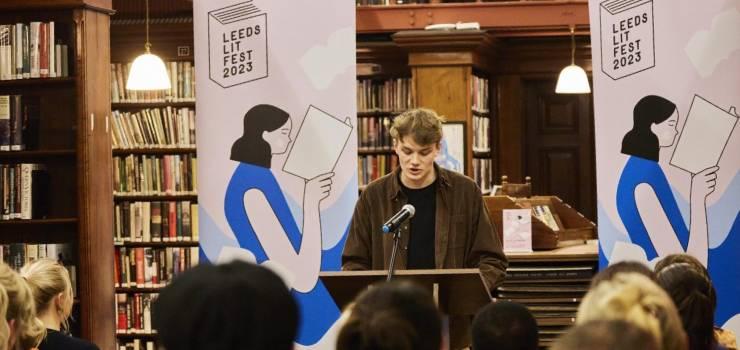
Our expertise
The School of English has a long and prestigious history in creative writing. Creative Writing at Leeds has a great history of alumni and former staff, including Wole Soyinka, Geoffrey Hill, JRR Tolkien, Ngugi wa Thiong’o, Hannah Copley, Luiza Sauma, literary agent Caroline Hardman, and our recent Douglas Caster Poetry Fellows Helen Mort, Anthony Vahni Capildeo and Malika Booker.
Our current staff includes Poet Laureate Simon Armitage, JR Carpenter, Kimberly Campanello, Campbell Edinborough, Zaffar Kunial, Alison Peirse, Sarah K. Perry, Jay Prosser, Jess Richards, Ross Raisin, Caitlin Stobie and John Whale. Our practices and passions run across creative and critical writing. They include: visual and experimental poetry; eco poetics; the contemporary novel and contemporary lyric poem; literature and medicine; disability studies; autofiction; and transgender memoir.
We are home to the University of Leeds Poetry Centre, which brings together the University’s strength and heritage in creative writing. It hosts regular poetry readings by visiting international poets and supports a poetry reading group.
Our creative writing community benefits from partnerships with llkley Literature Festival, Leeds Playhouse and Leeds Grand Theatre. We also support a thriving range of events and workshops with visiting writers.
Specialist resources
The University of Leeds Library is one of the UK's major academic research libraries. It has extensive holdings to support your studies, including English Literature Collections that have been designated of national and international importance.
Our Special Collections offer a huge range of rare books, manuscripts and art, as well as the archives of poets like Tony Harrison, Geoffrey Hill and Simon Armitage, and literary publications such as Stand and The London Magazine.
Other highlights include materials relating to novelists like Arthur Ransome, Angela Thirkell, Melvyn Bragg and Sophie Hannah, and critics like George Wilson-Knight and Bonamy Dobrée. The library also holds original manuscripts by the Brontë family.
Take a 360 tour around our libraries:
Brotherton Library Laidlaw Library Edward Boyle Library
Course details
The MA in Creative Writing covers a range of literary forms, including poetry, fiction and creative nonfiction genres.
The course develops your skills as a creative practitioner. It also explores the history, generic conventions and experimental possibilities of creative literary forms. Through the Creative Writing core module you will learn about key practices in and approaches to creative writing, which you will then expand on through optional modules that allow you to tailor your studies to suit your interests and career ambitions. Optional modules include offerings in Creative Writing and English Literature, alongside modules in digital media and performance in the School of Performance and Creative Industries. Your research project will apply and expand upon what you have learned in these core and option modules.
Through your research project you will gain experience of creative practice as research. You will write a creative research project on a subject of your choice with support from a specialist supervisor and with access to the outstanding research resources of the University's Brotherton Library.
Hear from our students
In this student panel our current Masters students discuss why they chose Leeds and what it's like to study a Masters in the School of English.
The list shown below represents typical modules/components studied and may change from time to time. Read more in our terms and conditions .
Most courses consist of compulsory and optional modules. There may be some optional modules omitted below. This is because they are currently being refreshed to make sure students have the best possible experience. Before you enter each year, full details of all modules for that year will be provided.
For more information and a list of typical modules available on this course, please read MA Creative Writing (Full Time) in the course catalogue.
For more information and a list of typical modules available on this course, please read MA Creative Writing (Part Time) in the course catalogue.
Year 1 compulsory modules
Year 1 optional modules (selection of typical options shown below), learning and teaching.
You’ll have weekly seminars or workshops in each module where you discuss the themes and issues arising from your reading and writing. You’ll have the opportunity to share your writing and receive feedback on work-in-progress. You’ll be able to enhance your learning by attending the wide range of seminars and talks by visiting speakers and creative writers that we arrange throughout the year.
Independent study is a vital part of the degree, as it allows you to build your skills and explore your own ideas as an academic researcher and a creative writer.
On this course, you’ll be taught by our expert academics, from lecturers through to professors. You may also be taught by industry professionals with years of experience, as well as trained postgraduate researchers, connecting you to some of the brightest minds on campus.
Assessment for this programme includes both creative and critical reflection on your creative practice. Modules are assessed either by a combination of these equivalent to 4,000 words, or by a single essay of around 4,000 words. While formal assessment tends to take place at the end of the module, during term you may also be expected to submit work in progress in order to gain feedback, or give presentations in your seminars.
The research project is typically a 9,000-word (or poetry equivalent) creative writing project with a 3,000-word critical reflection.
Entry requirements
A bachelor degree with a 2:1 (hons) in English literature or Creative Writing, or a degree scheme that includes a significant proportion of English Literature or Creative Writing content, or a related subject. You will also submit a Creative Writing sample comprising approximately 1,000 words of prose or 3 pages of poetry (or a portfolio combining both genres). This gives us a chance to get to know some of the writing you have produced so far to help us determine suitability for this course.
Applications from those with degrees in other subjects may be considered on an individual basis, along with the sample you will submit.
We accept a range of international equivalent qualifications. Contact the Postgraduate Admissions Office for more information.
English language requirements
IELTS 6.5 overall, with no less than 6.0 in each component. For other English qualifications, read English language equivalent qualifications .
Improve your English
International students who do not meet the English language requirements for this programme may be able to study our postgraduate pre-sessional English course, to help improve your English language level.
This pre-sessional course is designed with a progression route to your degree programme and you’ll learn academic English in the context of your subject area. To find out more, read Language for Arts and Humanities (6 weeks) and Language for Social Science and Arts: Arts and Humanities (10 weeks) .
We also offer online pre-sessionals alongside our on-campus pre-sessionals. Find out more about our six week online pre-sessional .
You can also study pre-sessionals for longer periods – read about our postgraduate pre-sessional English courses .
How to apply
Please see our How to Apply page for information about application deadlines.
You will need to apply for a place before applying for any scholarships, so check the deadlines for available scholarships on our website .
The ‘Apply’ link at the top of this page will take you to information on applying for taught programmes and to the University's online application system.
If you're unsure about the application process, contact the admissions team for help.
Documents and information you need
You’ll need to upload the following documents when completing the online application form:
A transcript of your completed BA degree or grades to date
If English is not your first language, you’ll need to submit proof of your English language results (eg IELTS).
A Creative Writing sample comprising approximately 1,000 words of prose or 3 pages of poetry (or a portfolio combining both genres)
Personal Statement Requirements
Please answer the following questions in separate numbered paragraphs. These questions provide us with important information on your suitability for the course, so please complete them carefully and in detail. Please provide a supporting statement of approximately 500 words based on the following questions.
- Please explain your reasons for applying to this particular programme in Creative Writing.
- How has your academic experience, including past written work, prepared you to study this area at postgraduate level?
- What do you consider to be the most important characteristics of a successful student assessment in the field of Creative Writing?
- What authors and texts within the field of Creative Writing particularly interest you, and why?
- What approaches to the study of Creative Writing (i.e. methods, theories) most interest you, and why?
We will decide whether to offer you a place based on your application form, personal statement, transcripts, predicted or actual degree results and, where appropriate, any additional documentation requested.
Read about visas, immigration and other information in International students . We recommend that international students apply as early as possible to ensure that they have time to apply for their visa.
Admissions policy
University of Leeds Admissions Policy 2025
This course is taught by
School of English
Postgraduate Administrator
Email: [email protected] Telephone:
UK: £12,500 (Total)
International: £27,000 (Total)
For fees information for international taught postgraduate students, read Masters fees .
Read more about paying fees and charges .
Part-time fees Fees for part-time courses are normally calculated based on the number of credits you study in a year compared to the equivalent full-time course. For example, if you study half the course credits in a year, you will pay half the full-time course fees for that year.
Additional cost information
There may be additional costs related to your course or programme of study, or related to being a student at the University of Leeds. Read more on our living costs and budgeting page .
Scholarships and financial support
If you have the talent and drive, we want you to be able to study with us, whatever your financial circumstances. There may be help for students in the form of loans and non-repayable grants from the University and from the government. Find out more at Masters funding overview .
The School of English also offers a range of scholarships for taught postgraduate study. Find out more on our Scholarships page .
Career opportunities
This course will equip you with advanced transferable skills which are valuable in a wide range of careers.
You’ll be a confident researcher who can work independently as well as within a team. You’ll be a strong communicator, both verbally and in writing, and be able to think critically and analytically. In addition, you’ll have a strong level of cultural and critical awareness, and you’ll be able to look at a situation from different points of view.
All of these qualities are attractive to employers across sectors, and you’ll be well equipped to pursue a career in a wide range of fields depending on your interests. These could include teaching, journalism, publishing, advertising, broadcasting and law. Many of our graduates also progress to PhD-level study and you’ll be in a good position to develop a career in academia. Students from our programmes have gone on to have successful careers as literary agents, journalists and researchers, as well as to become published novelists and award-winning poets.
Careers support
Leeds for Life is our unique approach to helping you make the most of University by supporting your academic and personal development. Find out more at the Leeds for Life website .
We encourage you to prepare for your career from day one. That’s one of the reasons Leeds graduates are so sought after by employers.
The Careers Centre and staff in your faculty provide a range of help and advice to help you plan your career and make well-informed decisions along the way, even after you graduate. Find out more about Careers support .
Whether you're looking to pursue further study, change career, or stand out in the competitive graduate job market, you'll receive expert support in applying the skills you've developed in your chosen career.
Watch: Careers support at Leeds
Find out more about the careers and employability support that you'll receive as a student in the School of English.
Related courses
English literature ma, postcolonial studies ma, rankings and awards, qs world university rankings by subject.
36th in the world for English Language and Literature
Complete University Guide 2025
13th in the UK for English
Creative Writing MA
Ranking 1st choice for employers Ranking details
Delivery format In person
Duration 1 year full-time, 2 years part-time
Award Master of Arts
Entry requirements A 2:1 Honours Degree (or international equivalent) in a relevant subject Full requirements
Fees £10,900 (full-time) / £5,450 (part-time) Fee details
- Visit our open day - 23 November
Page contents
Course overview.
Everyone has a novel in them - or a screenplay - or a sonnet - but if you want to refine your writing and prepare it for publication, our Creative Writing MA offers you the chance to dedicate time to your craft and learn from acclaimed authors.

Creative Writing MA
Get inspired and take your creative writing to the next level on this degree. Develop the skills to succeed in your career as a writer, editor, publisher, or journalist.
Key information
- 1 year full-time
- 2 years part-time
- September 2025
Course information
Please select the page of your interest
Showing content for section Overview
Where better to take your writing to the next level than the home city of literary greats like Charles Dickens and Sir Arthur Conan Doyle?
On this MA Creative Writing degree course, you'll study the genres that inspire you the most – from poetry and historical fiction, to screenwriting and crime – as well as genres you may not have explored, taking your writing in new directions.
You'll spend plenty of time writing and reviewing work and benefit from the help and experience of our expert lecturers. You'll develop the confidence to become a better writer by learning to critique your own work, and that of your peers. There's even the chance to take up a placement at a famous literary magazine.
If you're imaginative, ambitious, and ready to devote yourself to improving your writing, it's time to take your studies to the next level with us. This Master's in creative writing will give you the tools you need for a successful career as a writer, or in fields such as publishing, media, and education.
Number 6 in the UK for student satisfaction
We're ranked sixth in the UK for student satisfaction in creative arts and design in the 2024 Postgraduate Taught Experience Survey (PTES)
Eligibility
This course accepts UK, EU, and international students.
Course highlights
- Build confidence as a writer and consolidate your creative writing skills
- Get to grips with different writing techniques and study contemporary skills to inspire and entertain your audience through the power of the written word
- Complete a major project in the form of your own novel, screenplay or poem
- Participate in writers' workshops, where you'll develop your own skills and constructively contribute to the work of others
- Learn from our expert lecturers and creative writing academics, all of whom are published authors with a vast wealth of experience in the industry within their specialisms
- Learn about the market and current debates within differing genres
- Hear from accomplished guest speakers from the worlds of publishing and writing

Joining us as an international student
You'll feel at home in our international community and our diverse city. You'll be joining over 5,000 international students from more than 150 countries who are studying with us.
Learn more about international student life and how we can help you with visas, applications, arrival and settling in.
Information for international students
Contact information
+44 (0) 23 9284 5566
Entry requirements
September 2025 start, uk qualifications, qualifications or experience.
- A second-class honours degree in a related subject. Equivalent qualifications and/or notable experience as a creative writer will also be considered.
Please get in touch if you're not sure if your undergraduate subject is relevant to this degree.
Equivalent professional experience and/or qualifications will also be considered, such as previous study, employment, voluntary work and training courses, including courses and qualifications you didn't complete. Learn more about our Recognition of Prior Learning (RPL) .
Non-UK qualifications
If you're applying as an international student with a non-UK degree, you’ll need to show you meet the UK entry requirements listed above.
To find out if your non-UK degree or other qualification is accepted, please visit our page for your country and view the UK equivalent of your qualification.
English language requirements
- English language proficiency at a minimum of IELTS band 6.5 (or equivalent) with no component score below 6.0.
You do not need an IELTS or equivalent certification if:
- you have a UK degree
- you have a degree from a majority English-speaking country (not taught by Distance Learning)
- you are a national of a majority English-speaking country
Degrees taught solely in English from non-majority English-speaking countries will be considered on a case-by-case basis. Find out more about our English language requirements .
If you don't meet the English language requirements yet, you can achieve the level you need by successfully completing a pre-sessional English programme before you start your course.
Selection process
An online portfolio submission may be required as part of the selection process.
For more information on how to put together a portfolio, read our MA Creative Writing portfolio guide .
Course costs and funding
Tuition fees (september 2025 start), uk, channel islands, and isle of man students.
- Full-time: £9,400
- Part-time: £6,270 (Year 1) and £3,130 (Year 2)
EU students
(including Transition Scholarship )
International students
- Full-time: £17,200
- Part-time: £11,470 (Year 1) and £5,730 (Year 2)
University of Portsmouth graduates may receive a 20% alumni tuition fee discount .
Fees are subject to annual increase. Read our tuition fees terms and conditions .
You'll be able to pay your fees in instalments. Find out how to pay your tuition fees .
Funding your studies
Explore how to fund your studies, including available scholarships and bursaries .
If you're a UK student, you may be eligible for a Government Postgraduate Master's Loan , which you can use to help with course fees and living costs.
Loans, scholarships and bursaries
Browse funding such as the Government Postgraduate Loan, our scholarships for new and returning students, and subject specific loans.
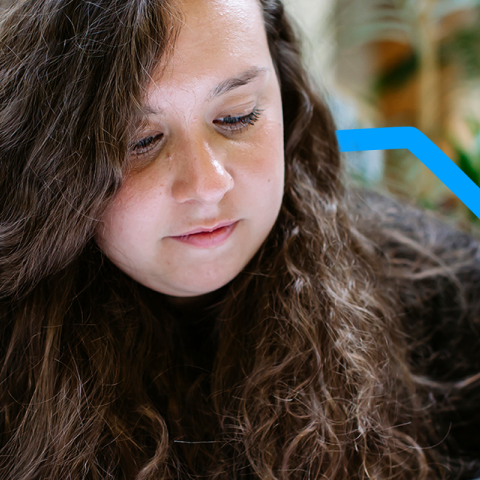
Funding for international students
Learn more about sponsorships, scholarships and loans for students applying from outside of the UK.

Fees and funding for Master's courses
Explore Master's funding options, including loans, scholarships, bursaries and more.

What you'll study (full-time)
Core modules, critical reading for creative writers - 30 credits enhance your creative writing by studying a wide range of inspiring texts..
This module takes you on a critical journey through various genres and time periods, from fairy tales to philosophy. Discover how to interpret writing through lectures, interactive workshops, and presentations. Hone your skills in understanding literature, crafting solid arguments, and using literary theories to refine your writing — be it prose, poetry, or scripts.
You’ll learn how to read critically in different situations, connecting with classic and contemporary authors. This will help you gather valuable knowledge to shape your unique writing style.
By the end of this module, you’ll have developed the analytical tools and creative techniques to enrich your writing and establish a voice that is distinctly your own.
Writer's Workshop: Exploration - 30 credits Find and refine your unique writing style in this foundational creative writing module.
The Writer’s Workshop offers a friendly environment to experiment with various types of writing. It will help you find what you love and where you excel. By writing in different formats, like prose and poetry, you’ll improve your technique and originality. Get help on how to draft and revise your work, learning to explain your creative decisions at every step.
By the end of the term, you’ll have sharpened your abilities and laid out a path for your final dissertation.
Critical Thinking for Creative Writers - 30 credits Deepen your creative writing by engaging with critical literary theories.
This seminar-focused module will introduce you to essential theories from academic criticism that apply to the art of writing. Through conversations, research, and hands-on activities, you'll explore timeless texts to grasp powerful writing principles. You’ll also critique these theories related to your own work, honing the ability to incorporate both original and scholarly sources effectively.
Dive into vital scholarly viewpoints to strengthen the core of your distinctive writing style.
Final Project: the Creative Practice Dissertation - 60 credits Create your defining work in this final module, aimed at crafting an impressive collection of your original writing.
With tutor guidance, you’ll refine your creative process. Apply analytical insight to elevate your work to a professional level. Your comprehensive portfolio will reflect your capacity for dedicated, autonomous work.
With this module, you can show how well you can blend genre-specific techniques with critical self-reflection. Through commitment and creativity, you’ll finish your course with a powerful testament to your talents.
Writer's Workshop: Resolution - 30 credits Bring your creative writing talents into sharp focus in this advanced workshop.
You’ll use research, reading, and discussion to critically reflect on your skills and interests, setting the stage for an ambitious final project. Armed with genre knowledge and preparatory writing skills, you'll perfect your opening chapters or scenes through feedback. By examining your methods and considering feedback, you’ll enhance your technique and vision.
This module provides essential groundwork to resolve your ideas into a polished dissertation that showcases your writerly voice.
What you'll study (part-time)
Changes to course content.
We use the best and most current research and professional practice alongside feedback from our students to make sure course content is relevant to your future career or further studies.
Therefore, some course content may change over time to reflect changes in the discipline or industry. If a module doesn't run, we'll let you know as soon as possible and help you choose an alternative module.
Writing and scripting software
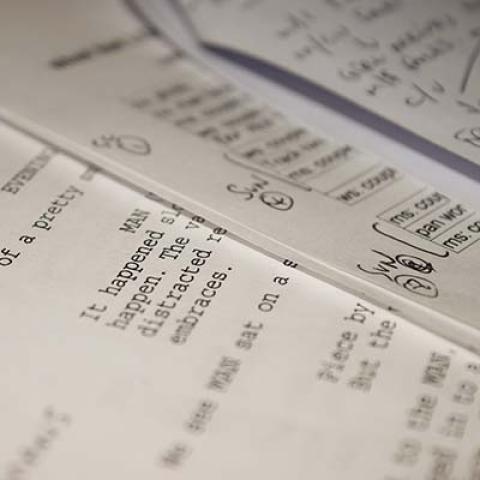
Open Access Suite

University Library
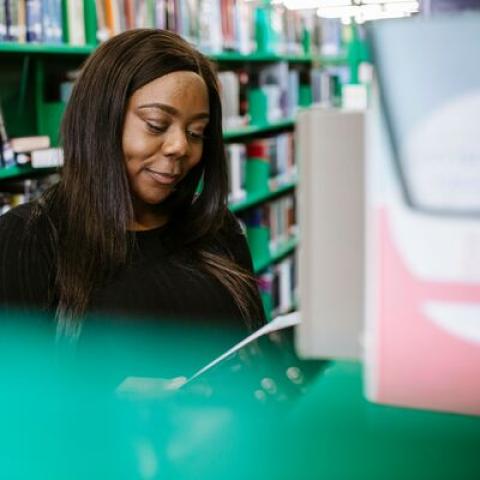
How you'll spend your time
We recognise that you'll probably be juggling more demands when you do your Master's degree, as you may be working or you may have family responsibilities.
We'll give you as much indication here as we can of how much time you'll need to be on campus and how many hours you can expect to spend in self-directed study, but please note that these indications are always subject to change. You should receive your full timetable several weeks before you start with us.
Course structure
This Master's degree will take:
- 1 year (full-time study)
- 2 years (part-time study)
You can expect:
- 1 day of teaching per week (pro rata for part time students)
- Around 20–25 hours of dedicated independent study each week (pro rata for part time students)
At the moment, teaching takes place on Fridays, leaving you the rest of the week for self-guided study.
Master's study is deeper and more specialised than an undergraduate degree. This means you'll focus on something that really matters to you and your career as you work closely with academics committed to the subject.
You'll spend more time in independent study and research than you did for your undergraduate degree, but the majority of your teaching time will be in-person and face-to-face.
Teaching methods on this course include:
- independent writing
- critical analysis
You'll be assessed through:
- creative writing projects
- final creative writing project
Teaching staff
These are some of the expert staff who'll teach you on this course:
Dr Steven O'Brien
Senior Lecturer
School of Film, Media, and Creative Technologies
Faculty of Creative and Cultural Industries
PhD Supervisor

Dr Tom Sykes
Associate Professor in Creative Writing and Global Journalism
September start
The Master's academic year runs from September to the following September. There are breaks at Christmas and Easter. Over the summer you'll be writing your project/dissertation.
See key dates
Career development
Careers this master's in creative writing prepares you for.
As a successful graduate of this course, you'll have experienced an exciting immersion into writing, with the freedom and discipline of writing across multiple forms to express your unique narrative voice.
Through workshops, independent writing and critical analysis, this creative writing Master's course will help you to develop your own skills and constructively contribute to the work of other writers.
When you graduate, you'll have completed a major project in the form of your own novel, screenplay or poem, and have developed the necessary confidence and critical skills to continue a career in writing, or in fields such as publishing, media, and education.
Graduates of this course have gone onto roles in:
- Public Relations (PR)
Recent graduates of this course have found jobs such as:
- Account Executive
- Article portfolio writing
- Freelance sports journalist
- Freelance writer
- Social Media Manager
9 reasons to do a Master's
Career outcomes shown are sourced from the latest available graduate outcome surveys. The data shows career outcomes at 15 months after graduation.
Career planning
During your course, you'll have expert career support from your tutors and from our Careers and Employability Centre, which you can access for 5 years after you graduate.

You'll benefit from:
- Networking events and industry links, including the opportunity to attend five industry parties at The London Magazine
- 1-to-1 appointments
- CV and cover letter advice
- Interview preparation and practice
- Workshops to enhance your employability skills
- Recruitment events including the Student and Graduate Opportunities Fair
- Support starting your own business
Placements and industry connections
There is the opportunity to either work in London at The London Magazine offices for a two-week placement, or undertake a virtual placement working at The London Magazine dealing with submissions to the magazine.
All teaching staff are published authors and have a vast wealth of experience in the industry within their specialisms.
Supporting you
Master's study is more focused on independent learning than undergraduate study, but you'll get lots of support via video, phone and face-to-face from teaching and support staff to enhance your learning experience and help you succeed. You can build your personalised network of support from the following people and services:
Types of support
Personal tutor.
Your personal tutor helps you make the transition to independent study and gives you academic and personal support throughout your time at university.
You'll have regular contact with your personal tutor in learning activities or scheduled meetings. You can also make an appointment with them if you need extra support.
Student support advisor
Creative skills tutors, it and computing support, disability advice and additional support.
If you require extra support because of a disability or additional learning need our specialist team can help you.
They'll help you to
- discuss and agree on reasonable adjustments
- liaise with other University services and facilities, such as the library
- access specialist study skills and strategies tutors, and assistive technology tutors, on a 1-to-1 basis or in groups
- liaise with external services
Wellbeing and mental health support
Our online Learning Well mini-course will help you plan for managing the challenges of learning and student life, so you can fulfil your potential and have a great student experience.
You can get personal, emotional and mental health support from our Student Wellbeing Service , in person and online. This includes 1–2–1 support as well as courses and workshops that help you better manage stress, anxiety or depression.
Library support
Library staff are available in person or by email, phone, or online chat to help you make the most of the University’s library resources. You can also request one-to-one appointments and get support from a librarian who specialises in your subject area.
The library is open 24 hours a day, every day, in term time.
Support with English
If English isn't your first language, you can do one of our English language courses to improve your written and spoken English language skills before starting your degree. Once you're here, you can take part in our free In-Sessional English (ISE) programme to improve your English further.
How to apply
Unlike undergraduate applications, which go through UCAS, applications for this Master's course are made directly to us.
There's no deadline for applications to this course. We accept applications right up until the start date in September, as long as there are places available. If you wait until September to apply, you may find that the course is full.
If you're applying as an international student, remember that you'll need to leave plenty of time to get your visa organised.
You can find more advice about applying in our Master's application checklist . International students and current students and recent graduates of the University of Portsmouth also have some different application options, which are detailed below.
Extra information for international students
I'm an international student.
If you're an international student, you can apply directly to us using the same application form as UK students.
You could also get an agent to help with your application. Check your country page for details of agents in your region. To find out what to include in your application, head to the how to apply page of our international students section .
If you don’t meet the English language requirements for this course yet, you can achieve the level you need by successfully completing a pre-sessional English programme before you start your course.
Ready to apply?
Start this course in september 2025.
Apply now (Full-time)
Apply now (Part-time)
I'm a current Portsmouth student, or a recent Portsmouth graduate
If you're currently in your final year of study at Portsmouth, or you graduated since July 2024, you're eligible to make a fast track application. You'll have:
- a shorter application form to complete
- access to the 20% Alumni fee discount
- a guaranteed conditional offer, for most Master's courses
Learn more about fast track
After you apply
Once we receive your application, we may ask you for further information. We will then either make you an offer or suggest alternatives if your application is unsuccessful.
You'll usually get a decision within 10 working days, so you shouldn't have to wait too long. Some courses have an interview stage – we'll let you know if you need to prepare for one.
Learn more about how we assess your application .
Admissions terms and conditions
When you accept an offer to study at the University of Portsmouth, you also agree to abide by our Student Contract (which includes the University's relevant policies, rules and regulations). You should read and consider these before you apply.
Other courses you might like
- MA Media and Communication
- MRes Creative Industries
- MA Illustration
- MA Theatre: Socially Engaged Practice
- MA Journalism (Distance Learning)

Writing Your Novel – Three Months
Applications, writing goal, three months of expert novel-writing tuition and insights from literary agents delivered flexibly. instalment plan available., our flagship online writing your novel course is designed for writers who are serious about developing their novel to its full potential., every aspect of the course – the brilliant materials, my wonderful tutor and my fellow course mates – had a huge impact on my writing..
With weekly teaching and workshopping on our interactive platform, plus one-to-one tutorials, and advice from renowned authors and literary agents, this course will help you hone your craft and make real progress with your story. Our compact three-month schedule and online learning environment makes this the ideal course for writers with busy calendars in need of flexibility as well as comprehensive advice and an energetic burst of motivation.
You will join a group of 15 writers tutored by Suzannah Dunn, critically acclaimed author of 13 novels and much-loved creative writing tutor. Teaching will cover how to create a strong narrative arc and convincing characters, as well as key techniques that will help you bring your story to life, from dialogue to description, tone and style.
In addition to the weekly teaching and workshopping – which is flexibly timed so you can take part at a time that suits you each week – you’ll also attend an exclusive live industry masterclass on Zoom featuring insights from an author and literary agent. When the course ends, you’ll be given the opportunity to share your work with literary agents from Curtis Brown and C&W.
Over 240 of our students have gone on to become commercially published authors, including Bonnie Garmus, author of the multi-million copy bestseller, Lessons in Chemistry . Previous students of our three-month online course include Heather Darwent ( The Things We Do to Our Friends ), Emilia Hart ( Weyward ), Julie Ma ( Happy Families ) and Rachel Marks ( Saturdays at Noon ). Whether you're in the early stages of writing, halfway through a first draft or embarking on a major rewrite – this course will give you the push you need to get the most out of your novel.
This course runs from 13 January to 30 April 2025.
Suzannah Dunn
Suzannah Dunn has published two collections of short fiction and twelve novels, seven of them historical, one of which The Confession of Katherine Howard was a Richard and Judy Pick. She was picked alongside Robert Harris, Edward St Aubyn and Helen Simpson, by Julie Burchill in response to Granta’s first ‘Best Under 40’ list in 1993. She has sold over a quarter of a million copies of her historical novels in the UK alone. Her thirteenth novel Levitation for Beginners will be published by Little, Brown in 2024.
Suzannah was Director of the MA in Novel Writing at Manchester University for six years and has taught many courses for the Arvon Foundation. She is a popular speaker at literary festivals and events including the Bristol Festival of Ideas.
Read our interview with Suzannah to discover more about her writing and approach to teaching creative writing.
Read interview
WHAT DOES THIS COURSE GIVE YOU?
- Flexible study: Teaching for this course is entirely online, meaning that you can take part from anywhere in the world, at a time that suits you. The course is delivered via interactive forum discussions with your tutor and fellow students alongside pre-recorded teaching videos on our bespoke learning platform, which we have developed exclusively for our students. The only ‘live’ elements of this course (taking place at set times) are the Zoom industry masterclasses and your one-to-one-tutorials. Timings of these sessions will always be confirmed in advance.
- A community of writers: Our selective applications process means that you will be writing your novel in a peer group of 15 students working at a high level. Many of our former students have found trusted readers with us and formed strong working friendships that go on long after the course is over.
- Expert teaching: Suzannah will post weekly teaching notes and lead discussions on a variety of novel-writing topics on our interactive online learning platform, and set homework tasks to further your learning. Through the teaching, workshopping and tutorials, they will work with you to help you write the story you want to tell.
- Teaching videos: In addition to the teaching from Suzannah, each module will open with exclusive videos and notes covering a range of topics such as plotting, characterisation, point-of-view and editing – all written and delivered by our expert tutor team (see featured video speakers below).
- Writing workshops: Your work will be workshopped by the group twice during the course. Workshops centre on 3,000-word extracts from your novel-in-progress, and discussion takes place on our learning platform with students and the tutor posting written comments across the week. These sessions offer in-depth feedback from your student group and tutor and are also designed to help develop your self-editing skills.
- One-to-one tutorials: You’ll get two 45-minute, one-to-one tutorials with Suzannah. Tutorials will be based on 3,000-word extracts from your novel-in-progress and will address your specific concerns and questions. Towards the end of the course, all students will also get a 45-minute one-to-one with an experienced CBC editor or a Curtis Brown/C&W literary agent who will read up to 6,000 words from your novel-in-progress plus your synopsis. Tutorials will take place via phone call or Zoom.
- Industry masterclass: Join a special live Zoom session with a leading literary agent and an author who will answer your questions on writing, editing and the submissions process, and share their experience of real-life publication journeys.
- Synopsis & agent letter advice: We’ll give you the vital ingredients needed for a great synopsis and pitch letter. Individual feedback will come from experienced members of the CBC editorial team and/or a Curtis Brown/C&W literary agent – delivered via the learning platform.
- End-of-course submission: All students will be invited to submit their 3,000-word novel opening, plus a synopsis, to be shared with the agent teams at Curtis Brown and C&W as well as a select group of agents from other UK-based agencies. This is not a formal submission but a chance to give the agents a taste of what you’re working on. When you are ready to submit formally – no matter how long after your course has finished – the CBC team will provide guidance and support with your submission to the Curtis Brown and C&W agents.
- Alumni services: At the end of your course, you’ll be given access to a range of exclusive writing services, available only to the alumni of our selective courses. These services include one-to-one mentoring, full manuscript reports and submission reports on your pitch package. Read more about the opportunities available to our alumni here .
Video speakers
Course modules include exclusive pre-recorded teaching videos from these expert author-tutors.
COURSE SCHEDULE & DELIVERY
This course is ideal for people seeking flexibility, so they can write and study at times that suit them. Please note that precise dates of masterclass sessions and details of course speakers are subject to change.
WEEK 1 – INSPIRATION AND READING AS WRITERS
Week 2 – openings, week 3 – writing from life, week 4 – story, plotting & planning, week 5 – voice and narrative point of view, week 6 – characterisation, week 7 – synopsis, week 8 – description, tone & style, week 9 dialogue, week 10 – building suspense, week 11 – endings, week 12 – editing and rewriting, week 13 – agent letter/pitch workshop, week 14 – course conclusion, week 15 – end of course submission, course fees.
The course fee of £1,800 (inc VAT) per student is payable, in full, by bank transfer. Funds must reach our bank account before the course begins. If you are unable to pay the full fee upfront, let us know and we can arrange an instalment plan.
READY TO APPLY?
Please apply with the first 3,000 words of the novel you’d like to work on during the course, and a synopsis of no more than a page (both need to be in the same document, as you can only upload ONE file in the application below).
The CBC team will select applicants based on the quality of the writing sample provided. The deadline for applications is midnight, end of day Sunday 8 December, and we will respond to applicants by Thursday 12 December.
We read all application material promptly after the closing date and make our selection of students within a week. However, if you require an earlier response from us in order to be able to take part in this course, please email us with full details and we will consider and respond on a case-by-case basis.
If you encounter any problems during the application process, or have any more questions about the course, please email [email protected] for assistance .
Still deciding?
If you’re thinking about applying for this course and want to know if it’s the right fit, book a free 15-minute phone consultation to discuss your needs.
Consultations will take place on Tuesday afternoons (14.00 to 17.00) or Friday mornings (10.00 to 13.00). Times listed are UK times.
former students with publishing deals
of students would recommend us to a friend
rated 4.6 stars on TrustPilot
English & Creative Writing
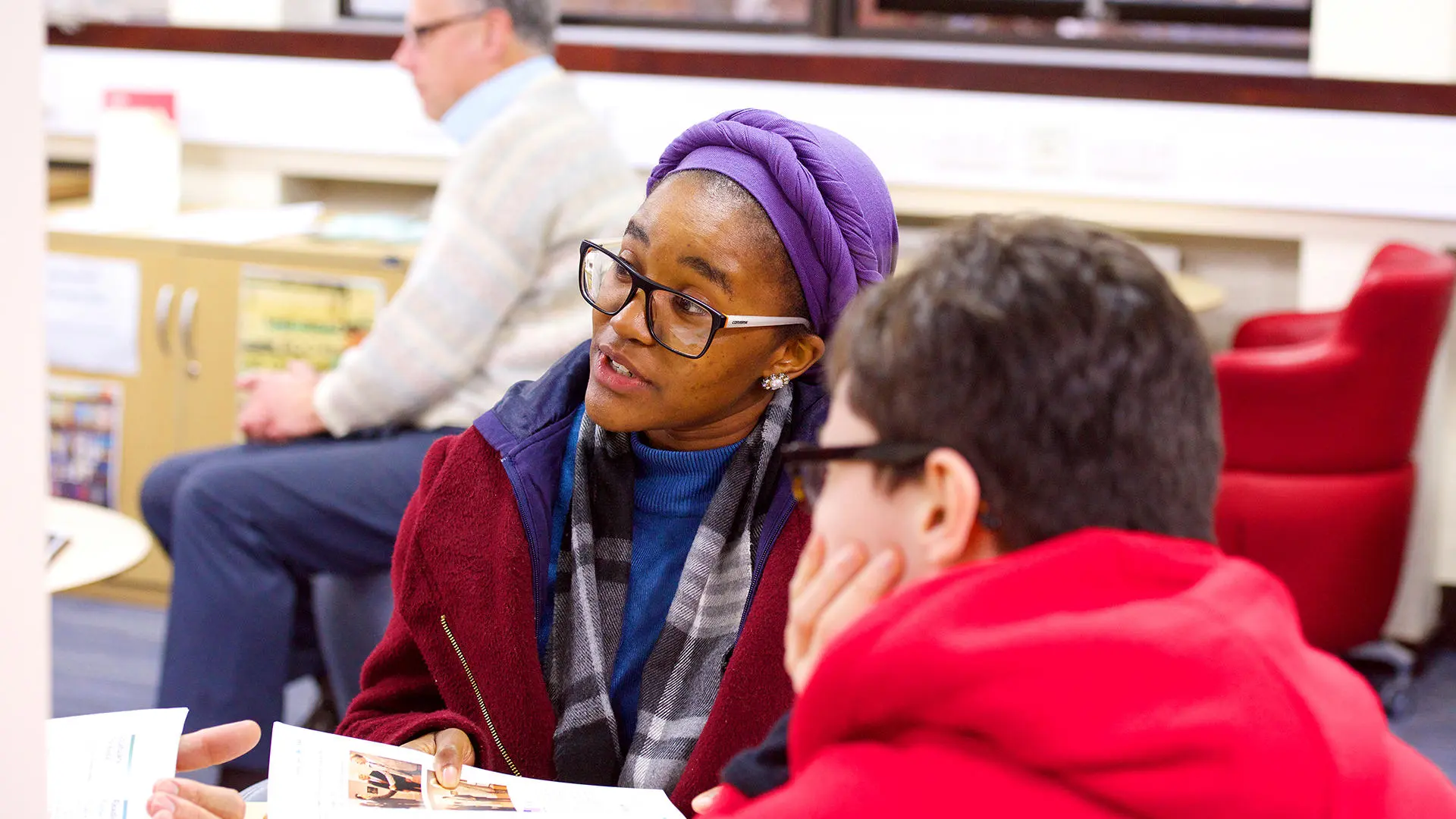
Book an autumn Open Day
Want to be a a professional writer but don't have the right grades? Study our English and Creative Writing (with Foundation Year) to develop your writing skills and unlock your creative potential.
On the foundation year you’ll be introduced to English language and linguistic concepts and build essential skills for success. This includes academic writing, critical thinking, research, collaboration, and independent learning. And you'll have the option to explore modules in education, humanities or language studies.
When you complete the foundation year, you'll progress onto our BA (Hons) English and Creative Writing degree . In your first year you'll choose to study either English literature or English language with creative writing.
In English Literature, you’ll explore a range of topics from the Renaissance to Romantic and Gothic works, as well as science fiction and contemporary literature. In English language you'll explore the unique stylistic choices that define an author’s voice. You will also develop language skills to expose hidden biases and challenge social inequalities.
Why study with us
- This foundation year is an excellent stepping stone toward a full degree if you don’t yet have the required qualifications.
- Develop key academic, digital and communication skills. These are essential for both higher education and a range of professional fields.
- We offer student-centred teaching and learning in small groups, to ensure that you receive focused support.
What you'll do
- You'll learn through a blend of lectures and group workshops, engaging in dynamic literary and cultural discussions and the close reading of texts.
- Practice and drafting activities give you a chance to get feedback in advance. This will help you improve before you submit the final graded work.
- Develop academic and critical thinking skills, including writing, referencing, and analysis. You'll do this through study practices and exploration of current world issues.
Foundation year
Compulsory modules, essential study skills for higher education.
This module provides you with a foundation in study skills by guiding you through the skills required to produce high quality academic work. Topics covered in the module include academic writing, referencing and critical analysis.
Developing Academic Knowledge
This interesting module will introduce you to critical thinking and discussion, and essential skills for success at university. A range of world issues and current affairs within broadly defined areas such as, political systems, environmentalism, law and justice, and culture and society, will be explored.
Target Award Extended Study
This module aims to develop your digital literacies. You'll have opportunities to focus on a topic within your intended honours degree (target award) Course. You will learn appropriate digital research skills, learn which digital tools and methods are suitable for your target award, and develop independent learning skills.
Learning by Experience
In this module you will explore group working, negotiating and task-based learning while building a reflective learning portfolio. You will choose a project to research, present your findings and exhibit your work as well as reflecting on your learning.
Skills for English
This module introduces you to English language and linguistics diversity and terminology across contexts, while also exploring key literary forms like poetry, fiction, and drama. It involves creative writing workshops and research, encompassing contemporary formats like short stories and scripts.
Optional modules
Skills for languages and area studies.
This module focuses on enhancing language learning processes, fostering reflective skills, and building research and presentation abilities. Additionally, it introduces Area Studies, promoting intercultural awareness and analysis.
Skills for Education
This module provides insights into Education Studies and includes an introduction to Teaching English to Speakers of Other Languages (TESOL). It aims to equip you with foundational knowledge for higher-level study by covering key debates, concepts, and policies.
Skills for Humanities
This module offers an introduction to university-level humanities. It covers history, philosophy, politics, international relations, and religion. It addresses essential skills in working with evidence, forming arguments, and communication, mainly through applied ethics questions.
Every effort has been made to ensure the accuracy of our published course information. However, our programmes are subject to ongoing review and development. Changing circumstances may cause alteration to, or the cancellation of, courses. Changes may be necessary to comply with the requirements of accrediting bodies or revisions to subject benchmarks statements. As well as to keep courses updated and contemporary, or as a result of student feedback. We reserve the right to make variations if we consider such action to be necessary or in the best interests of students.

Visit us on campus
Sign up for one of our upcoming Open Days and discover what university life is really like.
Our BA (Hons) English and Creative Writing facilities
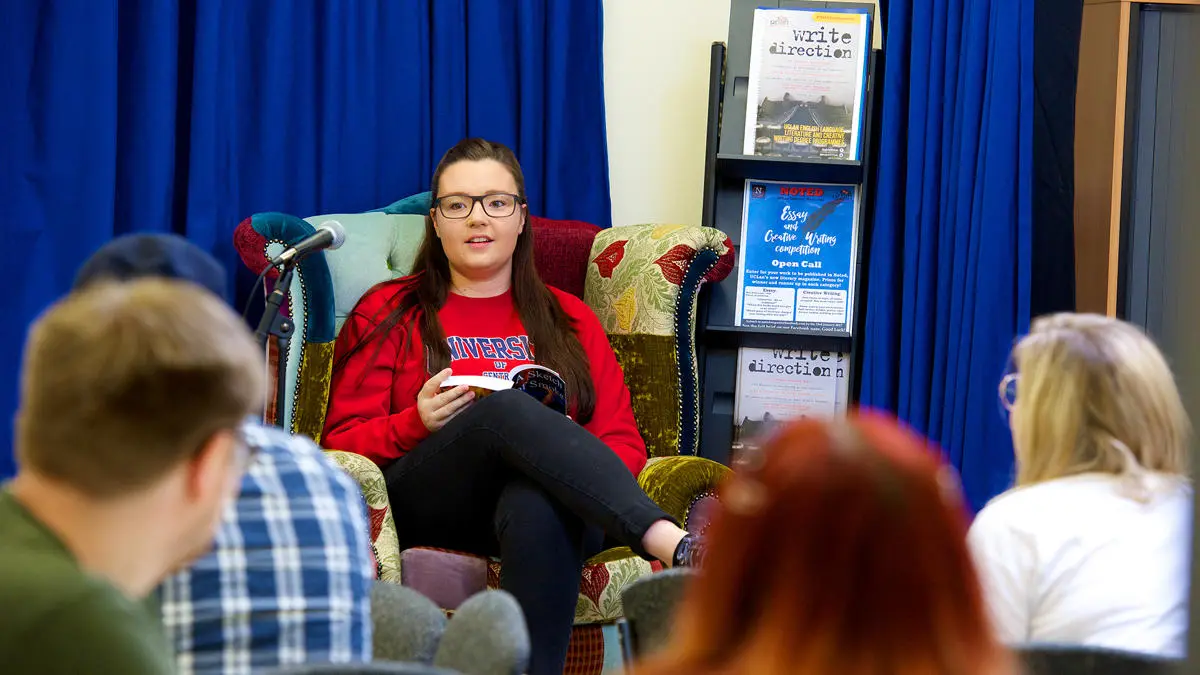
Future careers in English and creative writing
Many of our BA (Hons) English and Creative Writing graduates have gone on to careers in publishing, writing, travel and tourism, advertising, journalism and the media. You'll be prepared for roles across creative industries, communications, and beyond.
Studying English and creative writing will give you the skills and abilities that employers are looking for in:
- Play and script writing
- Public relations
- Content and copywriting
- Social media management
- Business management
Entry requirements
We will consider your educational achievements, predicted grades, work experience and personal statement. If you don't meet the grades for your chosen course, we will consider you for other programmes.
We know that many factors can influence the grades you achieve in school or college. If your life experience has affected your academic studies, we can take this into account. Use the UCAS Points Calculator below to check whether you are eligible.
Unsure if you meet our entry requirements? Contact our friendly Course Enquiries team to talk through your options.
- UCAS: 64 points at A2
- BTEC Extended Diploma: MPP
- BTEC Diploma: MM
- Pass Access Course: 64 UCAS points
- International Baccalaureate Diploma: Pass including 64 points from Higher Level subjects
- T Level: P (D or E)
- IELTS: grade 6.0 with no component lower than 5.5
- GCSEs: 5 at Grade C/4 including Maths and English or equivalent
Not got the grades?
Our courses with a foundation year could be exactly what you're looking for. They provide an alternative route to study for this degree.
Fees and funding
Additional costs.
As part of your course there may be additional costs to consider that are not included in your tuition fees. Most of these will be optional, but some courses have essential additional costs. Find out more about additional costs .
Scholarships and bursaries
We have a wide range of bursaries, scholarships and funds available to help support you whilst studying with us.
Select your country to see eligibility information and how to apply by selecting more info on the cards below.
Care Leaver Bursary
Our Care Leaver Bursary is for students who need extra support because they have been in care or are estranged from their parents.
Estranged student support
Estranged Student Support Bursary is for students who need extra support because they are estranged from their parents.
Dependants Bursary
Students with financially dependent children may be eligible for our Dependants Bursary as part of our financial support package.
Foundation Year Bursary
Our Foundation Year Bursary scheme is for students starting a four or five year undergraduate degree programme.
Academic staff

Learning and assessment
You will experience a range of appropriate real world and simulated methods of assessment. These will provide opportunities for you to develop and demonstrate the full range of graduate employability skills.
Examples of assessment activity include:
- Critical reviews
- Academic essays
- Reflective essays
- Critical introduction to anthologies
- Group presentations
- Research proposals
- A dissertation project
In creative writing, the assessment may include final drafts and a portfolio. This can include a critique of writing practices and career-related information like a list of potential publishers.
This course is delivered by the School of Psychology and Humanities
For information on possible changes to course information, see our essential and important course information
You can find regulations and policies relating to student life at the University of Central Lancashire on our student contract page

Creative Writing MFA
Postgraduate taught degree
This course is for 2025/26 entry.
Dr Jonathan Gibbs explains what it is like to study Creative Writing at City.
Key information
Develop and hone your creative writing skills under our expert academic guidance as you work towards the completion of a full-length work in your preferred form of fiction, genre fiction or non-fiction. You will gain a range of transferable skills to significantly boost your employability in the field of writing and other creative industries.
- September 2025
City, University of London
Northampton Square
- Open evening
- Online sessions
- Register interest
Unique teaching of practical approaches to creative writing, the business of being a writer, and the teaching of writing in educational and community settings.
Expert guidance and one-to-one supervision to help you produce a full-length original manuscript.
- Course overview
Teaching and assessment
Fees and funding, how to apply, creative writing mfa course overview, benefits of this course.
You will learn how to read and think as a writer and explore the choices faced and decisions taken by writers. Regular workshops and bespoke reading lists will serve to inform and enrich your own work.
Over the course of the whole degree you will learn how to plan, research and complete a full-length manuscript in your chosen form (fiction, genre fiction, non-fiction) for potential publication.
We aim to give you a professional approach to editing, revising and critiquing creative work.
You will learn about the writing business, involving different forms and requirements of print and electronic publication, and the role of editors, agents and publishers. This includes how to present and advertise your creative work.
Our module on creative writing pedagogy offers a foundation for understanding how storytelling and creative writing can be taught in different educational settings.
Students from our Creative Writing master's programmes have been published by Penguin Random House, HarperCollins, Faber, Pan Macmillan, Hachette, and many others.
You can select to apply for one of the available exit points for this course.
Master of Arts (MA)
Who is this course for.
Our Creative Writing MFA is ideal if you are seeking to consolidate and develop your writing knowledge and skills, and work towards the completion of a full-length original manuscript.
You will embrace learning about all aspects of creative writing and gain a comprehensive understanding of the business and culture of writing.
- Full-time: 2 years
- Part-time: 4 years
Total credits: 300
- 11 in total
- Core modules: 7
- Core elective modules: 2
- Elective Modules: 2
Part 1 is made up of:
- Core modules (60 credits)
- Core elective module: (30 credits)
- Optional modules (30 credits)
- Dissertation (60 credits)
Part 2 is made up of:
- Major Project (105 credits)
- Core module (15 credits).
Core modules
Reading as a Writer (15 credits)
In this module you will read and discuss fiction and non-fiction from a writer’s perspective. You will gain an understanding of the techniques, forms and styles used by a range of writers and be able to apply them to your own writing.
Working as a Writer (15 credits)
You will acquire an understanding of the roles of agents, editors and publishers and how to interact with them. You will study the business aspects of being a writer and the ethical and legal concerns involved in publishing your work.
Creative Writing Workshop 1 (15 credits)
In this module you will study and develop key skills in creative prose writing, including creation and control of voice, point of view, setting, characterisation, dialogue, description.
Creative Writing Workshop 2 (15 credits)
In this module you will study and develop key skills in creative prose writing, including plot, structure and pacing, and thematic and character development. You will explore genre considerations (whether fiction, genre fiction or non-fiction) and the function of aspects such as theme, content, narrative momentum and pacing.
Core elective modules
Special Study: Short Fiction (15 credits)
In this module you will study and analyse the form and creation of short fiction, and its role and position in the contemporary literary landscape
Special Study: The Contemporary Essay (15 credits)
In this module you will study and analyse the form and creation of the creative non-fiction essay, including lyric, personal and critical essays, and their role and position in the contemporary literary landscape.
Special Study: The Novel (15 credits)
In this module you will study and analyse the form and creation of the novel, and its role and position in the contemporary literary landscape
Special Study: The Genre Novel (15 credits)
In this module you will study and analyse the form and creation of the genre novel, and its role and position in the contemporary literary landscape.
Elective modules
Digital Publishing (15 credits)
In this module you will analyse the impact of digitisation on the publishing industry. You will look at likely future developments with reference to industry case studies.
Publishing History and Culture (15 credits)
How to Make a Book: Creating Content in Print (15 credits)
You will look at case studies from different sectors and global markets. You will learn how to apply creativity and innovation processes in your own response to current publishing conditions.
The Power of Publishing: Strategy, Diversity and Sustainability (15 credits)
You will gain an understanding of how cultural and publishing companies respond creatively and commercially to the opportunities and challenges in curating content, both digital and in print. You will look at case studies of innovative strategies especially in the area of digitalisation.
Freelancing and Entrepreneurship in the Creative and Cultural Industries (15 credits)
The Art and Business of Adaptation (15 credits)
Lifestyle specialism (15 credits)
Arts and Culture specialism (15 credits)
Dissertation
Creative Writing Dissertation and Reflective Essay (60 credits)
During this module you will develop an extended piece of Creative Writing in Fiction, Non-fiction or Genre Fiction. It may take the form of short stories, or a portion of a novel or book, to a total of 15,000 words.
The Major Project
Major Project and Reflective Essay (105 credits)
This module gives you the opportunity to consolidate your knowledge and skills in Creative Writing by building on your previous submitted work to complete a full-length original manuscript in your chosen genre that is prepared to professional standards.
Programme specification
The programme specification contains more information on how the course is organised, the requirements for progression for each part and credits required for awards.
Download course specification:
- PSCRWF - MFA Creative Writing
In the first year you will learn through a mix of lectures, workshops, tutorials, group work, seminar contributions, study visits and independent learning.
Our visiting speakers will include guest authors, editors, agents and publishers, who regularly support your learning and module projects.
We encourage you to privately reflect on your professional practice during all of your applied work.
In the second year you will work independently on your major project. Supervision will be provided by an academic expert in your chosen genre.
You will also complete one 15-credit core module on teaching creative writing.
We assess you across the core and elective modules, and in the dissertation and major project.
Fees for academic year 2025/26
Explore up-to-date information about funding options, available financial support and typical living costs.
We will confirm any change to the annual tuition fee to you in writing prior to you commencing each subsequent year of study (where applicable).
Additional expenses
Some of our degrees may involve additional expenses which are not covered by your tuition fees. Find out more about additional expenses .
Our Creative Writing MFA will give you the combination of creative and practical skills you need for a career as a writer.
We intend to develop your transferable skills relevant to careers such as teaching, editing, publishing and journalism.
You might also consider other creative industries such as advertising and game production, where storytelling is highly valued.
During the programme you can network with agents, editors and others within traditional and digital publishing.
Whether your ambition is to professionally pursue writing, work in publishing or another creative field, or undertake further study, you will be appropriately skilled
Entry requirements
Below is a list of countries with information on each about which qualifications we accept. If your country is not listed please email [email protected] .
Applicants should normally:
- Hold a good Second-Class Honours BA degree or an equivalent qualification.
- Have studied a relevant subject such as English, Comparative Literature, Theatre and Drama, Film and Media Studies, Creative Writing, Humanities.
We welcome applications from candidates who may not meet the standard entrance criteria but who hold alternative credentials and can demonstrate their potential to produce written work at the requisite level, or who can offer prior learning which may satisfy City's requirements for RPL/RPEL. The prime criteria are demonstrable writing ability and commitment to learning.
INTO City, University of London
Don't meet the entry requirements? INTO City, University of London offers a range of academic and English language programmes to help prepare you for study at City, University of London. You’ll learn from experienced teachers in a dedicated international study centre.
These programmes are designed for international students who do not meet the required academic and English language requirements for direct entry. To prepare for this degree course, learn more about the Graduate Diploma in Social Sciences and the Arts .
Please refer to the UK entry requirements for the course, check for any prerequisites such as compulsory or preferred subject areas, and use the following as an indication of the Zimbabwean equivalent required.
The equivalents provided are intended as a guide only and individual applications are assessed on a case-by-case basis.
Zimbabwean Bachelor degrees are typically accepted with a 2:1 (65%) equivalent to a UK 2:1 (second-class upper) Honours Bachelor degree and a 2:2 (60%) equivalent to a UK 2:2 (second-class lower) Honours Bachelor degree.
Pre-master’s programmes
If you don't meet the entry requirements, please check to see if there is a suitable preparatory programme available for your course at City, University of London. You can explore your options by visiting City's Foundation Programmes page .
Visa requirements
International Students coming to study in the UK may need to apply for a visa or entry clearance to come to the UK to study. The way that you apply may vary depending on the length of your course. There are different rules for:
- Students on courses of more than six months
- Students on courses of less than six months
For more information see our main Visa page .
Please refer to the UK entry requirements for the course, check for any prerequisites such as compulsory or preferred subject areas, and use the following as an indication of the Zambian equivalent required.
Zambian Masters degrees are typically accepted with GPA 3.5 equivalent to a UK 2:1 (second-class upper) Honours Bachelor degree and GPA 3.0 equivalent to a UK 2:2 (second-class lower) Honours Bachelor degree.
Please refer to the UK entry requirements for the course, check for any prerequisites such as compulsory or preferred subject areas, and use the following as an indication of the Vietnamese equivalent required.
Vietnamese Bachelor degrees (Bang Tot Nghiep Dai Hoc or Bang Cu Nhan) from selected institutions are typically accepted with 7 out of 10 equivalent to a UK 2:1 (second-class upper) Honours Bachelor degree and 6.5 out of 10 equivalent to a UK 2:2 (second-class lower) Honours Bachelor degree.
Please refer to the UK entry requirements for the course, check for any prerequisites such as compulsory or preferred subject areas, and use the following as an indication of the Uzbekistani equivalent required.
Uzbekistani Bachelor / Bakalavr degrees are typically accepted with 71% equivalent to a UK 2:1 (second-class upper) Honours Bachelor degree and 55% equivalent to a UK 2:2 (second-class lower) Honours Bachelor degree.
Please refer to the UK entry requirements for the course, check for any prerequisites such as compulsory or preferred subject areas, and use the following as an indication of the Ukrainian equivalent required.
Ukrainian Bachelor / Specialist Bachelor degrees are typically accepted with a GPA 4.3 equivalent to a UK 2:1 (second-class upper) Honours Bachelor degree and GPA 4.0 equivalent to a UK 2:2 (second-class lower) Honours Bachelor degree.
Please refer to the UK entry requirements for the course, check for any prerequisites such as compulsory or preferred subject areas, and use the following as an indication of the Ugandan equivalent required.
Ugandan Bachelor degrees are typically accepted with GPA 4.0/5.0 equivalent to a UK 2:1 (second-class upper) Honours Bachelor degree and GPA 3.0/5.0 equivalent to a UK 2:2 (second-class lower) Honours Bachelor degree.
Please refer to the UK entry requirements for the course, check for any prerequisites such as compulsory or preferred subject areas, and use the following as an indication of the US equivalent required.
US Bachelor degrees are typically accepted with GPA 3.2 equivalent to a UK 2:1 (second-class upper) Honours Bachelor degree and GPA 2.5 equivalent to a UK 2:2 (second-class lower) Honours Bachelor degree.
Please refer to the UK entry requirements for the course, check for any prerequisites such as compulsory or preferred subject areas, and use the following as an indication of the Emirati equivalent required.
Emirati Bachelor degrees are typically accepted with GPA 3.2 equivalent to a UK 2:1 (second-class upper) Honours Bachelor degree and GPA 2.5 equivalent to a UK 2:2 (second-class lower) Honours Bachelor degree.
Please refer to the UK entry requirements for the course, check for any prerequisites such as compulsory or preferred subject areas, and use the following as an indication of the Turkish equivalent required.
Turkish Bachelor / Lisans Diplomasi degrees are typically accepted with GPA 3.2 equivalent to a UK 2:1 (second-class upper) Honours Bachelor degree and GPA 2.7 equivalent to a UK 2:2 (second-class lower) Honours Bachelor degree.
Please refer to the UK entry requirements for the course, check for any prerequisites such as compulsory or preferred subject areas, and use the following as an indication of the Tunisian equivalent required.
Tunisian Bachelor / Diplome degrees are typically accepted with 14 out of 20 equivalent to a UK 2:1 (second-class upper) Honours Bachelor degree and 12 out of 20 equivalent to a UK 2:2 (second-class lower) Honours Bachelor degree.
Trinidad and Tobago
Please refer to the UK entry requirements for the course, check for any prerequisites such as compulsory or preferred subject areas, and use the following as an indication of the Trinidadian and Tobagonian equivalent required.
University of the West Indies Bachelor degrees are typically accepted with a 2.1 (grade B+) equivalent to a UK 2:1 (second-class upper) Honours Bachelor degree and a 2:2 (grade B) equivalent to a UK 2:2 (second-class lower) Honours Bachelor degree.
Please refer to the UK entry requirements for the course, check for any prerequisites such as compulsory or preferred subject areas, and use the following as an indication of the Thai equivalent required.
Depending on the awarding institution Thai 4 year Bachelors degrees are typically accepted with GPA 3.0 to 3.2 equivalent to a UK 2:1 (second-class upper) Honours Bachelor degree and GPA 2.6 to 2.8 equivalent to a UK 2:2 (second-class lower) Honours Bachelor degree.
Please refer to the UK entry requirements for the course, check for any prerequisites such as compulsory or preferred subject areas, and use the following as an indication of the Tanzanian equivalent required.
Tanzanian Bachelor degrees are typically accepted with a 2:1 or 60% equivalent to a UK 2:1 (second-class upper) Honours Bachelor degree and a 2:2 or 50% equivalent to a UK 2:2 (second-class lower) Honours Bachelor degree.
Please refer to the UK entry requirements for the course, check for any prerequisites such as compulsory or preferred subject areas, and use the following as an indication of the Taiwanese equivalent required.
Taiwanese Bachelor degrees are typically accepted with 75% or grade B equivalent to a UK 2:1 (second-class upper) Honours Bachelor degree and 70% or grade C equivalent to a UK 2:2 (second-class lower) Honours Bachelor degree.
Please refer to the UK entry requirements for the course, check for any prerequisites such as compulsory or preferred subject areas, and use the following as an indication of the Syrian equivalent required.
Depending on the awarding institution Syrian Bachelor degrees or Licence are typically accepted with 70-80% or 'very good' equivalent to a UK 2:1 (second-class upper) Honours Bachelor degree and 60-70% or 'good' equivalent to a UK 2:2 (second-class lower) Honours Bachelor degree.
Switzerland
Please refer to the UK entry requirements for the course, check for any prerequisites such as compulsory or preferred subject areas, and use the following as an indication of the Swiss equivalent required.
Swiss Bachelor degrees are typically accepted with 4.75 out of 6.0, 8 out of 10 or 2 out of 5 (5 to 1 scale) equivalent to a UK 2:1 (second-class upper) Honours Bachelor degree and 4.0 out of 6.0, 6 out of 10 or 3 out of 5 (5 to 1 scale equivalent to a UK 2:2 (second-class lower) Honours Bachelor degree.
International Students from within the European Economic Area (EEA) may need to apply for a Student visa or entry clearance to come to the UK to study if they do not have EU Settlement Status.
- Students on courses of less than six months.
Please refer to the UK entry requirements for the course, check for any prerequisites such as compulsory or preferred subject areas, and use the following as an indication of the Swedish equivalent required.
Swedish Bachelor degrees or Kandidatexamen are typically accepted with B- 180 ECTS minimum overall or at least 50% of credits graded at VG overall equivalent to a UK 2:1 (second-class upper) Honours Bachelor degree and C- (180 ECTS minimum overall) or at least 20% of credits graded at VG overall equivalent to a UK 2:2 (second-class lower) Honours Bachelor degree.
Please refer to the UK entry requirements for the course, check for any prerequisites such as compulsory or preferred subject areas, and use the following as an indication of the Sri Lankan equivalent required.
Sri Lankan 4 year Bachelor Special Degrees or Professional Degrees are typically accepted with a 2:1, grade B+ or GPA 3.3 out of 4.0 equivalent to a UK 2:1 (second-class upper) Honours Bachelor degree and a 2:2, grade B or GPA 3.0 out of 4.0 equivalent to a UK 2:2 (second-class lower) Honours Bachelor degree.
Please refer to the UK entry requirements for the course, check for any prerequisites such as compulsory or preferred subject areas, and use the following as an indication of the Spanish equivalent required.
Spanish Título de Licenciado, Título de Ingeniero and Título de Arquitecto are typically accepted with 7 equivalent to a UK 2:1 (second-class upper) Honours Bachelor degree and 6 equivalent to a UK 2:2 (second-class lower) Honours Bachelor degree.
South Korea
Please refer to the UK entry requirements for the course, check for any prerequisites such as compulsory or preferred subject areas, and use the following as an indication of the South Korean equivalent required.
South Korean Bachelor degrees (Haksa) are typically accepted with GPA 3.5 out of 4.5 or grade B equivalent to a UK 2:1 (second-class upper) Honours Bachelor degree and GPA 3.0 out of 4.5 or grade C equivalent to a UK 2:2 (second-class lower) Honours Bachelor degree.
South Africa
Please refer to the UK entry requirements for the course, check for any prerequisites such as compulsory or preferred subject areas, and use the following as an indication of the South African equivalent required.
South African Bachelor degrees are typically accepted with a 2:1 or 70% equivalent to a UK 2:1 (second-class upper) Honours Bachelor degree and a 2:2 or 60% equivalent to a UK 2:2 (second-class lower) Honours Bachelor degree.
Please refer to the UK entry requirements for the course, check for any prerequisites such as compulsory or preferred subject areas, and use the following as an indication of the Slovenian equivalent required.
Slovenian Bachelor degrees are typically accepted with 8 out of 10 equivalent to a UK 2:1 (second-class upper) Honours Bachelor degree and 7 out of 10 equivalent to a UK 2:2 (second-class lower) Honours Bachelor degree.
Please refer to the UK entry requirements for the course, check for any prerequisites such as compulsory or preferred subject areas, and use the following as an indication of the Slovakian equivalent required.
Slovakian Bakalar degrees are typically accepted with GPA 1.5 - 2.0 equivalent to a UK 2:1 (second-class upper) Honours Bachelor degree and 2.0 - 2.5 equivalent to a UK 2:2 (second-class lower) Honours Bachelor degree.
Please refer to the UK entry requirements for the course, check for any prerequisites such as compulsory or preferred subject areas, and use the following as an indication of the Singaporean equivalent required.
Singaporean Bachelor and Bachelor Honours degrees are typically accepted GPA 3.0 out of 4.0 or 3.8 out of 5.0 or II (upper) - Second Class (Upper) Honours equivalent to a UK 2:1 (second-class upper) Honours Bachelor degree and GPA 2.5 out of 4.0 or 3.3 out of 5.0 or II (lower) - Second Class (lower) Honours equivalent to a UK 2:2 (second-class lower) Honours Bachelor degree.
Please refer to the UK entry requirements for the course, check for any prerequisites such as compulsory or preferred subject areas, and use the following as an indication of the Serbian equivalent required.
Advanced Diploma of Higher Education and Diplomirani are typically accepted with 8 out of 10 equivalent to a UK 2:1 (second-class upper) Honours Bachelor degree and 7 out of 10 equivalent to a UK 2:2 (second-class lower) Honours Bachelor degree.
Saudi Arabia
Please refer to the UK entry requirements for the course, check for any prerequisites such as compulsory or preferred subject areas, and use the following as an indication of the Saudi Arabian equivalent required.
Saudi Arabian Bachelor degrees are typically accepted with GPA 3.2 out of 4.0 or GPA 4.0 out of 5.0 equivalent to a UK 2:1 (second-class upper) Honours Bachelor degree and GPA 2.4 out of 4.0 or GPA 3.0 out of 5.0 equivalent to a UK 2:2 (second-class lower) Honours Bachelor degree.
Please refer to the UK entry requirements for the course, check for any prerequisites such as compulsory or preferred subject areas, and use the following as an indication of the Rwandan equivalent required.
Rwandan Bachelor degrees are typically accepted with a 2:1 or 16 out of 20 equivalent to a UK 2:1 (second-class upper) Honours Bachelor degree and a 2:2 or 14 out of 20 equivalent to a UK 2:2 (second-class lower) Honours Bachelor degree.
Please refer to the UK entry requirements for the course, check for any prerequisites such as compulsory or preferred subject areas, and use the following as an indication of the Russian equivalent required.
Russian Bachelor or Specialist Bachelor degrees are typically accepted with GPA 4.3 equivalent to a UK 2:1 (second-class upper) Honours Bachelor degree and GPA 4.0 equivalent to a UK 2:2 (second-class lower) Honours Bachelor degree.
Please refer to the UK entry requirements for the course, check for any prerequisites such as compulsory or preferred subject areas, and use the following as an indication of the Romanian equivalent required.
Romanian Bachelor degrees are typically accepted with 8 equivalent to a UK 2:1 (second-class upper) Honours Bachelor degree and 7 equivalent to a UK 2:2 (second-class lower) Honours Bachelor degree.
Please refer to the UK entry requirements for the course, check for any prerequisites such as compulsory or preferred subject areas, and use the following as an indication of the Qatari equivalent required.
Qatari Bachelor degrees are typically accepted with GPA 3.0 out of 4.0 or GPA 3.6 out of 5.0 equivalent to a UK 2:1 (second-class upper) Honours Bachelor degree and GPA 2.4 out of 4.0 or GPA 3.0 out of 5.0 equivalent to a UK 2:2 (second-class lower) Honours Bachelor degree.
Please refer to the UK entry requirements for the course, check for any prerequisites such as compulsory or preferred subject areas, and use the following as an indication of the Portuguese equivalent required.
Portuguese Licenciado are typically accepted with 14 equivalent to a UK 2:1 (second-class upper) Honours Bachelor degree and 12 equivalent to a UK 2:2 (second-class lower) Honours Bachelor degree.
Please refer to the UK entry requirements for the course, check for any prerequisites such as compulsory or preferred subject areas, and use the following as an indication of the Polish equivalent required.
Polish Bachelor / Licencjat or Magister degrees are typically accepted with GPA 4.5 equivalent to a UK 2:1 (second-class upper) Honours Bachelor degree and GPA 3.5 equivalent to a UK 2:2 (second-class lower) Honours Bachelor degree.
Philippines
Please refer to the UK entry requirements for the course, check for any prerequisites such as compulsory or preferred subject areas, and use the following as an indication of the Filipino equivalent required.
Filipino Masters degree from any recognised institution and Bachelor degrees from selected institutions (i.e. Asian Institute of Management, Ateneo de Manila University, De La Salle University Manila, University of Santo Tomas, University of the Philippines Diliman) are typically accepted with GPA 3.0 out of 4.0, GPA 1.75 out of 5 or 86% equivalent to a UK 2:1 (second-class upper) Honours Bachelor degree and GPA 2.5 out of 4.0, GPA 2.5 out of 5 or 80% equivalent to a UK 2:2 (second-class lower) Honours Bachelor degree.
Please refer to the UK entry requirements for the course, check for any prerequisites such as compulsory or preferred subject areas, and use the following as an indication of the Peruvian equivalent required.
Peruvian Grado Académico de Bachiller or Título de Licenciado or Título (Profesional) degrees are typically accepted with 14 out of 20 equivalent to a UK 2:1 (second-class upper) Honours Bachelor degree and 12 out of 20 equivalent to a UK 2:2 (second-class lower) Honours Bachelor degree.
Please refer to the UK entry requirements for the course, check for any prerequisites such as compulsory or preferred subject areas, and use the following as an indication of the Palestinian equivalent required.
Palestinian Bachelor or Bakalorius degrees are typically accepted with GPA 3.2 out of 4.0 equivalent to a UK 2:1 (second-class upper) Honours Bachelor degree and GPA 2.6 out of 4.0 equivalent to a UK 2:2 (second-class lower) Honours Bachelor degree.
Please refer to the UK entry requirements for the course, check for any prerequisites such as compulsory or preferred subject areas, and use the following as an indication of the Pakistani equivalent required.
Pakistani 4 year Bachelor degrees are typically accepted with GPA 3.2 equivalent to a UK 2:1 (second-class upper) Honours Bachelor degree and GPA 2.6 equivalent to a UK 2:2 (second-class lower) Honours Bachelor degree.
Please refer to the UK entry requirements for the course, check for any prerequisites such as compulsory or preferred subject areas, and use the following as an indication of the Omani equivalent required.
Omani Bachelor or Licence degrees are typically accepted with GPA 3.0 typically equivalent to a UK 2:1 (second-class upper) Honours Bachelor degree and GPA 2.4 equivalent to a UK 2:2 (second-class lower) Honours Bachelor degree.
Please refer to the UK entry requirements for the course, check for any prerequisites such as compulsory or preferred subject areas, and use the following as an indication of the Norwegian equivalent required.
Norwegian Bachelor degrees are typically accepted with a B grade typically equivalent to a UK 2:1 (second-class upper) Honours Bachelor degree and a C grade equivalent to a UK 2:2 (second-class lower) Honours Bachelor degree.
Please refer to the UK entry requirements for the course, check for any prerequisites such as compulsory or preferred subject areas, and use the following as an indication of the Nigerian equivalent required.
Nigerian Bachelor degrees are typically accepted with a 2:1 or GPA 3.5 out of 5.0 equivalent to a UK 2:1 (second-class upper) Honours Bachelor degree and a 2:2 or GPA 2.7 out of 5.0 equivalent to a UK 2:2 (second-class lower) Honours Bachelor degree.
New Zealand
Please refer to the UK entry requirements for the course, check for any prerequisites such as compulsory or preferred subject areas, and use the following as an indication of the New Zealand equivalent required.
New Zealand 4-year Bachelor degrees with Honours are typically accepted with Second Class (Division 1) Honours equivalent to a UK 2:1 (second-class upper) Honours Bachelor degree, and Second Class (Division 2) Honours equivalent to a UK 2:2 (second-class lower) Honours Bachelor degree.
New Zealand 3-year Bachelor degrees are typically accepted with B+ overall equivalent to a UK 2:1 (second-class upper) Honours Bachelor degree and C+ overall equivalent to a UK 2:2 (second-class lower) Honours Bachelor degree.
Netherlands
Please refer to the UK entry requirements for the course, check for any prerequisites such as compulsory or preferred subject areas, and use the following as an indication of the Dutch equivalent required.
Dutch Bachelor degrees or Doctoraal are typically accepted with 7 out of 10 equivalent to a UK 2:1 (second-class upper) Honours Bachelor degree and 6 out of 10 equivalent to a UK 2:2 (second-class lower) Honour Bachelor degree.
Please refer to the UK entry requirements for the course, check for any prerequisites such as compulsory or preferred subject areas, and use the following as an indication of the Nepali equivalent required.
Nepali 4-year Bachelor degrees (post 2017) are typically accepted with GPA 3.3 out of 4.0 equivalent to a UK 2:1 (second-class upper) Honours Bachelor degree and GPA 3.0 out of 4.0 equivalent to a UK 2:2 (second-class lower) Honours Bachelor degree.
Please refer to the UK entry requirements for the course, check for any prerequisites such as compulsory or preferred subject areas, and use the following as an indication of the Burmese equivalent required.
Burmese Masters degrees are typically accepted with 70% equivalent to a UK 2:1 (second-class upper) Honours Bachelor degree and 60% equivalent to a UK 2:2 (second-class lower) Honours Bachelor degree.
Please refer to the UK entry requirements for the course, check for any prerequisites such as compulsory or preferred subject areas, and use the following as an indication of the Moroccan equivalent required.
Moroccan Bachelors, Licence or Diplome degrees are typically accepted with 14 out of 20 equivalent to a UK 2:1 (second-class upper) Honours Bachelor degree and 12 out of 20 equivalent to a UK 2:2 (second-class lower) Honours Bachelor degree.
Please refer to the UK entry requirements for the course, check for any prerequisites such as compulsory or preferred subject areas, and use the following as an indication of the Mexican equivalent required.
Mexican Titulo de Licenciado are typically accepted with 8 out of 10 equivalent to a UK 2:1 (second-class upper) Honours Bachelor degree and 7 out of 10 equivalent to a UK 2:2 (second-class lower) Honours Bachelor degree.
Please refer to the UK entry requirements for the course, check for any prerequisites such as compulsory or preferred subject areas, and use the following as an indication of the Mauritian equivalent required.
Mauritian Bachelor degrees are accepted with a 2:1 equivalent to a UK 2:1 (second-class upper) Honours Bachelor degree and a 2:2 equivalent to a UK 2:2 (second class lower) Honours Bachelor degree.
Please refer to the UK entry requirements for the course, check for any prerequisites such as compulsory or preferred subject areas, and use the following as an indication of the Maltese equivalent required.
Maltese Bachelor Honours degrees are accepted with a 2:1 equivalent to a UK 2:1 (second-class upper) Honours Bachelor degree and a 2:2 equivalent to a UK 2:2 (second class lower) Honours Bachelor degree.
International Students from within the European Economic Area (EEA) may need to apply for a visa or entry clearance to come to the UK to study. The way that you apply may vary depending on the length of your course. There are different rules for:
- EEA nationals joining the programme in 2021 and EEA nationals joining from January 2022
Please refer to the UK entry requirements for the course, check for any prerequisites such as compulsory or preferred subject areas, and use the following as an indication of the Malaysian equivalent required.
Malaysian Bachelor degrees from Berdaya Saing (Competitive) institutions are typically accepted with GPA 3.0 equivalent to a UK 2:1 (second-class upper) Honours Bachelor degree, and GPA 2.6 equivalent to a UK 2:2 (second-class lower) Honours Bachelor degree.
Malaysian Bachelor degrees from Berdaya Maju (Viable) institutions are typically accepted with GPA 3.2 equivalent to a UK 2:1 (second-class upper) Honours Bachelor degree, and GPA 2.8 equivalent to a UK 2:2 (second-class lower) Honours Bachelor degree.
Please refer to the UK entry requirements for the course, check for any prerequisites such as compulsory or preferred subject areas, and use the following as an indication of the Macanese equivalent required.
Macanese Bachelor degrees or Grau de Licenciatura are typically accepted with GPA 3.2 or B+ equivalent to a UK 2:1 (second-class upper) Honours Bachelor degree and GPA 2.7 or B- equivalent to a UK 2:2 (second-class lower) Honours Bachelor degree.
For more information see our main Visa page .
Please refer to the UK entry requirements for the course, check for any prerequisites such as compulsory or preferred subject areas, and use the following as an indication of the Luxembourgian equivalent required.
Luxembourgian Bachelors degrees are typically accepted with 14 out of 20 equivalent to a UK 2:1 (second-class upper) Honours Bachelor degree and 12 out of 20 equivalent to a UK 2:2 (second-class lower) Honours Bachelor degree.
Please refer to the UK entry requirements for the course, check for any prerequisites such as compulsory or preferred subject areas, and use the following as an indication of the Lithuanian equivalent required.
Lithuanian Bakalauras or Magistras are typically accepted with 8 out of 10 equivalent to a UK 2:1 (second-class upper) Honours Bachelor degree and 7 out of 10 equivalent to a UK 2:2 (second-class lower) Honours Bachelor degree.
Please refer to the UK entry requirements for the course, check for any prerequisites such as compulsory or preferred subject areas, and use the following as an indication of the Lebanese equivalent required.
The equivalents provided are intended as a guide only and individual applications are assessed on a case by case basis.
Lebanese License or Bachelor degrees are typically accepted with GPA 3.2 or 13 out of 20 equivalent to a UK 2:1 (second-class upper) Honours Bachelor degree and GPA 2.5 or 12 out of 20 equivalent to a UK 2:2 (second-class lower) Honours Bachelor degree.
Please refer to the UK entry requirements for the course, check for any prerequisites such as compulsory or preferred subject areas, and use the following as an indication of the Latvian equivalent required.
Latvian Bakaluara Diploms are typically accepted with 7 out of 10 equivalent to a UK 2:1 (second-class upper) Honours Bachelor degree and 6 out of 10 equivalent to a UK 2:2 (second-class lower) Honours Bachelor degree.
Please refer to the UK entry requirements for the course, check for any prerequisites such as compulsory or preferred subject areas, and use the following as an indication of the Laotian equivalent required.
Laotian Masters degrees are typically accepted with GPA 3.0 equivalent to a UK 2:1 (second-class upper) Honours Bachelor degree and GPA 2.6 equivalent to a UK 2:2 (second-class lower) Honours Bachelor degree.
Please refer to the UK entry requirements for the course, check for any prerequisites such as compulsory or preferred subject areas, and use the following as an indication of the Kuwaiti equivalent required.
Kuwaiti Bachelor degrees are typically accepted with GPA 3.2 equivalent to a UK 2:1 (second-class upper) Honours Bachelor degree and GPA 2.6 equivalent to a UK 2:2 (second-class lower) Honours Bachelor degree.
Please refer to the UK entry requirements for the course, check for any prerequisites such as compulsory or preferred subject areas, and use the following as an indication of the Kenyan equivalent required.
Kenyan Bachelor degrees are typically accepted with 2:1 (60%) equivalent to a UK 2:1 (second-class upper) Honours Bachelor degree and 2:2 (50%) equivalent to a UK 2:2 (second-class lower) Honours Bachelor degree.
Please refer to the UK entry requirements for the course, check for any prerequisites such as compulsory or preferred subject areas, and use the following as an indication of the Kazakhstani equivalent required.
Kazakhstani Bachelor degrees are typically accepted with GPA 4.3/ 5.0 or GPA 3.3 / 4.0 equivalent to a UK 2:1 (second-class upper) Honours Bachelor degree and GPA 4.0 / 5.0 or 3.0 /4.0 equivalent to a UK 2:2 (second-class lower) Honours Bachelor degree.
Please refer to the UK entry requirements for the course, check for any prerequisites such as compulsory or preferred subject areas, and use the following as an indication of the Jordanian equivalent required.
Jordanian Bachelor degrees are typically accepted with GPA 3.0 equivalent to a UK 2:1 (second-class upper) Honours Bachelor degree and GPA 2.5 equivalent to a UK 2:2 (second-class lower) Honours Bachelor degree.
Please refer to the UK entry requirements for the course, check for any prerequisites such as compulsory or preferred subject areas, and use the following as an indication of the Japanese equivalent required.
Japanese Bachelor degrees are typically accepted with GPA 3.0, grade B or 80% equivalent to a UK 2:1 (second-class upper) Honours Bachelor degree and GPA 2.5, grade C or 70% equivalent to a UK 2:2 (second-class lower) Honours Bachelor degree.
Please refer to the UK entry requirements for the course, check for any prerequisites such as compulsory or preferred subject areas, and use the following as an indication of the Jamaican equivalent required.
University of the West Indies Bachelor degrees are typically accepted with a 2.1 (65%) equivalent to a UK 2:1 (second-class upper) Honours Bachelor degree and a 2:2 (55%) equivalent to a UK 2:2 (second-class lower) Honours Bachelor degree.
Please refer to the UK entry requirements for the course, check for any prerequisites such as compulsory or preferred subject areas, and use the following as an indication of the Italian equivalent required.
Italian Diploma di Laurea degrees are typically accepted with 104 (out of 110) equivalent to a UK 2:1 (second-class upper) Honours Bachelor degree and 94 (out of 110) equivalent to a UK 2:2 (second-class lower) Honours Bachelor degree.
Please refer to the UK entry requirements for the course, check for any prerequisites such as compulsory or preferred subject areas, and use the following as an indication of the Israeli equivalent required.
Israeli Bachelor degrees are typically accepted with 80% equivalent to a UK 2:1 (second-class upper) Honours Bachelor degree and 65% equivalent to a UK 2:2 (second class lower) Honours Bachelor degree.
Please refer to the UK entry requirements for the course, check for any prerequisites such as compulsory or preferred subject areas, and use the following as an indication of the Irish equivalent required.
Irish Bachelor Honours degrees are accepted with a 2:1 equivalent to a UK 2:1 (second-class upper) Honours Bachelor degree and a 2:2 equivalent to a UK 2:2 (second class lower) Honours Bachelor degree.
Please refer to the UK entry requirements for the course, check for any prerequisites such as compulsory or preferred subject areas, and use the following as an indication of the Iraqi equivalent required.
Iraqi Bachelor degrees from selected institutions are typically accepted with 75% equivalent to a UK 2:1 (second-class upper) Honours Bachelor degree and 60% equivalent to a UK 2:2 (second class lower) Honours Bachelor degree.
Please refer to the UK entry requirements for the course, check for any prerequisites such as compulsory or preferred subject areas, and use the following as an indication of the Iranian equivalent required.
Iranian Bachelor degrees (Licence Kharshenasi) are typically accepted with 15 out of 20 equivalent to a UK 2:1 (second-class upper) Honours Bachelor degree and 13 out of 20 equivalent to a UK 2:2 (second class lower) Honours Bachelor degree.
Please refer to the UK entry requirements for the course, check for any prerequisites such as compulsory or preferred subject areas, and use the following as an indication of the Indonesian equivalent required.
Depending on their accreditation Indonesian S1 / Sarjana and Dip IV (Sarjana Terapa) are typically accepted with GPA 3.0 to 3.2 equivalent to a UK 2:1 (second-class upper) Honours Bachelor degree and GPA 2.7 to 2.9 equivalent to a UK 2:2 (second-class lower) Honours Bachelor degree.
Please refer to the UK entry requirements for the course, check for any prerequisites such as compulsory or preferred subject areas, and use the following as an indication of the Indian equivalent required.
Depending on the awarding institution Indian 3 year Bachelor (Honours) or Bachelor (Special) degrees are typically accepted with 60 to 70% (7/10 to 8/10) equivalent to a UK 2:1 (second-class upper) Honours Bachelor degree and 50 to 60% (6/10 to 7/10) equivalent to a UK 2:2 (second-class lower) Honours Bachelor degree.
Please refer to the UK entry requirements for the course, check for any prerequisites such as compulsory or preferred subject areas, and use the following as an indication of the Icelandic equivalent required.
Icelandic Baccalaurreatus degrees are typically accepted with 7.25 equivalent to a UK 2:1 (second-class upper) Honours Bachelor degree and 6.5 equivalent to a UK 2:2 (second class lower) Honours Bachelor degree.
Please refer to the UK entry requirements for the course, check for any prerequisites such as compulsory or preferred subject areas, and use the following as an indication of the Hungarian equivalent required.
Hungarian Bachelors degrees or University Diplomas are typically accepted with GPA 4 out of 5 equivalent to a UK 2:1 (second-class upper) Honours Bachelor degree and GPA 3 out of 5 equivalent to a UK 2:2 (second class lower) Honours Bachelor degree.
Please refer to the UK entry requirements for the course, check for any prerequisites such as compulsory or preferred subject areas, and use the following as an indication of the Hong Kong equivalent required.
Hong Kong Bachelor Honours degrees are typically accepted with GPA 3.0 (or second class honours upper division) equivalent to a UK 2:1 (second-class upper) Honours Bachelor degree and GPA 2.5 (or second class honours lower) equivalent to a UK 2:2 (second class lower) Honours Bachelor degree.
Please refer to the UK entry requirements for the course, check for any prerequisites such as compulsory or preferred subject areas, and use the following as an indication of the Greek equivalent required.
Greek Bachelor degrees or Ptychion are typically accepted with 7.0 out of 10 equivalent to a UK 2:1 (second-class upper) Honours Bachelor degree and 6 out of 10 equivalent to a UK 2:2 (second-class lower) Honours Bachelor degree.
Please refer to the UK entry requirements for the course, check for any prerequisites such as compulsory or preferred subject areas, and use the following as an indication of the Ghanaian equivalent required.
Ghanaian Bachelor degrees are typically accepted with 2:1 (GPA 3.2/4.0) equivalent to a UK 2:1 (second-class upper) Honours Bachelor degree and 2:2 (GPA 2.5/4.0) equivalent to a UK 2:2 (second-class lower) Honours Bachelor degree.
Please refer to the UK entry requirements for the course, check for any prerequisites such as compulsory or preferred subject areas, and use the following as an indication of the German equivalent required.
German Magister Artium / Bachelor degrees are typically accepted with 2.5 equivalent to a UK 2:1 (second-class upper) Honours Bachelor degree and 3.5 equivalent to a UK 2:2 (second-class lower) Honours Bachelor degree.
Please refer to the UK entry requirements for the course, check for any prerequisites such as compulsory or preferred subject areas, and use the following as an indication of the French equivalent required.
French License are typically accepted with 12 out of 20 equivalent to a UK 2:1 (second-class upper) Honours Bachelor degree and 11 out of 20 equivalent to a UK 2:2 (second-class lower) Honours Bachelor degree.
Please refer to the UK entry requirements for the course, check for any prerequisites such as compulsory or preferred subject areas, and use the following as an indication of the Finnish equivalent required.
Finnish Bachelor degrees are typically accepted with GPA 3.5 out of 5 or 2.0 out of 3.0 typically equivalent to a UK 2:1 (second-class upper) Honours Bachelor degree and GPA 2.5 out of 5 or 1.4 out of 3.0 equivalent to a UK 2:2 (second-class lower) Honours Bachelor degree.
Please refer to the UK entry requirements for the course, check for any prerequisites such as compulsory or preferred subject areas, and use the following as an indication of the Ethiopian equivalent required.
Ethiopian Masters degrees are typically accepted with GPA 3.5 equivalent to a UK 2:1 (second-class upper) Honours Bachelor degree and GPA 3.0 equivalent to a UK 2:2 (second-class lower) Honours Bachelor degree.
Please refer to the UK entry requirements for the course, check for any prerequisites such as compulsory or preferred subject areas, and use the following as an indication of the Estonian equivalent required.
Estonian Bakalaurusekraad degrees are typically accepted with GPA 3.5 equivalent to a UK 2:1 (second-class upper) Honours Bachelor degree and GPA 2.0 equivalent to a UK 2:2 (second-class lower) Honours Bachelor degree.
Please refer to the UK entry requirements for the course, check for any prerequisites such as compulsory or preferred subject areas, and use the following as an indication of the Egyptian equivalent required.
Egyptian Bachelors degrees are typically accepted with 75% equivalent to a UK 2:1 (second-class upper) Honours Bachelor degree and 65% equivalent to a UK 2:2 (second-class lower) Honours Bachelor degree.
Please refer to the UK entry requirements for the course, check for any prerequisites such as compulsory or preferred subject areas, and use the following as an indication of the Ecuadorian equivalent required.
Ecuadorian 4 year Título de Licenciado or Título de [subject area] are typically accepted with 80%, 8.0/10 or 18/20 equivalent to a UK 2:1 (second-class upper) Honours Bachelor degree and 70%, 7.0/10 or 14/20 equivalent to a UK 2:2 (second-class lower) Honours Bachelor degree.
Please refer to the UK entry requirements for the course, check for any prerequisites such as compulsory or preferred subject areas, and use the following as an indication of the Danish equivalent required.
Danish Bachelor degrees are typically accepted with grade 6 - 7 equivalent to a UK 2:1 (second-class upper) Honours Bachelor degree and 4 - 5 equivalent to a UK 2:2 (second-class lower) Honours Bachelor degree.
Czech Republic
Please refer to the UK entry requirements for the course, check for any prerequisites such as compulsory or preferred subject areas, and use the following as an indication of the Czech equivalent required.
Czech Bachelor degrees or Bakalar are typically accepted with 2+ equivalent to a UK 2:1 (second-class upper) Honours Bachelor degree and 2 or 2- equivalent to a UK 2:2 (second-class lower) Honours Bachelor degree.
Please refer to the UK entry requirements for the course, check for any prerequisites such as compulsory or preferred subject areas, and use the following as an indication of the Cypriot equivalent required.
Cypriot Bachelor degree or Ptychio are typically accepted with GPA 3.0 out of 4.0 (7.0 out of 10) equivalent to a UK 2:1 (second-class upper) Honours Bachelor degree and GPA 2.5 / 4.0 (6 out of 10) equivalent to a UK 2:2 (second-class lower) Honours Bachelor degree.
Please refer to the UK entry requirements for the course, check for any prerequisites such as compulsory or preferred subject areas, and use the following as an indication of the Croatian equivalent required.
Croatian Bachelor degree or Baccalaureus or Baccalaurea are typically accepted with GPA 4.0 / 5.0 equivalent to a UK 2:1 (second-class upper) Honours Bachelor degree and GPA 3.0 / 5.0 equivalent to a UK 2:2 (second-class lower) Honours Bachelor degree.
Please refer to the UK entry requirements for the course, check for any prerequisites such as compulsory or preferred subject areas, and use the following as an indication of the Colombian equivalent required.
Colombian 4 year Licenciado en [subject area] or Título de [subject area] or Profesional en [subject area] or Maestro en [subject area] degrees are typically accepted with GPA 4.0 / 5.0 equivalent to a UK 2:1 (second-class upper) Honours Bachelor degree and GPA 3.5 / 5.0 equivalent to a UK 2:2 (second-class lower) Honours Bachelor degree.
Please refer to the UK entry requirements for the course, check for any prerequisites such as compulsory or preferred subject areas, and use the following as an indication of the Chinese equivalent required.
Depending on the awarding institution Chinese 4 year Bachelor degrees are typically accepted with 75 to 80% (GPA 3.0 to 3.3 out of 4.0) equivalent to a UK 2:1 (second-class upper) Honours Bachelor degree and 70 to 75% (GPA 2.8 to 3.0 out of 4.0) equivalent to a UK 2:2 (second-class lower) Honours Bachelor degree.
Please refer to the UK entry requirements for the course, check for any prerequisites such as compulsory or preferred subject areas, and use the following as an indication of the Chilean equivalent required.
Chilean 4 year Grado de Licenciado en [subject area] degrees are typically accepted with GPA 5.5 / 7.0 equivalent to a UK 2:1 (second-class upper) Honours Bachelor degree and GPA 5.0 / 7.0 equivalent to a UK 2:2 (second-class lower) Honours Bachelor degree.
Please refer to the UK entry requirements for the course, check for any prerequisites such as compulsory or preferred subject areas, and use the following as an indication of the Canadian equivalent required.
Canadian Bachelor degrees / Baccalauréat degrees are typically accepted with GPA 3.2 equivalent to a UK 2:1 (second-class upper) Honours Bachelor degree and GPA 2.5 equivalent to a UK 2:2 (second-class lower) Honours Bachelor degree.
Please refer to the UK entry requirements for the course, check for any prerequisites such as compulsory or preferred subject areas, and use the following as an indication of the Cameroonian equivalent required.
Cameroonian Bachelor degrees are typically accepted with 18/20 equivalent to a UK 2:1 (second-class upper) Honours Bachelor degree and 16/20 equivalent to a UK 2:2 (second-class lower) Honours Bachelor degree.
Please refer to the UK entry requirements for the course, check for any prerequisites such as compulsory or preferred subject areas, and use the following as an indication of the Cambodian equivalent required.
Cambodian Masters degrees are typically accepted with GPA 3.0 out of 4.0 or 70% equivalent to a UK 2:1 (second-class upper) Honours Bachelor degree and GPA 2.5 out of 4.0 or 60% equivalent to a UK 2:2 (second-class lower) Honours Bachelor degree.
Please refer to the UK entry requirements for the course, check for any prerequisites such as compulsory or preferred subject areas, and use the following as an indication of the Bulgarian equivalent required.
Bulgarian Bachelor degrees are typically accepted with GPA 4.75 equivalent to a UK 2:1 (second-class upper) Honours Bachelor degree and GPA 4.0 equivalent to a UK 2:2 (second-class lower) Honours Bachelor degree.
Please refer to the UK entry requirements for the course, check for any prerequisites such as compulsory or preferred subject areas, and use the following as an indication of the Bruneian equivalent required.
Bruneian Bachelor (Honours) degrees are typically accepted with an Upper Second Class Honours classification equivalent to a UK 2:1 (second-class upper) Honours Bachelor degree and a Lower Secind Class Honours classification equivalent to a UK 2:2 (second-class lower) Honours Bachelor degree.
Please refer to the UK entry requirements for the course, check for any prerequisites such as compulsory or preferred subject areas, and use the following as an indication of the Brazilian equivalent required.
Brazilian 4 year Título de Bacharel or Título de [subject area] or Título de Licenciado are typically accepted with 7.5/10 equivalent to a UK 2:1 (second-class upper) Honours Bachelor degree and 6.5/10 equivalent to a UK 2:2 (second-class lower) Honours Bachelor degree.
Please refer to the UK entry requirements for the course, check for any prerequisites such as compulsory or preferred subject areas, and use the following as an indication of the Botswanan equivalent required.
Botswanan Masters degrees are typically accepted with 80% (A grade) equivalent to a UK 2:1 (second-class upper) Honours Bachelor degree and 70% (B grade) equivalent to a UK 2:2 (second-class lower) Honours Bachelor degree.
Please refer to the UK entry requirements for the course, check for any prerequisites such as compulsory or preferred subject areas, and use the following as an indication of the Bolivian equivalent required.
Bolivian 4 year Licenciado or Título de [subject area] are typically accepted with 75% equivalent to a UK 2:1 (second-class upper) Honours Bachelor degree and 64% equivalent to a UK 2:2 (second-class lower) Honours Bachelor degree.
Please refer to the UK entry requirements for the course, check for any prerequisites such as compulsory or preferred subject areas, and use the following as an indication of the Belgian equivalent required.
Belgian Bachelor degrees (Bachelier) are typically accepted with 70% (14/20) equivalent to a UK 2:1 (second-class upper) Honours Bachelor degree and 60% (12/20) equivalent to a UK 2:2 (second-class lower) Honours Bachelor degree.
Please refer to the UK entry requirements for the course, check for any prerequisites such as compulsory or preferred subject areas, and use the following as an indication of the Barbadian equivalent required.
The University of the West Indies Bachelor degrees are typically accepted with a 2.1 (65%) equivalent to a UK 2:1 (second-class upper) Honours Bachelor degree and a 2:2 (55%) equivalent to a UK 2:2 (second-class lower) Honours Bachelor degree.
Please refer to the UK entry requirements for the course, check for any prerequisites such as compulsory or preferred subject areas, and use the following as an indication of the Bangladeshi equivalent required.
Bangladeshi Bachelor degrees (from selected universities) and Masters degrees are typically accepted with GPA 3.25 out of 4.0 or 65% equivalent to a UK 2:1 (second-class upper) Honours Bachelor degree and GPA 3.0 out of 4.0 or 60% equivalent to a UK 2:2 (second-class lower) Honours Bachelor degree.
Please refer to the UK entry requirements for the course, check for any prerequisites such as compulsory or preferred subject areas, and use the following as an indication of the Bahraini equivalent required.
Bahraini Bachelors degrees are typically accepted with GPA 3.0 equivalent to a UK 2:1 (second-class upper) Honours Bachelor degree and GPA 2.3 equivalent to a UK 2:2 (second-class lower) Honours Bachelor degree.
Please refer to the UK entry requirements for the course, check for any prerequisites such as compulsory or preferred subject areas, and use the following as an indication of the Azerbaijani equivalent required.
Azerbaijani Bachelors / Bakalavr Diplomu degrees are typically accepted with GPA 4.5 out of 5.0 (80%) equivalent to a UK 2:1 (second-class upper) Honours Bachelor degree and GPA 4.0 out of 5.0 (70%) equivalent to a UK 2:2 (second-class lower) Honours Bachelor degree.
Please refer to the UK entry requirements for the course, check for any prerequisites such as compulsory or preferred subject areas, and use the following as an indication of the Austrian equivalent required.
Austrian Bachelor degrees are accepted with GPA 2.5 typically equivalent to a UK 2:1 (second-class upper) Honours Bachelor degree and GPA 3.5 typically equivalent to a UK 2:2 (second-class lower) Honours Bachelor degree.
Please refer to the UK entry requirements for the course, check for any prerequisites such as compulsory or preferred subject areas, and use the following as an indication of the Australian equivalent required.
Australian Bachelor Honours degrees are typically accepted with 70% (Second Class Division A) equivalent to a UK 2:1 (second-class upper) Honours Bachelor degree and 60% (Second Class Division B) equivalent to a UK 2:2 (second-class lower) Honours Bachelor degree.
Australian Bachelor degrees are typically accepted with 70% (Distinction) equivalent to a UK 2:1 (second-class upper) Honours Bachelor degree and 60% (Credit) equivalent to a UK 2:2 (second-class lower) Honours Bachelor degree.
Please refer to the UK entry requirements for the course, check for any prerequisites such as compulsory or preferred subject areas, and use the following as an indication of the Argentine equivalent required.
Argentine 4 year Titulo / Grado de Licenciado or Titulo de [subject area] are typically accepted with 7.5 out of 10 equivalent to a UK 2:1 (second-class upper) Honours Bachelor degree and 6.0 out of 10 equivalent to a UK 2:2 (second-class lower) Honours Bachelor degree.
Please refer to the UK entry requirements for the course, check for any prerequisites such as compulsory or preferred subject areas, and use the following as an indication of the Algerian equivalent required.
Algerian Bachelors, Licence and Diplome degrees are typically accepted with 15 out of 20 equivalent to a UK 2:1 (second-class upper) Honours Bachelor degree and 13 out of 20 equivalent to a UK 2:2 (second-class lower) Honours Bachelor degree.
Please refer to the UK entry requirements for the course, check for any prerequisites such as compulsory or preferred subject areas, and use the following as an indication of the Albanian equivalent required.
Second Level Integrated Diploma (5 years) and First Level University Diploma are typically accepted with 8 out of 10 equivalent to a UK 2:1 (second-class upper) Honours Bachelor degree and 7 out of 10 equivalent to a UK 2:2 (second-class lower) Honours Bachelor degree.
Afghanistan
Please refer to the UK entry requirements for the course, check for any prerequisites such as compulsory or preferred subject areas, and use the following as an indication of the Afghan equivalent required.
Afghan Master's degrees from any recognised institution and Bachelor of Science (Engineering) from Kabul University are typically accepted with GPA 3.0 out of 4.0 or 80% overall equivalent to a UK 2:1 (second-class upper) Honours Bachelor degree and GPA 2.4 out of 4.0 or 70% overall equivalent to a UK 2:2 (second-class lower) Honours Bachelor degree.
If you are unable to find your country equivalents in the above list, City will consider other international qualifications on a case by case basis.
For further details, please contact us using the contact details at the bottom of this page.
English language requirements
If you're a national of a recognised majority English-speaking country as defined by the government , or have previously completed a university degree (or equivalent) in one, you will not need to prove your knowledge of English to apply for the course.
Please note that if your country is not defined as majority-English-speaking by the government you will need to demonstrate you meet the English language requirements for the course.
This course requires the equivalent of an IELTS academic test with an overall score of 7.0 with no less than 5.5 in any subtest.
We will also accept an equivalent score in any of the tests listed under the English language requirements section .
You must have completed the qualification no more than two years prior to the start of the course.
Know that this list is exhaustive and as such we are unable to accept any qualifications or evidence outside of this.
Please note that the scores stated at the link above are lower than those you would need to meet for entry to the course.
Contact the admissions team if you have any questions about qualification equivalencies.
English language programmes
Don't meet the English language requirements? INTO City, University of London offers English language programmes to help prepare you for study at university. These intensive and flexible courses are designed to improve your English ability for entry to degree courses.
Application process
When applications open you can apply online and will be expected to submit the following:
- A personal statement of around 500 words on your academic and relevant professional experience to date and how it informs your intention to undertake this course. In addition, you may wish to outline your vision for how the degree will feed into your research or professional career. You will need to make sure your statement is specific to our course and institution, and not generic. You may be asked to provide further details if your statement is too generic.
- A copy of your degree transcript, if applicable. We require an original transcript or a copy certified by your institution. If you have not yet finished your course, please provide a provisional transcript of marks received to date. You will be required to send us your degree transcript as soon as it is available. You will not be able to register as a City student without having supplied your degree transcript.
- A sample of creative writing of 3,000 words in the form you wish to study: fiction, genre fiction or creative non-fiction.
- A 300 word abstract of the longer piece of creative writing you plan to complete.
- You may need to attend an interview, in person, or via videocall.
September 2025 entry
- Apply online for MA Creative Writing with full-time study in London
- Apply online for MA Creative Writing with part-time study in London
Contact the postgraduate team
Telephone: 020 7040 8877
Email: [email protected]
Our academics
Your studies are supported by a team of committed and enthusiastic teachers and researchers, experts in their chosen field. On occasion we also work with external professionals to enhance your learning and appreciation of the wider subject.

Dr Jonathan Gibbs
Senior Lecturer in Creative Writing
- Department of Media, Culture and Creative Industries
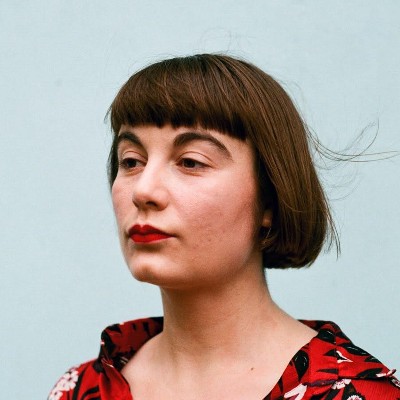
Dr Rebecca Tamás
Lecturer in Creative Writing (Education & Research)
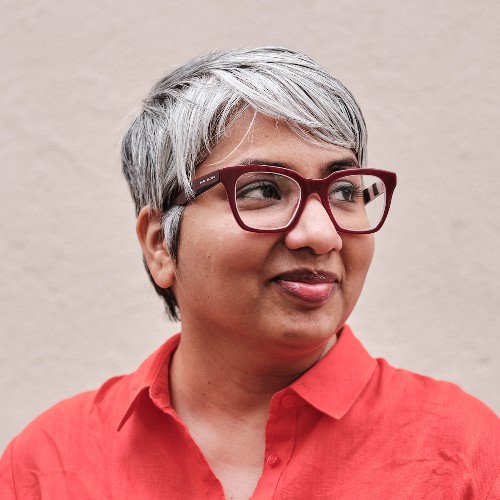
Dr Deepa Anappara
Lecturer in Creative Writing
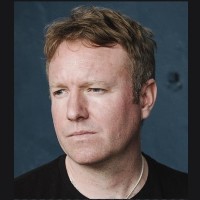
Dr Joseph Thomas
Senior Lecturer

Jessica Andrews
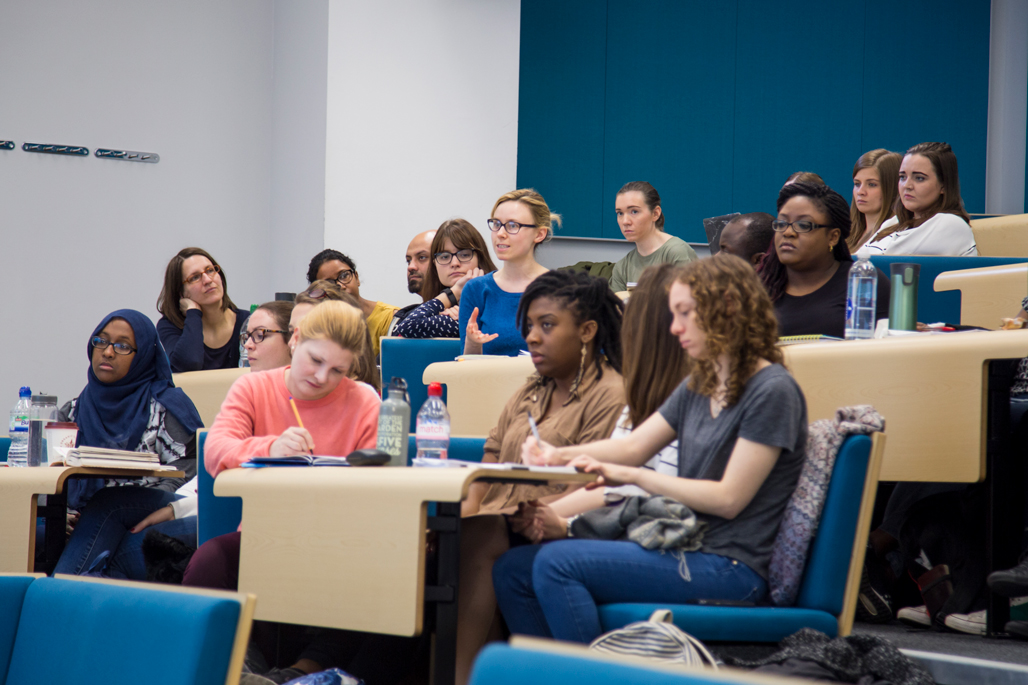
Our students
Ask a student.
Want to find out more about student life? Chat with our student ambassadors and ask any question you have
Our Creative Writing students
Housing and student life.

Accommodation and housing
We offer accommodation options and support for all postgraduate students. Our dedicated Accommodation Service can help you to find private accommodation in London if required.

Student wellbeing
Our extensive support network spans from learning support and disability support through to counselling, financial advice and career advice. Please do tell us if you need our help.

Living in London
We are based in the heart of one of the most vibrant and colourful cities in the world. London offers a rich variety of cultural experiences far beyond your studies.
What's happening
Apr 23
Lessons to be learnt from Sally Rooney’s Counter-Intuitive Construction (MA/MFA Creative Writing Taster Session)
Find out what it's like to study creative writing at City, in this sample seminar looking at three novels by Sally Rooney.
Tuesday, 23 rd April 2024 , 17:00 – 18:00
Location: Online
Audience: Public

Friday, 20 th September 2024
Dr Rebecca Tamás’ poetry in focus: on stage at the Barbican and acquired by award-winning publisher Fitzcarraldo Editions
Dr Rebecca Tamás’ poetry is performed at the Barbican and acquired by award-winning publisher Fitzcarraldo Editions.

Thursday, 25 th July 2024
From economist to crime fiction writer: City student Richard Jerram wins Dagger award
Richard Jerram (MA Creative Writing, 2024) wins prestigious crime fiction Dagger award for his novel "Makoto Murders".
Related courses
Creative writing ma.
Explore your creative writing passion through the genre of your choice and learn how vivid imagination can impact all our lives.
Award: Master of Arts
Creative Writing and Publishing MA
Learn how to effectively combine business acumen with creative endeavour by building your knowledge of the publishing industry and significantly enhancing your writing skills.
Publishing MA
Become professionally equipped to secure competitive positions in the stimulating and ever evolving industry of publishing with our Publishing MA
Useful links
- School of Communication & Creativity
- Creative writing and publishing at City, University of London
- English at City, University of London
- Fiction writing at City, University of London
Contact details
Postgraduate admissions office.
020 7040 8877

IMAGES
VIDEO
COMMENTS
Embracing Hull's global-facing outlook, MA Professor and accomplished author Martin Goodman describes the University's MA Creative Writing as an inspiring and collegial environment for online students who want to develop their distinctive voice as a creative writer. There is also the option to attend face-to-face events, as you seek public ...
A second class degree or above, or equivalent, in creative writing, English literature, literature and language, drama or theatre studies or a humanities subject. Applicants with academic qualifications in other subjects, or relevant work experience, will be considered on an individual basis. A demonstrable interest in creative writing.
Our celebrated online Creative Writing Masters is perfect for talented and aspiring writers looking to gain creative and critical skills., If you're a talented and ambitious writer looking to develop your craft and take your writing to the next level, Glasgow's renowned Creative Writing MLitt is ideal. Develop your writing practice wherever you are in the world by gaining creative and critical ...
This page shows a selection of the available Online Courses Programmes in United Kingdom. If you're interested in studying a Creative Writing degree in United Kingdom you can view all 31 Online Courses Programmes. You can also read more about Creative Writing degrees in general, or about studying in United Kingdom.
About the course. The MSt in Creative Writing is a two-year, part-time master's degree course offering a unique combination of high contact hours, genre specialisation, and critical and creative breadth. The emphasis of the course is cross-cultural and cross-genre, pointing up the needs and challenges of the contemporary writer who produces ...
Creative Writing (Online) MA. This supportive and non-residency online creative writing course is your opportunity to develop your writing practice at the times that work for you, wherever you are in the world. Apply now. Enquire now. Full-time and Part-time. 100% online. English & Creative Writing. Apply now to start in September, January or May.
The final piece of work for the MA is the dissertation - an extended piece of creative writing from a proposed full-length book or script. The MA is available to complete in one year full-time or two years part-time. The novel and poetry routes are available to study on campus (full-time or part-time) or online (part-time only).
The Master of Arts in Contemporary Creative Writing at Northeastern University London equips students with the knowledge, craft skills and discipline needed to be a creative writer now. There are more routes to publication available than ever before. However, navigating the twenty-first century literary marketplace requires specialist skills ...
MA in Creative Writing. Course code: F71. This qualification is an opportunity to develop your skills as a writer in fiction, poetry, creative nonfiction and scriptwriting for film, radio and the stage. You'll be able to write in a genre of your choice and experiment with at least one other through practical and inspiring activities.
Creative Writing at Queen Mary has a diverse and dynamic research culture that welcomes writers who want to experiment, innovate, take risks and push boundaries of form and genre. ... Bachelor Degree (awarded from 2000) from the Maldives National University. UK 1st class degree: GPA 3.7 out of 4.0 UK 2:1 degree: GPA 3.0 out of 4.0 UK 2:2 degree
Our MA Creative Writing master's course offers specialist teaching from leading writers and poets in a UNESCO City of Literature. ... UK students (per annum): £13,000 International, including EU, students (per annum): £27,000 ... American Studies and Creative Writing; Overview; Entry requirements; Application and selection; Course details;
Creative Writing MA, PGCert. Our PGCert and MA in Creative Writing provide a unique opportunity to explore and develop your creative writing skills through practice, revision and discussion. You are currently viewing course information for entry year: 2025-26. Start date (s): September 2025. View course information for 2024-25.
The final element of the programme is your dissertation, a piece of creative writing (worth 60 credits) written with the advice and support of a designated supervisor. Fiction dissertations are between 15,000 words and 20,000 words, and poetry dissertations between 25 and 30 pages. Find out more about compulsory and optional courses.
The Writers' Workshop module will encourage you to develop your writing 'voice' through engagement with fellow students across a range of genres (in fiction or creative non-fiction), while the Special Study module enables you to specialise in one genre, such as fiction, non-fiction, poetry or drama. This Creative Writing MA will give you the ...
Tuition fees for the Academic Year 2024/25 are: UK Students: £9,975 (full time) International Students: £21,200 (full time) If you choose to study part-time, the fee per annum will be half the annual fee for that year, or a pro-rata fee for the module credit you are taking (only available for Home students).
Diploma in Creative Writing. Our two-year, part-time Undergraduate Diploma in Creative Writing allows you to strengthen your ability in four major areas of literary activity — prose, poetry, drama and analytical reading — as well as the chance to specialise in the medium of your choice. You can now opt to take this course mostly online.
During this Creative Writing Master's degree, you will learn how to read and think as a writer and explore the choices faced and decisions taken by writers. Regular workshops and bespoke reading lists will serve to inform and enrich your own work. You will also gain an understanding of the business of writing in all its forms, from print and ...
24 months part time. Entry requirements. A bachelor degree with a 2:1 (hons) in English literature, Creative Writing or a related subject. Full entry requirements. English language requirements. IELTS 6.5 overall, with no less than 6.0 in each component. UK fees. £12,500 (Total) International fees.
You'll have the opportunity to learn from published authors, offering valuable expertise in Creative Writing. You'll study four core modules plus your dissertation. The dissertation is made up of a creative portfolio, worth 75%, and a critical essay, worth 25%. The 10,000 word portfolio of creative work can be a screenplay, excerpt from a novel ...
Final Project: the Creative Practice Dissertation - 60 credits Create your defining work in this final module, aimed at crafting an impressive collection of your original writing. With tutor guidance, you'll refine your creative process. Apply analytical insight to elevate your work to a professional level.
Our compact three-month schedule and online learning environment makes this the ideal course for writers with busy calendars in need of flexibility as well as comprehensive advice and an energetic burst of motivation. You will join a group of 15 writers tutored by Suzannah Dunn, critically acclaimed author of 13 novels and much-loved creative ...
about the English & Creative Writing (with Foundation Year) course. On the foundation year you'll be introduced to English language and linguistic concepts and build essential skills for success. This includes academic writing, critical thinking, research, collaboration, and independent learning. And you'll have the option to explore modules ...
Lessons to be learnt from Sally Rooney's Counter-Intuitive Construction (MA/MFA Creative Writing Taster Session) Find out what it's like to study creative writing at City, in this sample seminar looking at three novels by Sally Rooney. Tuesday, 23rd April 2024, 17:00 - 18:00. Location: Online.